Thank you to all speakers, sponsors, partners & delegates who joined us. We look forward to seeing you at the 2026 edition. In the meantime, should you wish to find out more about speaking and sponsorship opportunities at next year’s event, please contact anne-lise.simon@forum-global.com
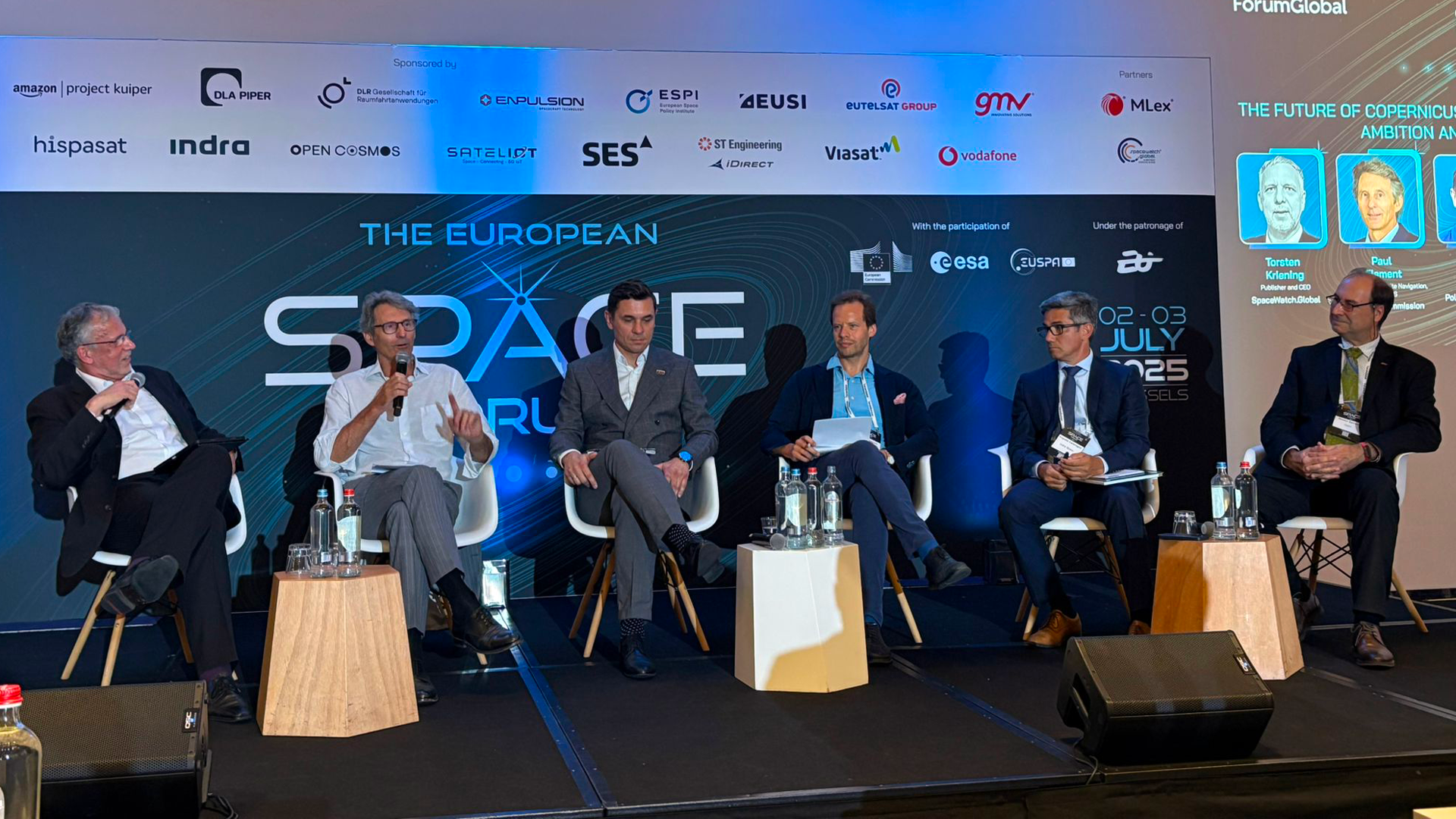
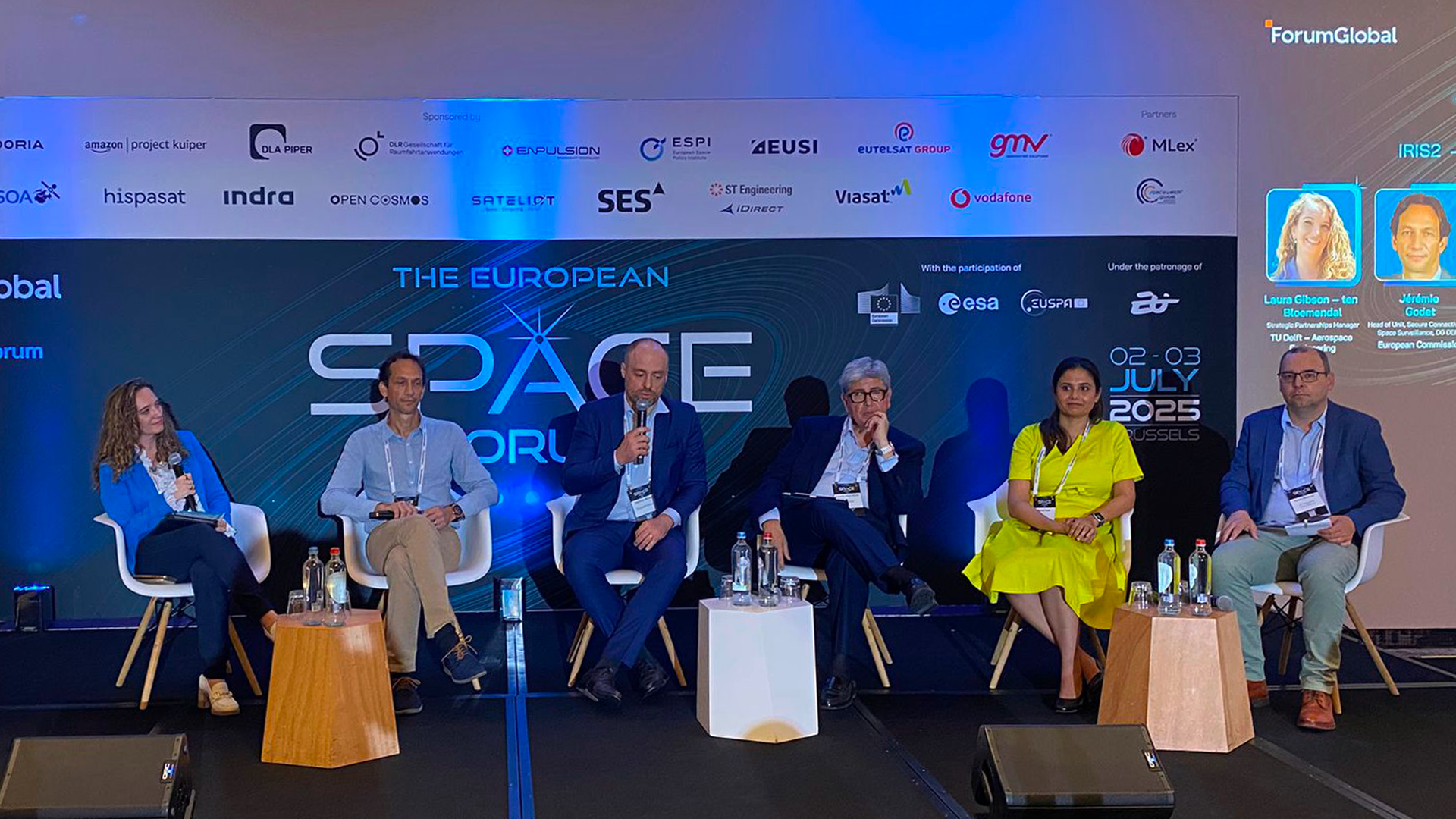


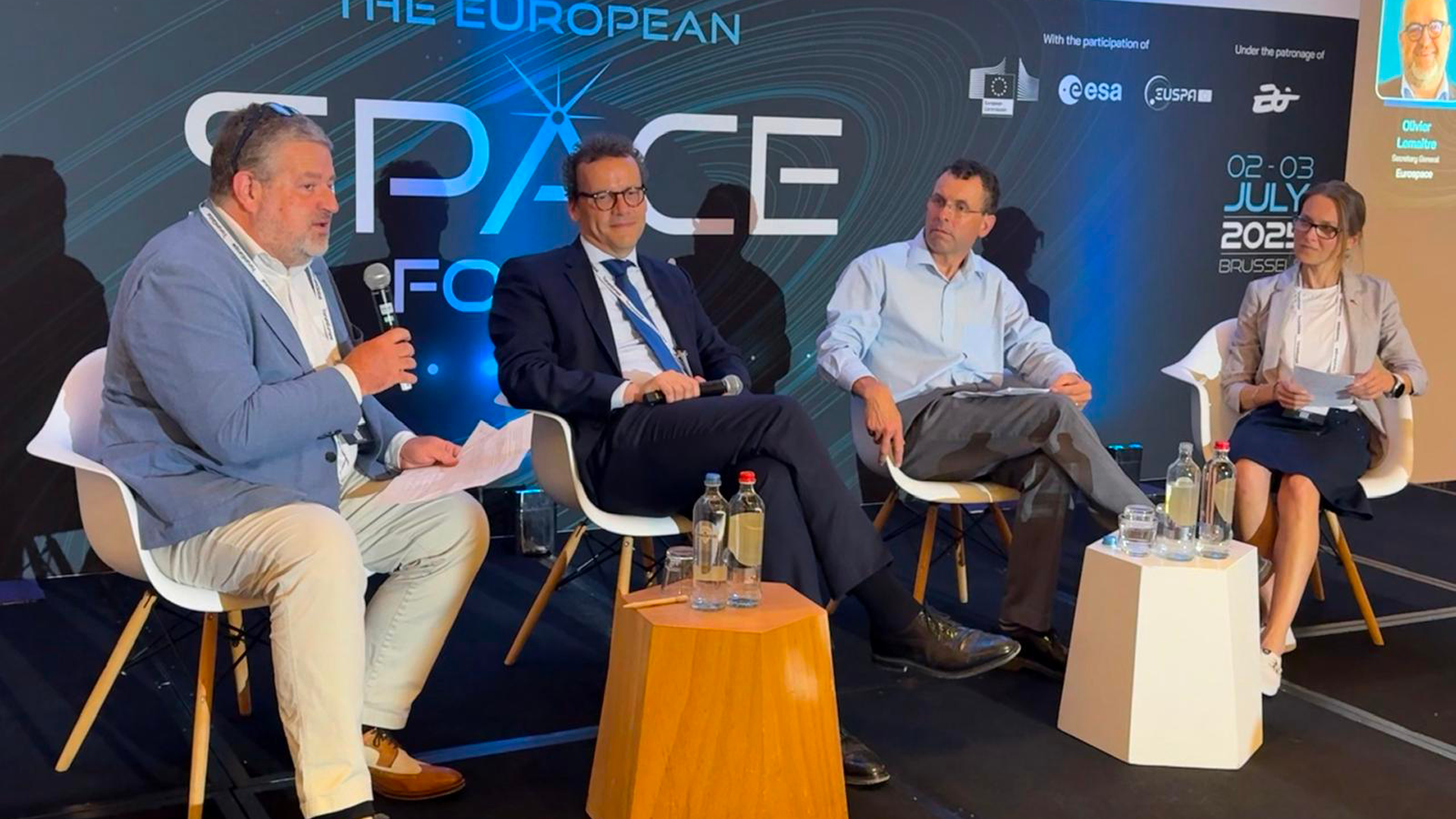
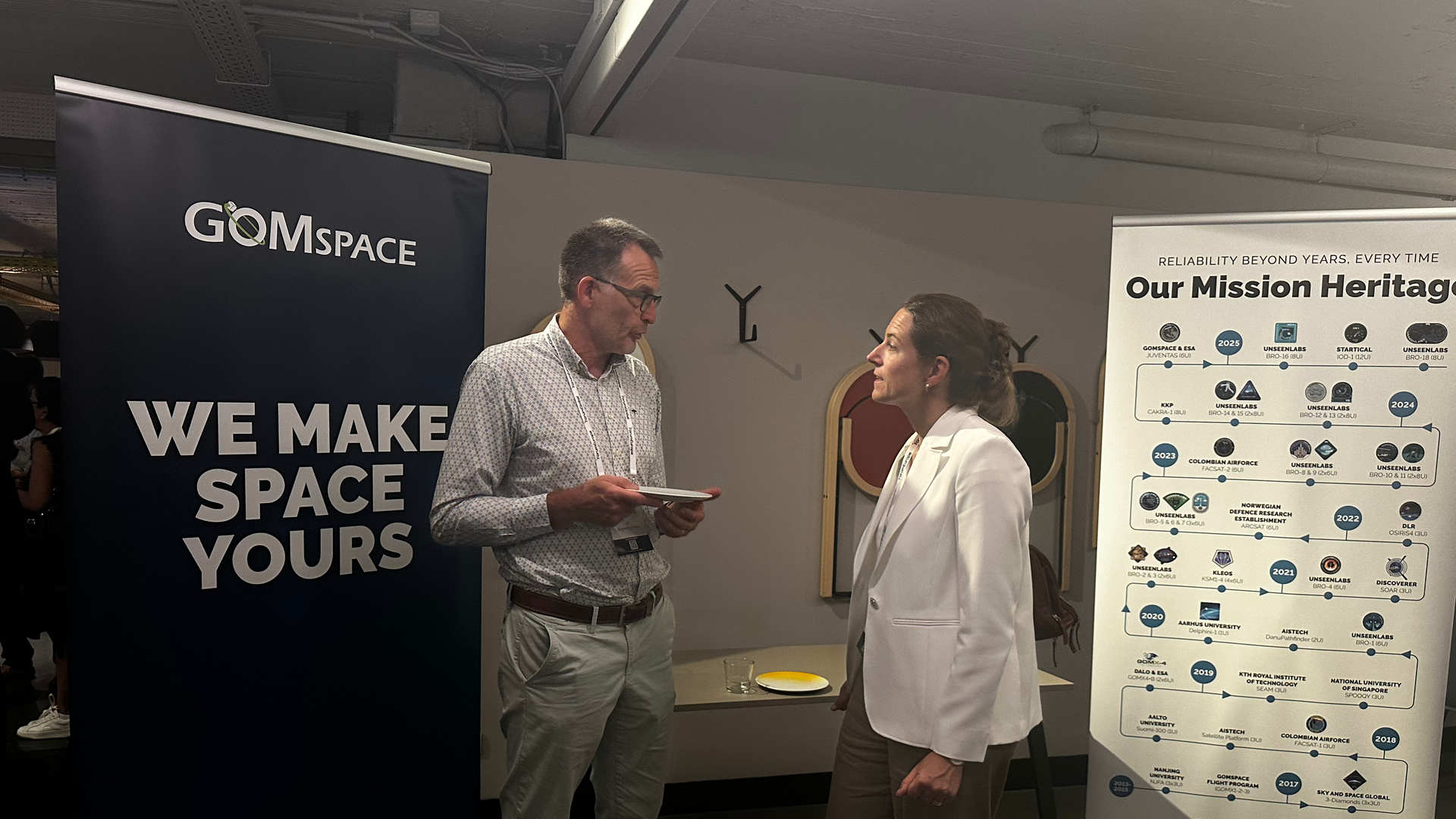
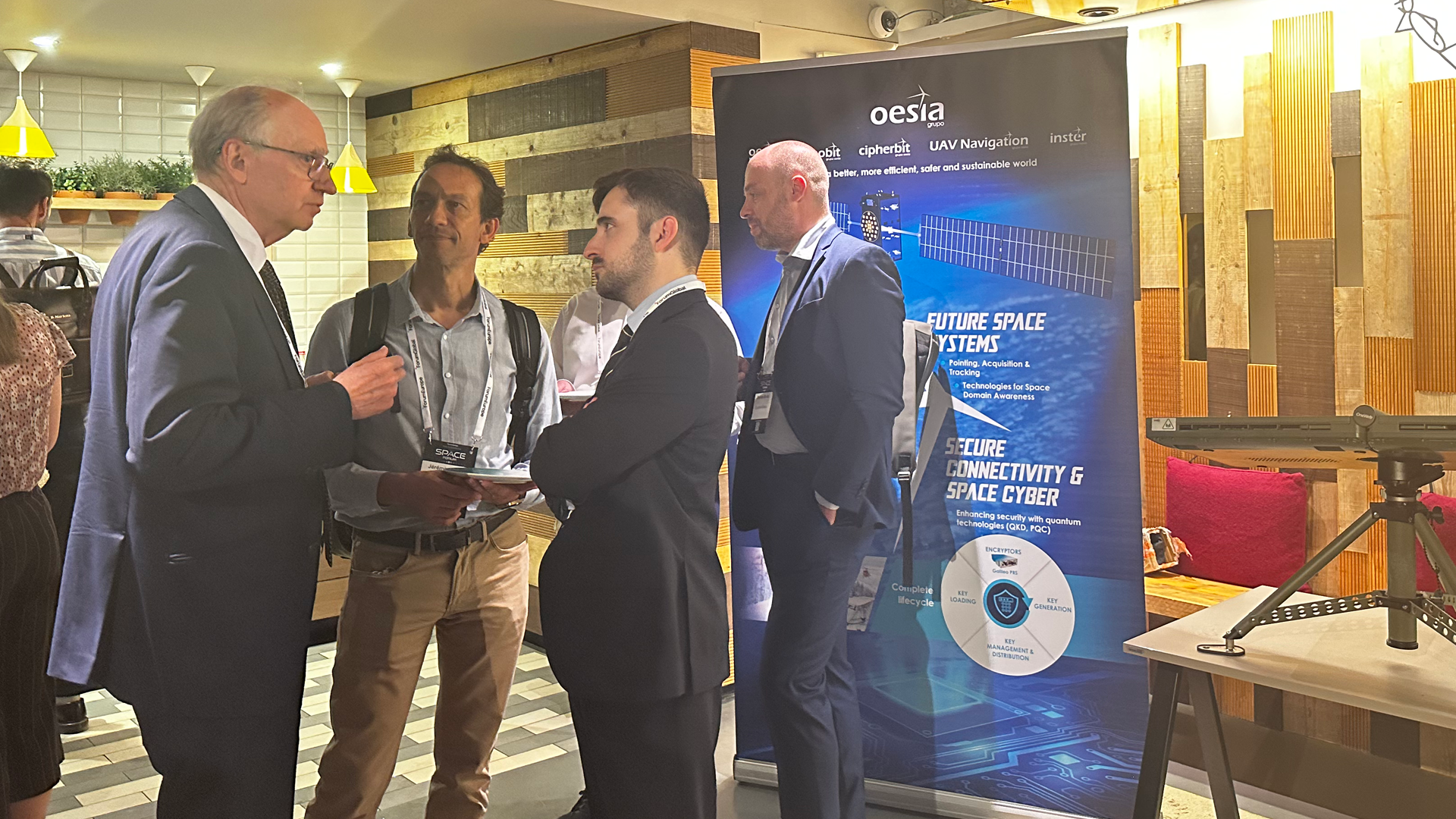
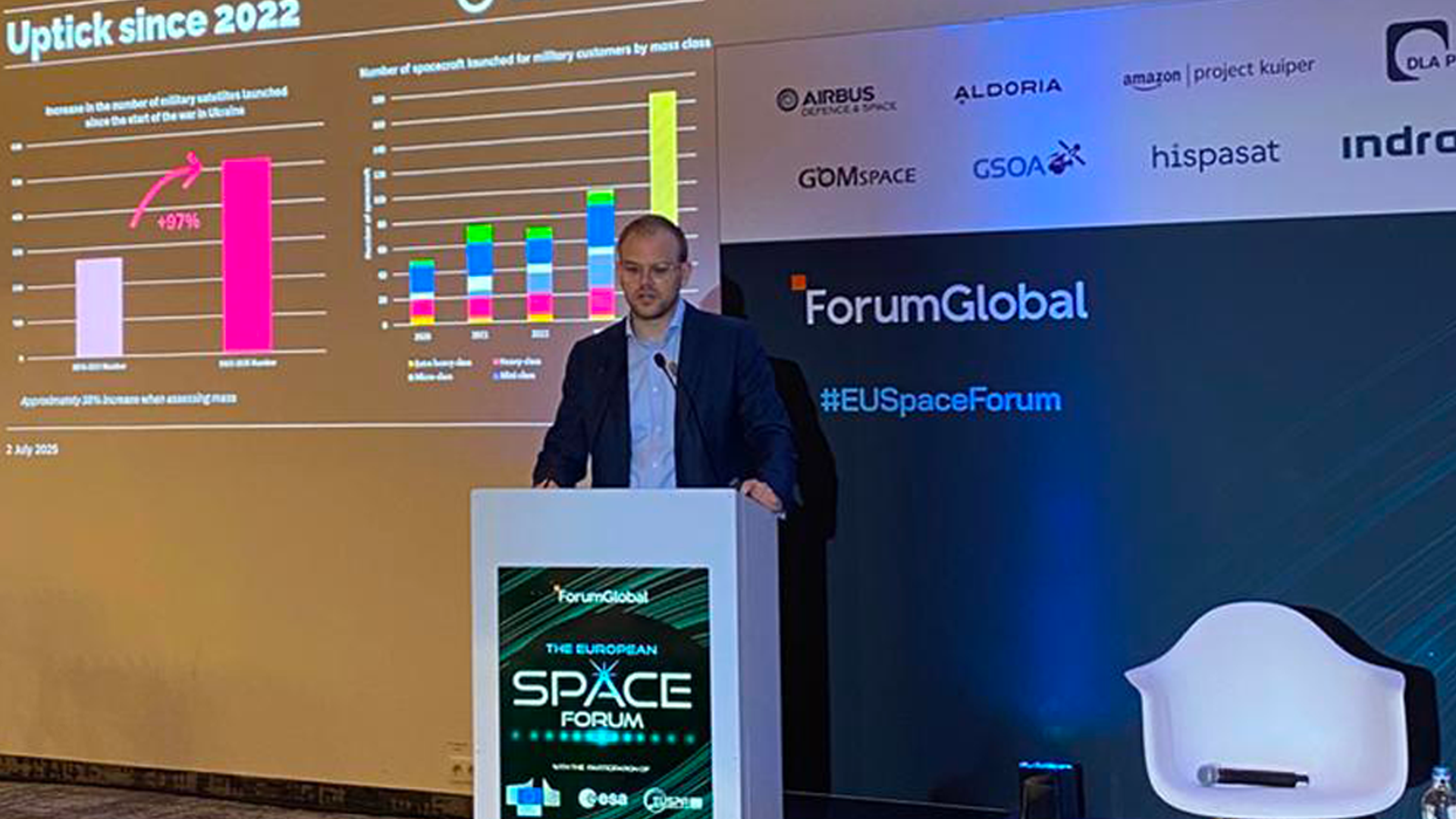
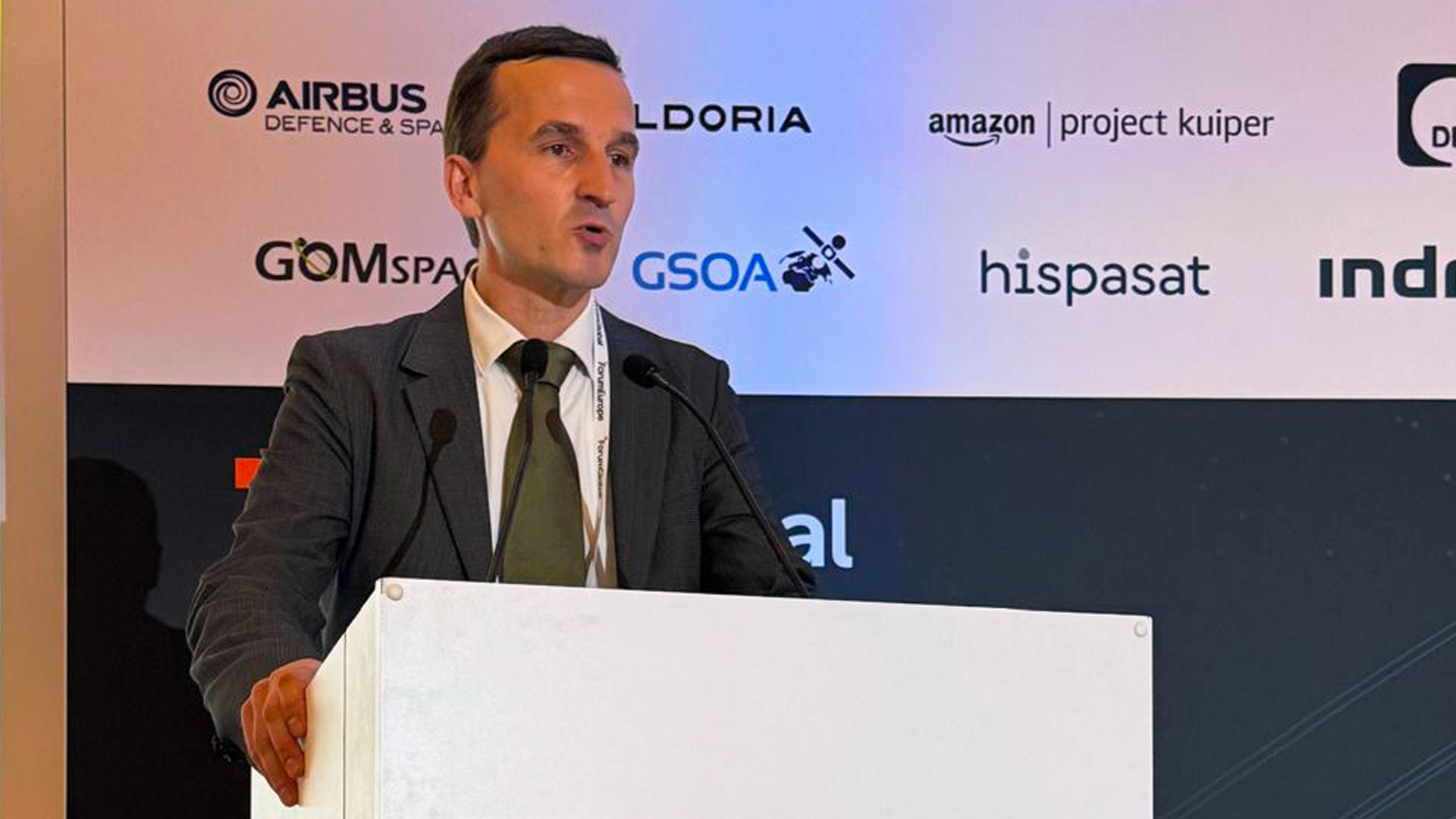
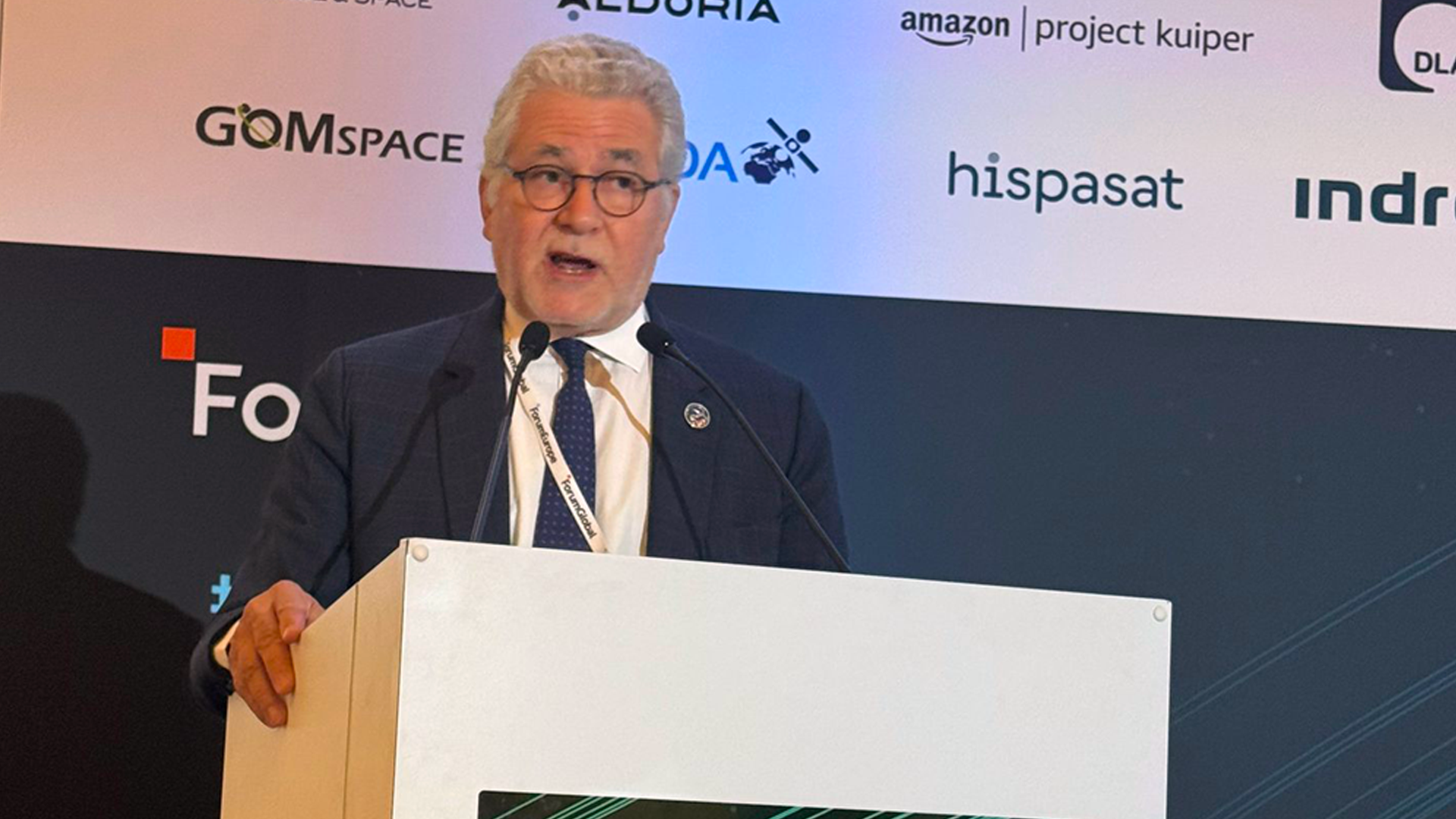
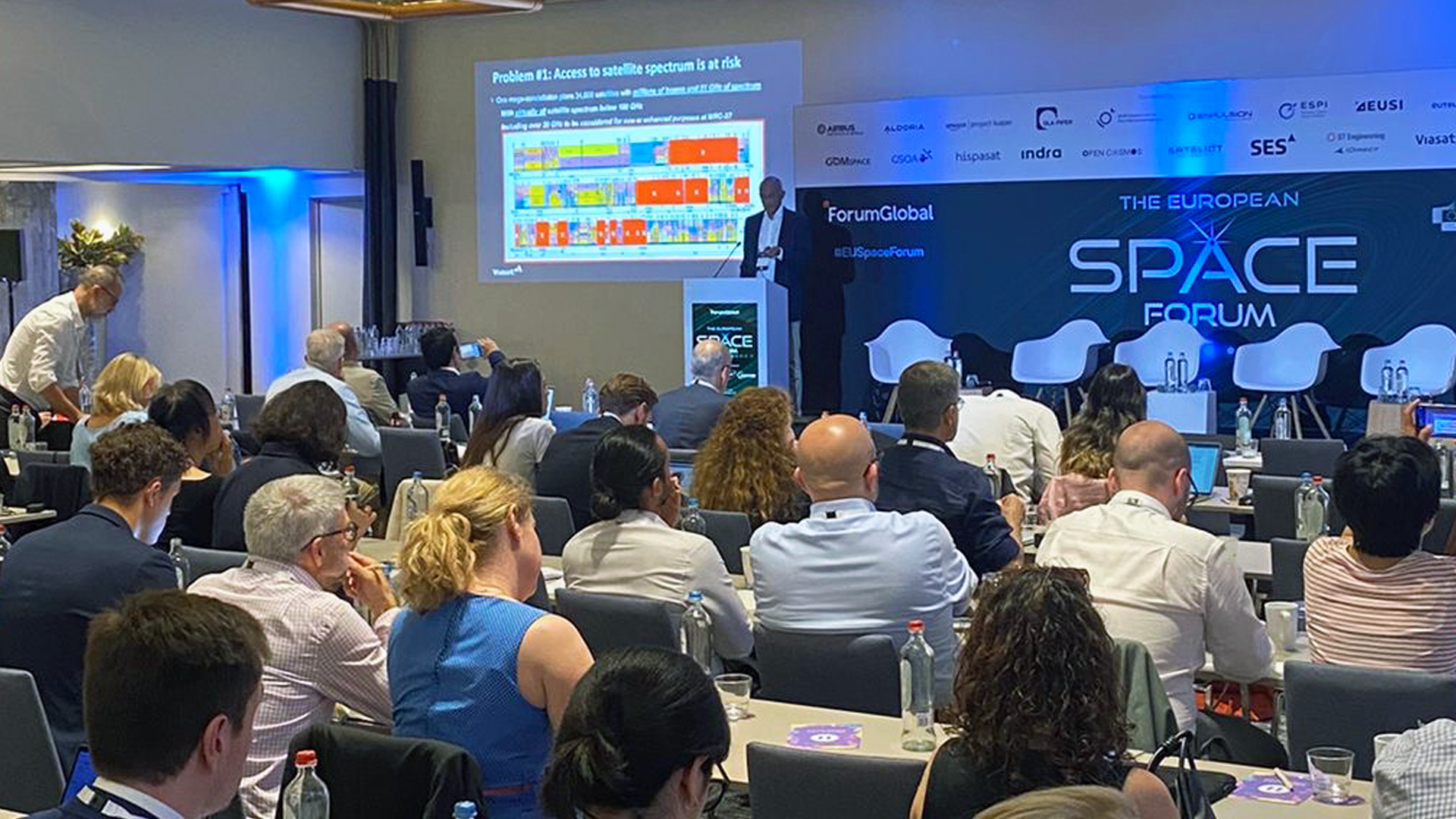
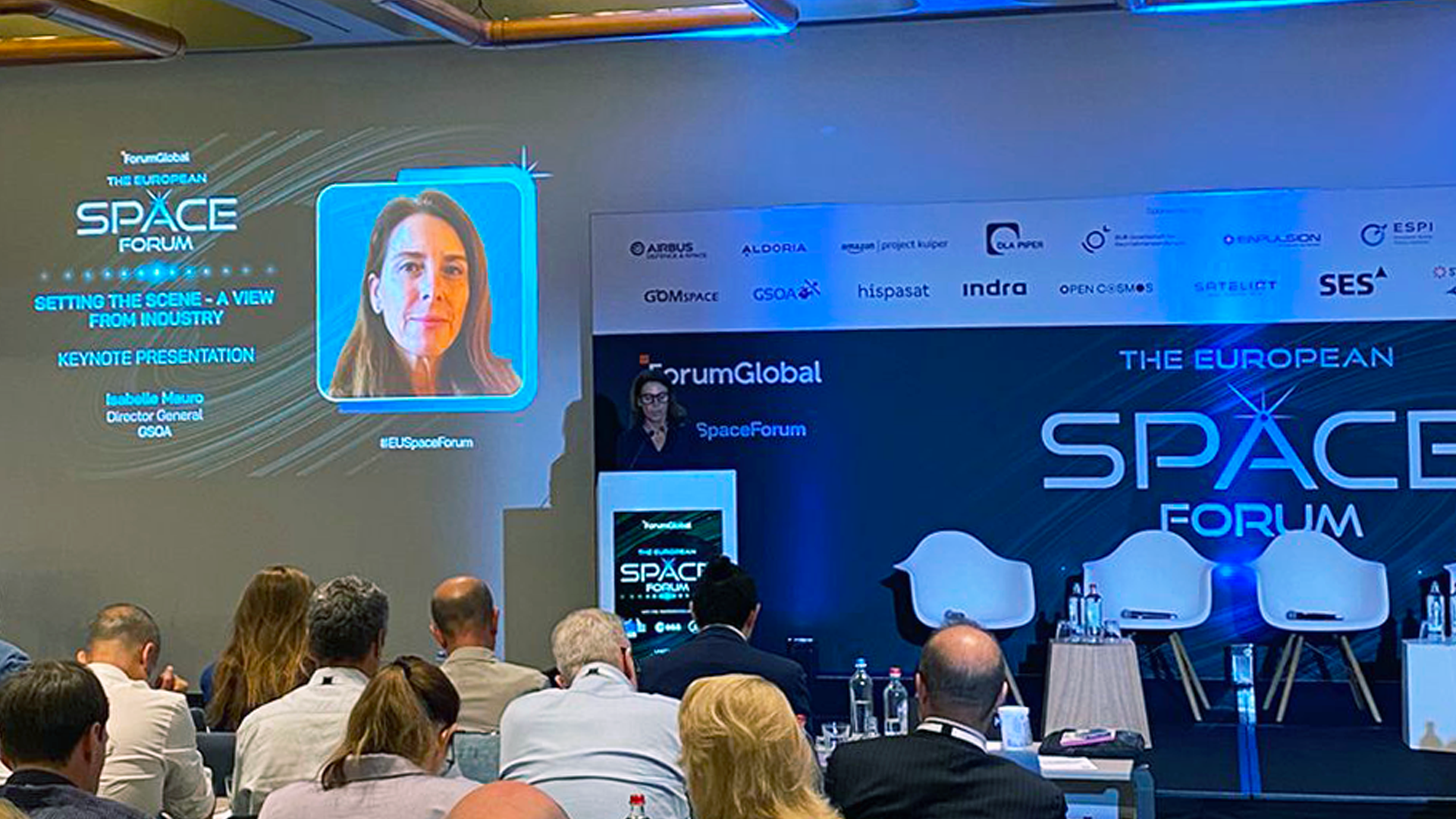
Realising the Vision
Can Direct-to-Device Connectivity Fulfil Its Potential?
Brussels | 1 July 2025 (Co-located with The European Space Forum)
Through interactive discussions on regulation, spectrum strategies, business models, and emerging use cases, this 1 day forum will explore how D2D can fulfil its potential and drive innovation across the connectivity landscape.
For more information and to access the event website, please visit
D2D Policy Forum.
Launching in Washington D.C. in Fall 2025, the inaugural Americas Space Forum will bring together stakeholders from across the Americas to shape the future of the space ecosystem around the region.
For more information and to access the event website, please visit
Americas Space Forum.

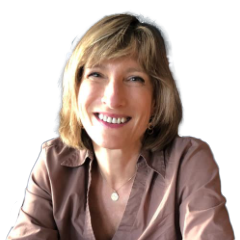
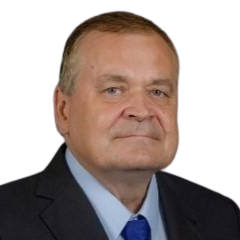
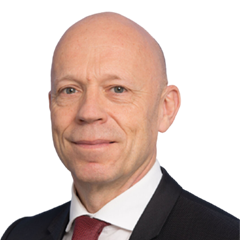


 Josef Aschbacher, Director General, European Space Agency (ESA)
Josef Aschbacher, Director General, European Space Agency (ESA) Josef Aschbacher, of Austrian nationality, is a geophysicist by education. He joined ESA in 1990. Throughout his career he held various positions in different locations. He also worked for the European Union. In 2016 he became ESA’s Director of Earth Observation, and in 2021 he took office as ESA’s Director General.
Director General
European Space Agency (ESA)
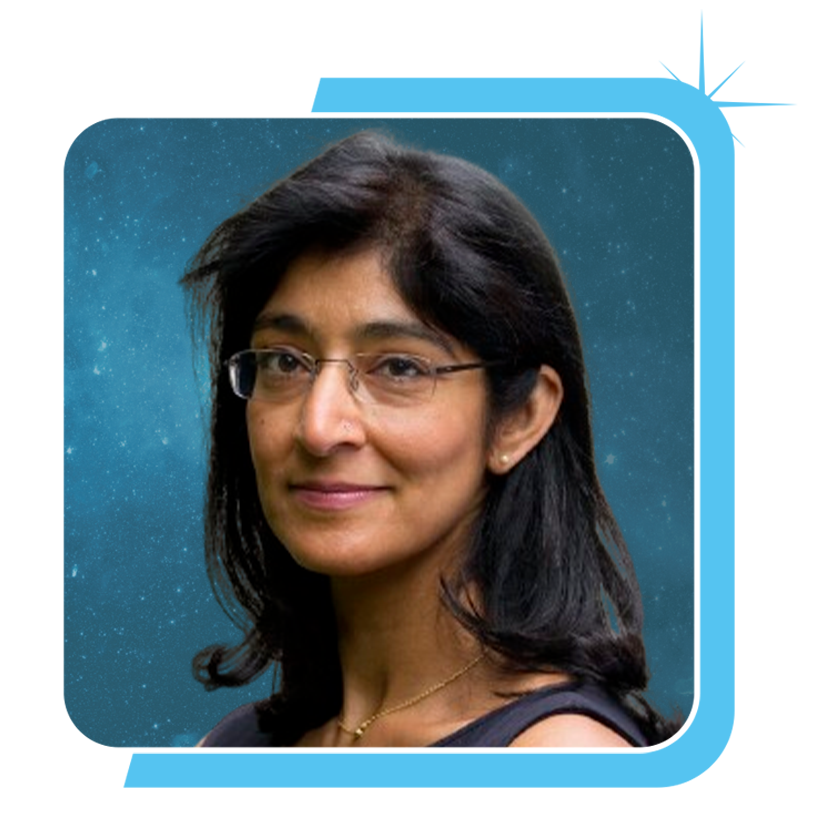
 Aarti Holla Maini, Director, United Nations Office for Outer Space Affairs (UNOOSA)
Aarti Holla Maini, Director, United Nations Office for Outer Space Affairs (UNOOSA) United Nations Secretary-General António Guterres announced on 26 June 2023 the appointment of Aarti Holla-Maini of the United Kingdom as Director of the United Nations Office for Outer Space Affairs (UNOOSA) in Vienna.
She will succeed Simonetta Di Pippo of Italy, to whom the Secretary-General is grateful for her commitment and dedicated service to the Organization. The Secretary-General also wishes to extend his appreciation to the Chief, Committee, Policy and Legal Affairs Section, Niklas Hedman, who will continue to serve as Acting Director of UNOOSA until Ms. Holla-Maini assumes this position.
UNOOSA works to promote international cooperation in the peaceful use and exploration of space, and in the utilisation of space science and technology for sustainable economic and social development.
Ms. Holla-Maini brings to this position over 25 years of professional experience in the space sector including in managerial and advocacy functions. Most recently, she has held the role of Executive Vice-President Sustainability, Policy & Impact at NorthStar Earth & Space; prior to which she spent over 18 years as Secretary-General of the Global Satellite Operators Association.
Ms. Holla-Maini’s experience includes service as a member of the World Economic Forum’s Global Future Council on Space; member of the Advisory Group of the Space Sustainability Rating managed by eSpace at the École Polytechnique Fédérale de Lausanne (EPFL) Space Center; member of the Advisory Board of the Satellite Industry Association of India; Senior Space Policy Adviser to Forum Europe and as Expert Adviser on Space Traffic Management for European Union studies 2021-2023. She was also one of the chief architects of the Crisis Connectivity Charter established in 2015 for emergency telecommunications via satellite with the UN World Food Program’s Emergency Telecommunications Cluster.
Ms. Holla-Maini holds a bachelor’s degree in law with German law from Kings College London, UK, a master’s degree in business administration from HEC Paris, France, and she is also an alumna of the International Space University. She is fluent in English, French, German and Punjabi and has moderate knowledge of Dutch.
Director
United Nations Office for Outer Space Affairs (UNOOSA)

 Regina Peldszus, Policy Officer, European External Action Service (EEAS)
Regina Peldszus, Policy Officer, European External Action Service (EEAS) Dr Regina Peldszus is a specialist for space security with the European External Action Service, Security & Defence Policy Directorate, where she has been serving on the team of the Special Envoy for Space since 2022. Her focus is on space threats, Space Situational Awareness, and Space Domain Awareness.
Prior to joining EEAS, Regina advised the German Ministry of Economic Affairs on space security, including civil-military cooperation for SSA and transatlantic wargaming. Until 2020, at the German Space Agency at DLR, she was the Co-Chair of EU Space Surveillance & Tracking (EUSST), and oversaw horizon-scanning studies at the intersection of global sensor architectures and geopolitics. From 2013-2015 she was an Internal Research Fellow at the special studies division at ESA’s space operations centre, analysing high reliability in mission control, and earlier contributed to technical studies at ESA’s astronaut centre on special skills and future systems. She holds a PhD from Kingston University, London, with stints in Kiruna and Mountain View, with a focus on human systems integration and extreme environment analogues for unprecedented space mission scenarios.
Regina published on space foresight, resilience, and infrastructure from a complex systems perspective in, amongst others, the Handbook for Space Security, Journal of Space Safety Engineering, Palgrave Studies in the History of Science and Technology, New Scientist, and Wired UK. She is a Senior Member of the AIAA, and an affiliate of the IAF Space Security Committee. She occasionally reviews for Space Policy, and lectures including at the European Security & Defence College. In 2024, she was an invited expert at the public hearing on space security strategy at the German Parliament’s Defence Committee, and in 2025 joins the German Space Agency’s inaugural programme board on space security.
Policy Officer
European External Action Service (EEAS)
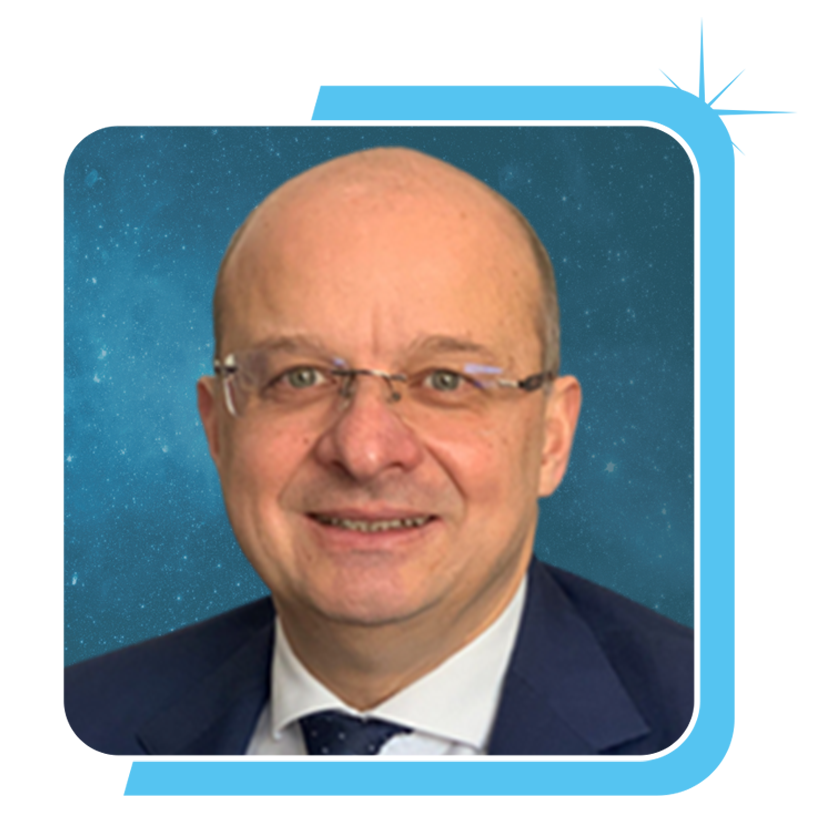
 Christophe Grudler, Member, European Parliament
Christophe Grudler, Member, European Parliament Christophe Grudler is a French Member of the European Parliament (MEP), member of the Renew Europe group.
Historian and journalist by training, his political commitment started at an early stage of his career. He is particularly involved at the local level in his hometown, Belfort, where he has been elected as a local representative several times.
Within the European Parliament, he is Vice-Coordinator of the ITRE Committee (Industry, research and energy) for the Renew Europe group. He is also a member of the Foreign Affairs (AFET) and Security and Defence (SEDE) committees. Furthermore, he is Vice President of the Sky & Space Intergroup of the European Parliament.
MEP Grudler is particularly involved in energy and industry related topics, as well as on space and defence policies. He has been appointed as rapporteur for the European Parliament on the Initiative report on Energy System Integration and recently on the future European secure connectivity. He is also shadow rapporteur for his group on the European Industrial Strategy, the revision of the Renewable Energy Directive (RED) and on the European Space Programme.
Member
European Parliament

 Paul Flament, Head of Unit, Satellite Navigation, DG DEFIS, European Commission
Paul Flament, Head of Unit, Satellite Navigation, DG DEFIS, European Commission Paul Flament is a Belgian Civil Engineer, specialised in Telecommunications. He has been working 11 years in the European Space Agency, for space missions control centres and for the design and development of telecommunication satellites. Following a Masters in European Studies, he joined the European Commission in 1998. Paul Flament is Head of the Unit “Satellite Navigation” in DG DEFIS.
Head of Unit, Satellite Navigation,
DG DEFIS
European Commission

 Isabelle Mauro, Director General, GSOA
Isabelle Mauro, Director General, GSOA Isabelle Mauro is Director General of the Global Satellite Operators Association (GSOA) that represents the interests of 29 global and regional satellite operators. She reports directly to their Chief Executives.
Under Isabelle’s leadership, GSOA and its member CEOs lead the effort to showcase the benefits of satellite communications for a more inclusive and secure society – vital to bridging the world’s digital divide, achieving the UN’s Sustainable Development Goals and realizing the 5G ecosystem.
Isabelle has 25 years experience in the Telecoms and Technology sector, starting at the GSMA, where she was responsible for government and international Affairs. In 2015 she moved to New York to join the World Economic Forum as Head of Information, Communications and Technology Industries, managing the portfolio for 60+ Tech companies globally and leading initiatives on inclusive and sustainable digital transformation.
Isabelle is passionate about inclusion and sustainability. She is Chair of the High-Level Advisory Board of the DigitalGoesGreen Foundation. She also sits on the Advisory Board of Women in Tech and is a member of the UNESCO Advisory Group for the Declaration on Connectivity for Education.
Isabelle holds an MSc in European Politics and Policy from the London School of Economics. She is fluent in French, English, Italian and Spanish.
Director General
GSOA

 Marcin Mazur, President, Polish Space Agency (POLSA)
Marcin Mazur, President, Polish Space Agency (POLSA) Colonel Marcin Mazur is the Vice President of the Polish Space Agency (POLSA) – an executive agency of the Ministry of Economic Development and Technology, est. 2014. POLSA supports the Polish space industry, cooperates with international agencies and public administration in the field of exploration and use of Outer Space.
Col Mazur’s goal is to execute the Polish Space Strategy issued in 2017, which is in compliance with both the Space Strategy for Europe 2016 and the NATO Overarching Space Policy 2019, and implement the National Space Programme 2022-2026.
Col Mazur’s responsibility in POLSA is to systematize security and defence activities, in particular the development of dual-use capabilities which may apply for military and civilian applications:
Colonel Mazur was commissioned in 1998 and promoted to his first officer’s rank, 2nd lieutenant, in 2002. He graduated from the Military University of Technology in Warsaw with a Master’s Degree in Topography and Mapping. He started his career as a Geospatial Officer at the 6 th Independent Geographical Unit in Torun where he became the leader of Mobile Geospatial Support Team dedicated for NATO Response Forces. Following that Colonel Mazur served at the Joint Force Command Brunssum, the Netherlands, in the Geospatial Support Section, J2 Intelligence Division and as an IMINT Officer at the Military Geographical Centre in Warsaw from where he was assigned in 2012 to the General Staff of the Polish Armed Forces, P2 Intelligence Division, Imagery Intelligence Branch. As an Intelligence Officer, he was also appointed as a Part-time Inspector for Treaties on Conventional Arms Control in Europe (CFE) and Vienna Document 2011 (VD11) inspections. In August 2017 he became the IMINT Branch Head and in January 2019 was promoted to Colonel rank. As the IMINT Branch Head he was responsible for defining Earth Observation (EO) and Space Situational Awareness (SSA) military requirements. He was the co-chairman of the Polish-Italian Operational Working Group with regards to the COSMO SkyMed (CSK) and OPTSAT-3000 systems. Nationally he served the Chairman role of the Inter-ministerial Earth Observation Task Group.
Vice President
Polish Space Agency (POLSA)

 Kamila Kloc, Director, Digital Decade and Connectivity, DG CONNECT, European Commission
Kamila Kloc, Director, Digital Decade and Connectivity, DG CONNECT, European Commission Dr Kamila Kloc joined the European Commission in December 2004.
As of July 2023 Kamila was nominated as the Director of Directorate B Digital Decade and Connectivity of Directorate General for Communications Networks, Content and Technology (DG CONNECT) after acting in this position from February 2023. She held a position of the Head of Markets’ Unit in the same Directorate from 2019.
Previously she served as Deputy Head of Cabinet for Vice President Ansip responsible for Digital Single Market. Prior to joining the Cabinet, she worked at Directorate General for Energy coordinating exemptions from regulatory access rules for gas pipelines. During the Polish Presidency in 2011, she was seconded by the Commission to the President’s office of the Polish Energy Regulatory Authority.
Earlier, she worked for 5 years at the Directorate General for Competition dealing with merger and antitrust cases.
Prior to joining the Commission, she was employed at the Office for Competition and Consumer Protection in Poland as Adviser to the President. Kamila Kloc started her professional career in academia and taught at the Warsaw School of Economics as Assistant Professor. She has written her PhD on the role of competition policy in the public utilities sector with a special emphasis on telecommunications. She was a Fulbright scholar at the University of California in Berkeley and a Chevening fellow at Oxford University.
Director, Digital Decade and Connectivity, DG CONNECT
European Commission

 Olivier Lemaitre, Secretary General, Eurospace
Olivier Lemaitre, Secretary General, Eurospace Olivier has a long-standing experience and a strong network in the European space policy sector, at the crossroads of the private and the public sector.
He has been part of the Belgian delegation to the ESA Council and also advising the Belgian Permanent Representation on space matters, under the authority of E. Beka, High representative of Belgium for space policy. Olivier then moved to Eurospace, as Head of the Brussels Office until 2014, when he has been hired by Thales Alenia Space as director for EU affairs.
Secretary General
Eurospace
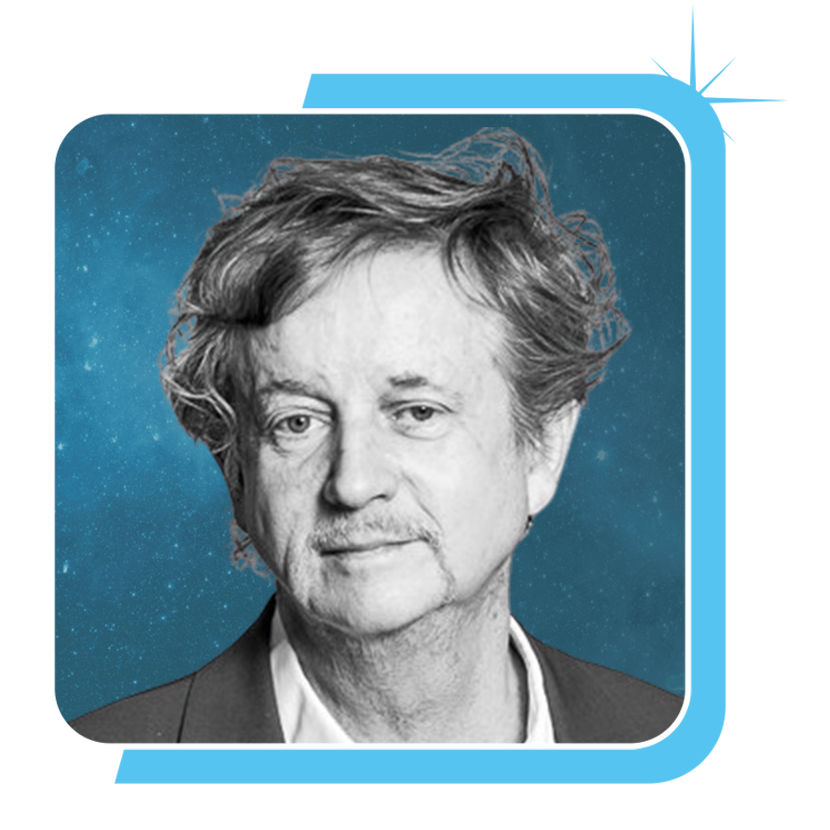
 H. Ludwig Moeller, Director, European Space Policy Institute (ESPI)
H. Ludwig Moeller, Director, European Space Policy Institute (ESPI) Hermann Ludwig Moeller is the Director of European Space Policy Institute since September 2022. Prior to joining ESPI, he held leading positions at ESA in the creation of EU Copernicus and in the preparation of the EU Secure Connectivity initiative as Head of Telecommunications Strategy, Programme and Transformation Office and as Head of Copernicus Space Segment Office. In these functions, Mr. Moeller has been operating with high level leadership in a complex multi-stakeholder policy environment in public-private partnerships with industry, at EU level, with EUMETSAT and with national space agencies and delegations. Prior to that he held the ESA Douglas Marsh Fellow at NASA and contributed to the creation of the European Internet backbone. He acquired early professional experience at the European Patent Office and with Siemens.
Director
European Space Policy Institute (ESPI)

 Jérémie Godet, Head of Unit, Secure Connectivity & Space Surveillance, DG DEFIS, European Commission
Jérémie Godet, Head of Unit, Secure Connectivity & Space Surveillance, DG DEFIS, European Commission Bio to follow
Head of Unit, Secure Connectivity & Space Surveillance, DG DEFIS
European Commission
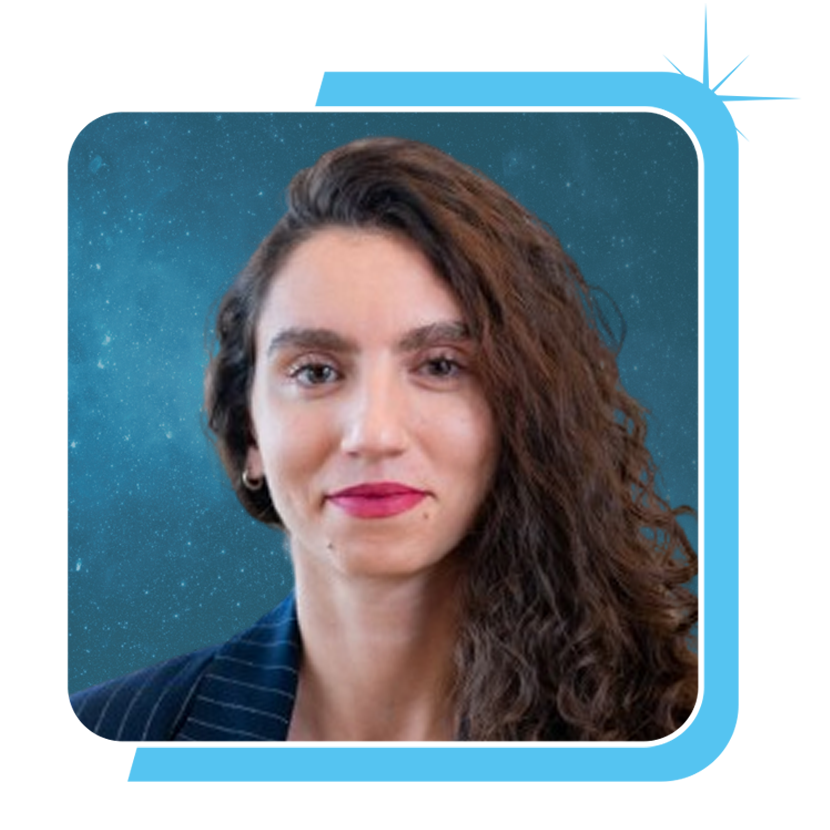
 Sara Dalledonne, Research Fellow and Lead on EU Relations and Regulatory Affairs, ESPI
Sara Dalledonne, Research Fellow and Lead on EU Relations and Regulatory Affairs, ESPI Sara Dalledonne is a Research Fellow with the Lead on Regulatory Affairs at the European Space Policy Institute (ESPI), and she is the ESPI representative in Brussels. She is the Space Law expert reference at the University of Bologna in Italy, and a Member of the Support Committee for the Aviation & Space Journal (ASJ). She is also the Lead for Networking & Events at Women in Aerospace Europe (WIA-E) in Austria. Prior to joining ESPI, she worked as Research Assistant at the Institute of Air and Space Law at McGill University. She holds an L.L.M. in Air and Space Law from the McGill University, an L.L.M. in International Trade Law from ITCILO (University of Turin) and a 5-year Law degree from the University of Bologna. She also completed an ITU Training Course in Satellite Coordination Procedures and Filings.
Research Fellow and Lead on EU Relations and Regulatory Affairs
European Space Policy Institute (ESPI)
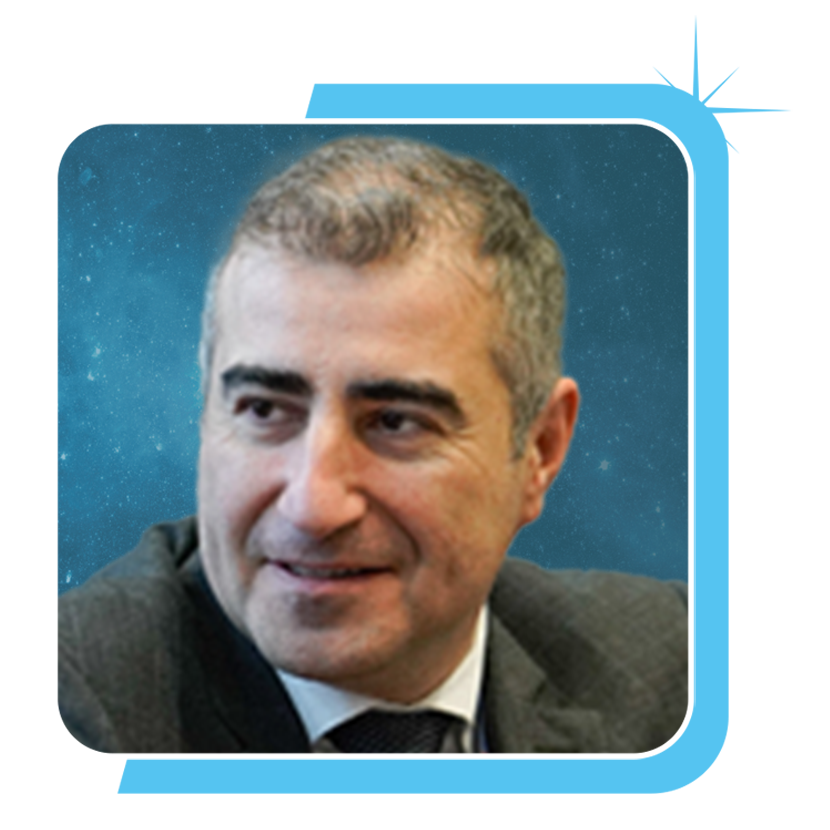
 Gerasimos Sofianatos, Head of Unit, Radio Spectrum Policy, DG CONNECT, European Commission
Gerasimos Sofianatos, Head of Unit, Radio Spectrum Policy, DG CONNECT, European Commission Gerasimos Sofianatos is the newly appointed Head of Unit of Connect B5, Radio Spectrum Policy Unit. Previously, he was Deputy Head of DG Connect Unit Connect B5, “Investment in high-capacity networks”. He has been working for the Commission since 2011, in different positions in DG Connect, in Directorate B, dealing with the policy and implementation of the EU Regulatory Framework for Electronic Communications. Gerasimos led the team monitoring and implementing EU law and in particular the European Electronic Communications Code, a piece of legislation in the drafting and negotiation of which he was actively involved. Prior to joining the Commission, Gerasimos worked as legal officer at the Cypriot National Regulatory Authority for Electronic Communications (OCECPR). Before joining the Commission, he was a Member of the Athens Bar Association and practiced competition law. He holds a Masters degree in Business Law and a PhD in competition law at the Paris 1- Sorbonne University. He holds a law degree from the Aristotle University of Thessaloniki and a post-graduate degree in Economics for Competition law from the King’s College London. Gerasimos is of Greek nationality and speaks Greek, English, and French.
Head of Unit, Radio Spectrum Policy, DG CONNECT
European Commission
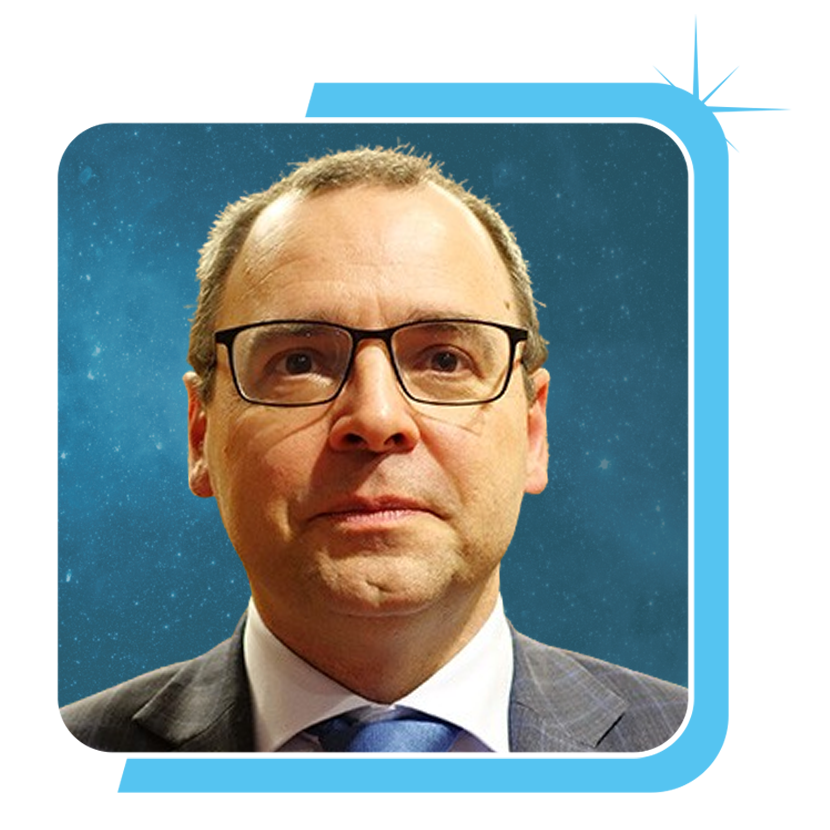
 Koen Willems, Vice President, EU Programs & Government Relations, ST Engineering iDirect (Europe)
Koen Willems, Vice President, EU Programs & Government Relations, ST Engineering iDirect (Europe) Koen Willems is the Vice President European Union Programs and Government Relations at ST Engineering iDirect, where he defines and develops the global strategy for the government and defense market.
Before joining ST Engineering iDirect in 2008, he was Product Marketing Manager for Europe at the electronics giant TOSHIBA.
Willems has more than 25 years’ experience working in the technology industry. His expertise in the government and defense satellite market has grown through his involvement in different large (EU) programs, as well as frequent interactions with the end-user community and a range of topic-related degrees such as the ‘High Studies in Security and Defence’ degree at the Belgian Royal Higher Institute for Defence; the ‘European Session for Armament Officials’ degree at the French National Institute of Higher Defense; and the ‘European Advanced Strategy Course on Security and Defense’ degree at the Egmont Institute, IHEDN and BAKS.
Willems has a master’s in English and Scandinavian Languages from Ghent University and a master’s in Marketing Strategy and Management from Vlekho Business School.
Vice President, EU Programs & Government Relations
ST Engineering iDirect (Europe)

 Holger Krag, Head of the Space Safety Programme Office, ESA
Holger Krag, Head of the Space Safety Programme Office, ESA Holger Krag joined ESA in 2006 as an Analysist in the Space Debris Office at ESOC. He worked on establishing risk models and an operational collision avoidance system and contributed to first space surveillance studies. In 2014, he took the position of the Head of the Space Debris Office, which, among others, provides fundamental support to ESA’s Space Situational Awareness Programme. In 2019, he took over the position as the head of the programme and prepared the evolution into the new Space Safety Programme which was established at the Space19+ Ministerial in Sevilla. The new programme addresses an enlarged scope within the areas of Space Weather, Planetary Defence and Space Debris including early warning systems and mitigation measures and three ambitious missions (Lagrange, Hera und ADRIOS). He is lecturing on Space Debris at universities in Germany.
Head of Space Safety Programme Office
ESA

 Girish Chandran, CTO, Viasat
Girish Chandran, CTO, Viasat Girish Chandran serves as Corporate Chief Technical Officer and President, Global Space Networks at Viasat, Inc. In this role he oversees the evolution of Viasat’s global network, which is responsible for connecting millions of personal and mobile devices per year—on the ground, in the air, and at sea. He also leads the company’s central engineering group.
He has extensive experience in building products and networks on multiple continents and leading change in engineering organizations. Girish and his team focus on how next-generation communications infrastructure, especially software-based technologies, will continue to be an integral part of the digital ecosystem connecting people, places and things.
Girish has held a number of engineering roles at Viasat since joining the company in October 2007, from Principal Engineer and Chief Technology Officer — Commercial Networks to his current position, which he assumed in January 2025.
Prior to joining Viasat, Girish held several senior level engineering roles at various companies including Vice President of Engineering at Newtec America Inc., a satellite communications equipment provider, and Vice President of Systems Engineering at Tiernan Communications Inc. (acquired by Radyne Comstream Inc.), a provider of video compression and transmission solutions.
Girish earned a Ph.D. degree in Electrical Engineering from the University of California, San Diego, and a Master’s of Science degree in Electrical Communication Engineering from the Indian Institute of Science.
CTO
Viasat

 Zuzana Mazanova, Head of Unit, Space Single Market, DG DEFIS, European Commission
Zuzana Mazanova, Head of Unit, Space Single Market, DG DEFIS, European Commission Bio to follow.
Head of Unit, Space Single Market, DG DEFIS
European Commission

 Philippe Glaesener, Senior Vice President of Global Government, SES
Philippe Glaesener, Senior Vice President of Global Government, SES Philippe Glaesener is heading the Space & Defence activities of SES with focus on institutional, governmental and defence actors on a global level outside of the US. During his extensive career in the satellite communications industry, he has been serving in a variety of commercial, business development and planning roles, and has been instrumental in the development and implementation of key government initiatives, extensive corporate projects and satcom services. His extensive professional experience is backed by Commercial as well as Electrical Engineering & Information Technology academic backgrounds. Philippe is also serving on the Board of LuxGovSat, a Public-Private joint-venture between the Government of Luxembourg and SES, which is dedicated to addressing the demand resulting from defence and institutional security applications. Philippe Glaesener is a Luxemburgish national.
Senior Vice President of Global Government
SES

 Shruti Vyas, Vice President IRIS2 & Next Generation MEO, SES
Shruti Vyas, Vice President IRIS2 & Next Generation MEO, SES Bio to follow
Vice President IRIS2 & Next Generation MEO
SES

 Antonio Abad Martín, CTO, Hispasat
Antonio Abad Martín, CTO, Hispasat Antonio Abad (Almería, Spain, 1963) holds a Master of Sciences in Aeronautical Engineering from the Polytechnic University of Madrid and is graduated in Senior Management in the ‘General Management Program (GMP)’ and in ‘Digital Transformation’ from IESE Business School. He completed his training with different Leadership, Talent Development, and Organization and People Empowerment courses, also at IESE, Navarra University.
In addition, he has been professionally recognized becoming an academician at the International Academy of Astronautics (IAA) and the Academie de l’Air and l‘Espace (AAS). He is also a senior member of the American Institute of Aeronautics and Astronautics (AIAA) and the Institute of Electric and Electronic Engineers (IEEE).
After initiating his professional activities at Telefónica Sistemas in 1989, from 1991 up to date he has developed his career at HISPASAT in different engineering and management responsibilities. Since 2003 he is the Chief Technical Officer of HISPASAT, being responsible for the definition and implementation of satellite systems, launchers, control centers, and ground stations, as well as their operation and control. In 2019, he also took over the responsibilities for the development of the future space infrastructure of HISPASAT, analyzing from High Altitude Platforms to Cubesats, Software Defined Satellites, and Constellations. Since 2020 he is promoting the development of Space Quantum Communications, with the first application in Quantum Key Distribution, and the development of a Common Lunar Communications infrastructure.
He has been a speaker at numerous conferences and seminars, including Washington Satellite and World Satellite Business Week in Paris. He has been the Director of the 11 editions of the ‘HISPASAT Summit on Space Telecommunications’ in the ‘Menéndez Pelayo International University’.
CTO
Hispasat

 Sarah Casenove, Head of Portfolio and Performance of Space Digital, Airbus Defence and Space
Sarah Casenove, Head of Portfolio and Performance of Space Digital, Airbus Defence and Space Sarah Casenove, Head of Portfolio and Performance of Space Digital in Airbus has been working in the Defence and Space domain for over a decade in Sales, Strategy, Future Programmes and Portfolio Positions. She joined Airbus in 2013.
Her main areas of activities have been Satcom based Solutions and innovative partnerships deals in the Satcom and Milsatcom domain, supporting the provision of Satellite Based Capacities for NATO and EU Nations. In her current role she is driving the future of Airbus solutions in Satcom, Military Space and Earth Observation domain to foster the emergence of full End of End solutions able to support the information superiority needs of allied nations, support first responders and crisis managers and foster sustainability initiatives around the globe.
She holds a Master degree in International Relations and Defence Studies from Sciences Po Lille.
Head of Portfolio and Performance of Space Digital
Airbus Defence and Space

 Stefano Vaccaro, Managing Director, Viasat Commercial Networks Europe, Viasat
Stefano Vaccaro, Managing Director, Viasat Commercial Networks Europe, Viasat Dr. Stefano Vaccaro is the Managing Director of Global Space Networks Europe at Viasat. Amongst his responsibilities, there is the Ground Segment and Terminals development including optical technology.
Enabling business strategies with technology innovation has been at the core of Stafano’s 25 years career in the satellite industry. This has been applied to various areas of expertise spanning from Satellite Terminals, RF Systems, Phased arrays, Optical Technology and Satellite Ground Infrastructure. Stefano Vaccaro holds a M.Sc. and a Ph. D. degree in electrical engineering from Ecole Polytechnique Fédérale de Lausanne.
Managing Director, Viasat Commercial Networks Europe
Viasat

 Charlotte Mathieu, Head of the Industrial Policy & Space Economy Division, ESA
Charlotte Mathieu, Head of the Industrial Policy & Space Economy Division, ESA Charlotte Mathieu is the Head of the Industrial Policy and Space Economy Division at the European Space Agency (ESA).
She holds a Master’s Degree in Aerospace Engineering from the Ecole Centrale Paris, France, and the Royal Institute of Technology (KTH), Sweden, as well as a degree in Economic Analysis and Policy. After a first experience in the launcher industry, she joined ESA and its technical centre, ESTEC, in the Netherlands. She spent then two years at the Massachussetts Institute of Technology (MIT) in the US, where she obtained a Master’s Degree in Technology and Policy and worked on an innovative satellite project for the Defence Advanced Research Project Agency (DARPA). In 2007 she joined the European Space Policy Institute (ESPI) in Austria, where she led several studies and publications. In 2009 she joined ESA’s Headquarters in Paris, where she has worked in the Director General’s Policy Office, in the Director General’s Office for Relations with the European Union, in the Directorate of Telecommunications and Integrated Applications and now in the Directorate of Commercialisation, Industry and Competitiveness.
Head of the Industrial Policy & Space Economy Division
ESA

 James Cemmell FRAeS, Vice President Institutional Partnerships, Open Cosmos
James Cemmell FRAeS, Vice President Institutional Partnerships, Open Cosmos James Cemmell is Vice President, Institutional Partnerships at Open Cosmos, one of Europe’s fastest growing space businesses. With nearly 20 years’ experience in the European space sector, he has held leadership roles at the nexus of value creation and public policy. James has an MBA from the University of Cambridge, Downing College (awarded Academic Prize), a first class degree in mathematics, and a masters degree in international development. James is a fellow of the Royal Aeronautical Society, interested in governmental space strategy and leveraging space for public benefit. His interest in European public policy started with a four year stint as a student politician with the European Student Union (ESU) many years ago…
Vice President Institutional Partnerships
Open Cosmos

 Pierre-Alain Bosc, Regional Head of Sales for the GeoIntelligence Program Line, Airbus Defence and Space
Pierre-Alain Bosc, Regional Head of Sales for the GeoIntelligence Program Line, Airbus Defence and Space After attending the Ecole Nationale des Sciences Géographiques, the School of Management d’Aix Marseille Université and the French Air Force Academy, Pierre-Alain Bosc started his career in the French Military as a combat pilot for the French Air Force. A few years later, he was nominated as “Head of Studies and Assessment” and then “Armement project officer for General Staff” for the French MoD. In total, Pierre-Alain Bosc dedicated 25 years of his life to serve in the French Military.
He finally joined Astrium and hold several positions, including CEO of Spot Infoterra Hellas SAS, a subsidiary of Astrium in Greece. He, then, became French Defence Key Account Manager for Airbus DS Geo Intelligence and is now the Regional Head of Sales for the program line GeoIntelligence at Airbus Defence and Space.
In addition of his career in the military and industry, Pierre-Alain served as a director of EARSC from 2018 to 2022, and is currently Chairman of the ENSG Geomatic Foundation.
Regional Head of Sales for the GeoIntelligence Program Line
Airbus Defence and Space

 Anica Huck, Senior Manager Government Affairs Manager, European Space Imaging
Anica Huck, Senior Manager Government Affairs Manager, European Space Imaging Ms. Anica Huck joined European Space Imaging in September 2024 taking on the role of the Senior Manager Government Affairs Manager. Her role includes interaction with European Organisations and national government agencies, policy analysis and participation in industry associations. She has more than15 years of experience in Earth Observation (EO) having worked for the Helmholtz Centre for Environmental Research, the European Space Agency, the European Commission and Planet. She has worked across the whole chain from data analytics to policy development helping to untap the potential of EO data to enabling policy makers, scientists, the private sector, and civil society to address social and environmental challenges.
Senior Manager Government Affairs Manager
European Space Imaging

 Rodolphe Muñoz, Team Leader, Defence Industrial Programming Coordination, DG DEFIS, European Commission
Rodolphe Muñoz, Team Leader, Defence Industrial Programming Coordination, DG DEFIS, European Commission Bio to follow
Team Leader, Defence Industrial Programming Coordination, DG DEFIS
European Commission

 Matija Rencelj, Research Manager, ESPI
Matija Rencelj, Research Manager, ESPI Matija Rencelj is the Research Manager at the European Space Policy Institute (ESPI). His work focuses on inter-institutional relations, and European and global policy developments, with studies undertaken on topics ranging from orbital carrying capacity to the history of commercial space. He previously worked with the European Space Agency, the European Commission, in the aviation and commodities sectors, and started his career as a lawyer at a corporate law firm. He holds an LL.M. in Air & Space Law from McGill University and a Law Degree from the University of Ljubljana. At ESPI, he first served as Research Fellow for two years, before taking on the responsibility to oversee the Institute’s research output, manage day-to-day operations, and translate the Institute’s work to real-world impact.
Research Manager
European Space Policy Institute (ESPI)

 Christian Heßmann, Galileo Project Lead, DLR GfR
Christian Heßmann, Galileo Project Lead, DLR GfR Christian Heßmann is Project Lead for GSOp at DLR GfR, where he oversees operations and service delivery from the Galileo Control Centre Germany in Oberpfaffenhofen, along with global L2/L3 maintenance of the Galileo Ground Infrastructure.
With over 20 years of experience in the Galileo Programme, he began as a TeleOp representative in the Galileo Concessionaire (2005–2007), later supporting the deployment of the first generation Ground Control Segment for Airbus UK. Since 2012, he has held key roles at DLR GfR and Spaceopal, including IT Manager, GSOp Bid Team member, and Engineering & Evolution Manager at GSOp Prime level. He has been leading GSOp at DLR GfR since 2020.
Christian holds a Diploma in Computer Science from the Technical University of Munich.
Galileo Project Lead
DLR GfR
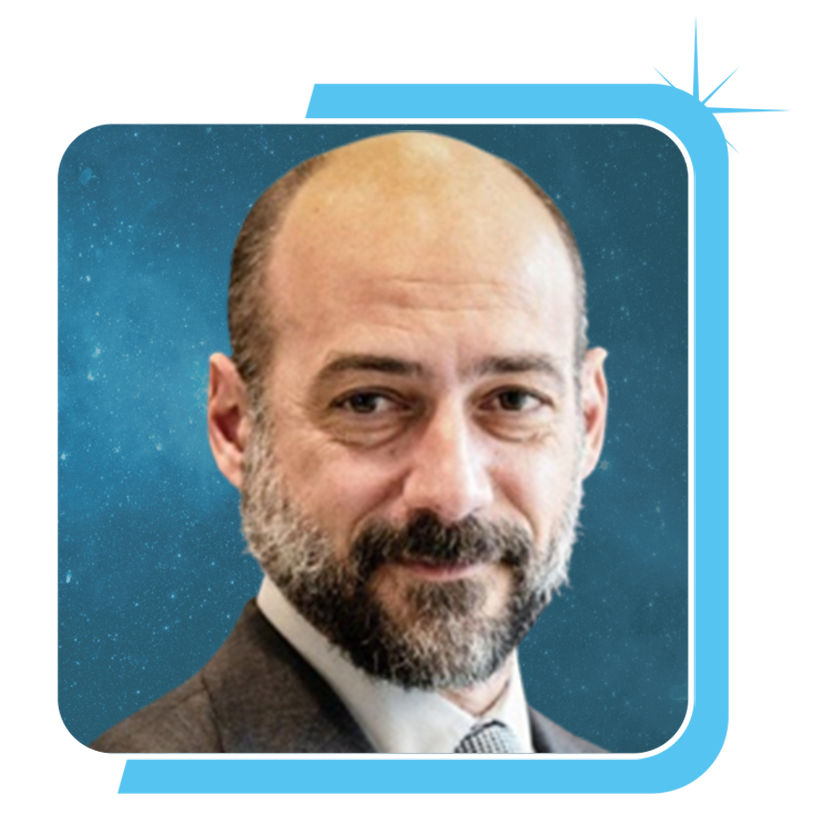
 Florent Mazurelle, Principal Security Strategy Officer, ESA
Florent Mazurelle, Principal Security Strategy Officer, ESA Two decades of experience in complex international relations analysis and European policy making, with specific emphasis on European affairs and the defence sector, through contributions as both legal and policy officer for the European Space Agency, European Defence Agency and European Commission.
This experience reinforces an academic background in public international law and international relations (Paris 10 Nanterre and American University’s Washington College of Law).
Current position: Principal Security Strategy Officer, Director General’s Cabinet, European Space Agency.
Specialties: Policy making, security strategy, governance, international relations and negotiations, legal analysis (international and European law).
Positions
Principal Security Strategy Officer
ESA

 Torsten Kriening, Publisher and CEO, SpaceWatch.Global
Torsten Kriening, Publisher and CEO, SpaceWatch.Global Torsten Kriening is Publisher and CEO of SpaceWatch.Global, an independent platform for space activities in a geopolitical context.
He is a business executive with academic and professional experience in space management, satellite communications, and broadcast technology. He has an electrical and telecommunications engineering background and studied information technology and computer science at the Technical College Berlin. Torsten began his career as software developer, before moving into sales management and business development, working at companies including 3Com, Lucent Digital Video, SES Astra, Bertelsmann and PTScientists.
A proud Berliner with a global outlook, Torsten expanded his horizons even further by attending the International Space University (ISU) and earning an Executive MBA. His ISU thesis analysed the capacity-building visions and opportunities of countries in the Gulf region, and he brings experience developing strong and lasting business relationships with Middle Eastern countries. With the global Space Café® talk series and the Space Café® Podcast he created widely recognized space outreach formats.
Publisher and CEO
SpaceWatch.Global

 Jaume Sanpera, CEO, Sateliot
Jaume Sanpera, CEO, Sateliot Jaume Sanpera, Sateliot’s CEO, is a seasoned executive with nearly 30 years of experience in the telecommunications industry. A prominent figure in Spanish technological entrepreneurship, he has founded multiple successful companies, including Eurona, the first telecom satellite operator in Europe listed on the stock market in 2010, and Ambientum, a leader in Spain’s environmental sector. His ventures have gained wide international presence, solidifying his reputation as an expert in telecommunications. Jaume’s achievements have earned him recognition in the media and forums, where he shares insights on innovation and leadership, further establishing his influence in the industry.
CEO
Sateliot

 Emma Marion, Associate, DLA Piper
Emma Marion, Associate, DLA Piper Emma Marion advises space, satellite, and telecommunications companies on regulatory and compliance matters before telecommunications regulators, including the United States Federal Communications Commission (FCC) and National Oceanic and Atmospheric Administration (NOAA). She assists companies in obtaining spectrum and imaging licenses, participating in rulemakings, coordinating market entry across multiple jurisdictions, and on issues relating to the International Telecommunication Union (ITU) Radio Regulations governing the international use of spectrum. Emma’s work spans a number of topics and has particularly focused on: licensing of novel space and satellite services, market access and global expansion, space safety and sustainability, communications equipment and infrastructure, and policy issues.
Associate
DLA Piper

 Peng Zhao, VP Policy and Regulatory, GSOA
Peng Zhao, VP Policy and Regulatory, GSOA Peng is the Vice President of Policy & Regulatory at GSOA, where he leads advocacy efforts around spectrum management, licencing, and national policy initiatives. With experience in telecoms, mobile, and satellites, he has advised governments and industry players globally.
Previously at Eutelsat OneWeb, Peng shaped licencing frameworks for Low Earth Orbit constellations and satellite regulatory procedures for WRC-23. At GSMA, he ran a global campaign to improve spectrum licensing conditions for mobile operators, leading a global team of policy expert to engage with policymakers across developing markets.
Peng holds a Master’s in Telecommunication from the Swiss Federal Institute of Technology and an Executive MBA from London Business School. He speaks English, Mandarin, and French fluently.
VP Policy and Regulatory
GSOA

 Thomas Weissenberg, Administrator, External Relations Department, ESA
Thomas Weissenberg, Administrator, External Relations Department, ESA An economist by profession, Thomas Weissenberg entered the space arena in 2002 as an administrator of international relations at the German Aerospace Center, DLR. Following a few years working in the industrial policy domain of the German Space Agency, Thomas became Head of International Relations at DLR in 2010. In 2016, Thomas Weissenberg joined ESA again supporting its relations with international partners. Since then, Thomas served as ESA’s representative at COPUOS, as Secretary of ESA’s International Relations Committee and takes care of partnering with several regions of the world.
Administrator, External Relations Department
ESA

 Kait Bolongaro, Managing Editor for Europe, MLex
Kait Bolongaro, Managing Editor for Europe, MLex Kait is the Managing Editor at MLex in Europe, where she leads a 25-strong editorial team covering a wide range of policy beats out of Brussels and London. She joined MLex in 2021 as the Senior Editor for the EU and UK. She previously worked as a reporter covering Canadian politics for Bloomberg and EU policy for Politico Europe. She was also a freelancer, reporting on politics, society, business and culture from five continents for outlets such as the BBC, the Guardian, VICE and Al Jazeera. Her reporting has won three prizes, including a silver medal from the United Nations Correspondents Association Global Prize on Climate Change in 2017 and a gold medal at the Canada Best in Business Awards from the Society of American Business Editors and Writers in 2021.
Managing Editor for Europe
MLex

 H.E. Dr. Tidiane Ouattara, President, African Space Council
H.E. Dr. Tidiane Ouattara, President, African Space Council Versatile bilingual professional with more than 24 years of experience in academia, private and public sectors in Canada, International organisation and abroad. Positions held span across strategic policy, program, research and operational dimensions. Fields of experience include leadership roles in space, program design and delivery, science and policy integration, geospatial data analysis and management (remote sensing and Geographical Information system (GIS)), environment (water erosion, wildlife conservation, landscape assessment and planning), R&D, knowledge management and international relations. Accomplishments include:
President
African Space Council
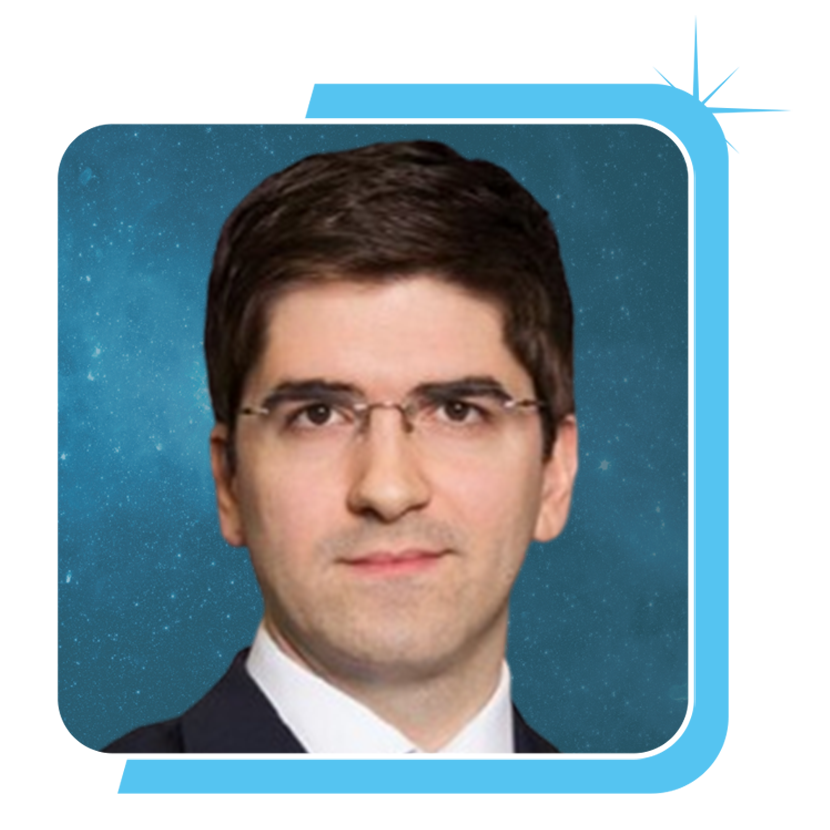
 Alexander Reissner, CEO, Enpulsion
Alexander Reissner, CEO, Enpulsion In 2016, Alexander founded the company ENPULSION, which quickly established itself as an industry standard in the field of electric propulsion systems for SmallSats. He started his career in the space business with Beyond Gravity, formerly known as RUAG Space, working in Thermal Hardware and later in Mechanical Engineering on projects like Sentinel or Bepi Colombo. He then joined the Austrian Institute of Technology and became the Team Leader for Electric Propulsion Systems. In 2013, he became Department Head shortly after it was moved to FOTEC, the research subsidiary of the Wiener Neustadt University of Applied Sciences and doubled its size. His personal expertise covers hydrogen-based energy systems, as well as electric propulsion technologies. After graduating from the Technical University of Vienna with a Dpl.Ing. (MSc) in Physics, he started a PhD programme at the Korean Advanced Institute of Science and Technology (KAIST), then followed his supervisor to the Technical University of Dresden to complete the programme.
CEO
Enpulsion

 Jordi Casanova Tormo, Head of Telecom & Space, EU Public Policy, Amazon
Jordi Casanova Tormo, Head of Telecom & Space, EU Public Policy, Amazon Currently Head of Telecoms and Space for Amazon’s EU Public Policy team, Jordi Casanova has over a decade of experience in competition and regulatory economics across a wide range of fields. Before joining Amazon in 2023, he was a senior economist at the EFTA Surveillance Authority, following on from roles focusing on telecoms and competition at the European Commission, Ofcom and the Spanish Market and Competition Authority. Jordi holds degrees in economics from the University of Valencia and Université Libre de Bruxelles, as well as an LLM from the College of Europe in Bruges. In addition to his interest in all things competition, regulation and policy, Jordi enjoys identifying promising startups to invest in and took his interest in viticulture to the next level as a co-owner of a start-up winery in his native Valencia.
Head of Telecom & Space, EU Public Policy
Amazon

 Josef Koller, Principal, Space Safety and Sustainability, Amazon
Josef Koller, Principal, Space Safety and Sustainability, Amazon Dr. Josef Koller is the Head of Space Safety and Sustainability at Amazon, Project Kuiper, a low Earth orbit (LEO) satellite broadband network with the mission to provide affordable broadband connectivity to underserved communities around the world. Using his decade-long expertise in space sustainability, Koller leads Amazon’s efforts to promote space safety policies, in the U.S. and around the globe, in support of the sustainable development of satellite operations in space.
Prior to Amazon, Koller served Systems Director for the Center for Space Policy and Strategy at The Aerospace Corporation and co-founder of the Space Safety Institute. He was also assigned as a senior advisor to the Office of the Secretary of Defense for Space Policy, where he directly supported key national and international strategy efforts for space-related U.S. government and policy matters. His portfolio included commercial remote sensing, space traffic management, and related congressional affairs. Prior to that assignment, Koller managed and co-led more than 40 scientists in the Space Science and Applications Group at Los Alamos National Laboratory. He also established and led the Los Alamos Space Weather Summer School to promote graduate student research and outreach at the laboratory.
Koller has more than 25 years of experience in space sustainability, space science, space policy, astrophysics, and strategy development. He has authored more than 50 peer-reviewed scientific publications with over 2,000 citations. He is also on the Editorial Board of the Journal of Space Safety Engineering and has been quoted in a variety of media outlets including NBC News, New York Times, NPR Marketplace, Les Echos, SpaceNews, and Popular Science.
Koller has a Ph.D. in Astrophysics from Rice University and Master’s degrees in Physics and Astronomy from the University of Innsbruck, Austria.
Principal, Space Safety and Sustainability
Amazon

 Caitlin Poling, Foreign Affairs Officer, Office of Space Affairs, U.S. Department of State
Caitlin Poling, Foreign Affairs Officer, Office of Space Affairs, U.S. Department of State Ms. Caitlin Poling is a Foreign Affairs Officer in the Office of Space Affairs in the U.S. State Department’s Bureau of Oceans, International Environmental, and Scientific Affairs. In this role, she works to advance civil and commercial space diplomacy covering Europe, space resources, and the U.N. Committee on Peaceful Uses of Outer Space (UNCOPUOS). Previously, Ms. Poling served as a Political Specialist for the Multilateral and Technical Affairs Section of the U.S. Mission to International Organizations in Vienna (UNVIE), where she worked on the peaceful uses of outer space and Comprehensive Nuclear Test Ban Treaty Organization portfolios and served on the U.S. delegation to the CTBTO Preparatory Commission and UNCOPUOS. A veteran of Capitol Hill, Ms. Poling most recently served as National Security Advisor to Senator David Perdue (Georgia). In this role, her portfolio included foreign relations, defense, cyber security, and international trade issues. Previously, Ms. Poling served as Director of Government Relations at the Foreign Policy Initiative, a DC-based think tank, where she also wrote on Africa and counterterrorism policy. Her work has been published in U.S. News and World Report, The Weekly Standard, Huffington Post, State Magazine, and e-International Relations. Ms. Poling spent four years in the U.S. House of Representatives, most recently working on foreign policy and homeland security for then-Congressman Mike Pompeo (KS-04).
Ms. Poling graduated with honors from Georgetown University with a master’s degree in international security studies in 2012. She wrote her master’s thesis on Boko Haram and affiliated terrorist groups in the Sahel. Caitlin graduated summa cum laude from Ashland University in Ohio with a Bachelor of Arts in Political Science, International Studies, and French (minor: International Business) and was a John M. Ashbrook Scholar.
Foreign Affairs Officer, Office of Space Affairs
U.S. Department of State

 Nick Sinanis, Counsellor for ITU-R Study Group 4, ITU
Nick Sinanis, Counsellor for ITU-R Study Group 4, ITU Nick Sinanis is the Counsellor for ITU-R Study Group 4 which deals with satellite radiocommunication services at ITU, ensuring the efficient collaboration among the ITU membership, facilitating the outcome of the studies of the World Radiocommunication Conference, delivering Recommendations and Reports. Previously he has covered another position in the ITU Space Services Department. He has extensive experience in regulatory telecommunications policy and processes for terrestrial and space radiocommunications.
Nick holds a master’s degree in physics and a doctorate degree in technical sciences. He has collaborated in the past with numerous universities, research centres and has several technical publications in network modelling and performance evaluation.
Counsellor for ITU-R Study Group 4
ITU

 Elizabeth Quintana, Principal, Satellite Industry Engagement, Ofcom
Elizabeth Quintana, Principal, Satellite Industry Engagement, Ofcom Bio to follow.
Principal, Satellite Industry Engagement
Ofcom

 Frederik C. Pedersen, Space Counsellor, Denmark’s Permanent Representation to the EU
Frederik C. Pedersen, Space Counsellor, Denmark’s Permanent Representation to the EU Frederik Carsten Pedersen is the Danish Space Counsellor to the EU, and he has been stationed to Denmark’s Permanent Representation to the EU since January 2024. He has worked at the Danish Ministry of Higher Education and Science in various roles related to policy since 2010. Since 2022 he has focused on EU and space policy. Frederik holds a degree in History and Political Science from the University of Copenhagen.
Space Counsellor
Denmark’s Permanent Representation to the EU

 Giancarlo Granero, Head of Unit for Space Economy, DG DEFIS, European Commission
Giancarlo Granero, Head of Unit for Space Economy, DG DEFIS, European Commission Experienced Head Of Unit with a demonstrated history of working in the government administration industry. Skilled in Government, European Integration, European Studies, Environmental Awareness, and International Relations. Strong business development professional graduated from IMD Business School.
Head of Unit for Space Economy, DG DEFIS
European Commission

 Isabella Poldrugo, Deputy Head of Unit, Space Policy, DG DEFIS, European Commission
Isabella Poldrugo, Deputy Head of Unit, Space Policy, DG DEFIS, European Commission Isabella Poldrugo is Acting Head of Unit the European Commission – Directorate-General for Defence Industry and Space (DEFIS), responsible for EU Space Policy. Objective of the unit is to design and ensure a coherent and overarching EU Space policy, including regulatory aspects and to foster an innovative and globally competitive EU Space ecosystem.
Isabella joined the Commission in 2019, where she worked as policy officer in the Unit dealing with space policy in the Directorate-General for Defence Industry and Space (DG DEFIS).
Before, she spent ten years in the European Parliament as policy advisor to Members of the European Parliament, dealing with dossiers on energy, industry and trade. She served also as policy advisor to the Italian Minister of Defence and to the Undersecretary of State for Defence.
Deputy Head of Unit, Space Policy, DG DEFIS
European Commission

 Laura Gibson – ten Bloemendal, Strategic Partnerships Manager, TU Delft – Aerospace Engineering
Laura Gibson – ten Bloemendal, Strategic Partnerships Manager, TU Delft – Aerospace Engineering Laura is a strategic partnerships manager with both the analytical skills for strategy and the determination to make things happen. A constant student, she learns easily, adapts quickly, and applies skills with intention.
She is most comfortable in multi-disciplinary and international environments, and tends to help bring people together who might have more in common than they would have seen on their own. Laura enjoys starting new endeavors, finding new solutions, and exploring new possibilities.
Strategic Partnerships Manager
TU Delft – Aerospace Engineering

 Edgar Milic, Managing Director for GomSpace Luxembourg and Strategic Business Growth Director, GomSpace
Edgar Milic, Managing Director for GomSpace Luxembourg and Strategic Business Growth Director, GomSpace Edgar is a passionate executive and space enthusiast with over 20 years of experience in the space, technology, and governmental sectors. He is currently Managing Director at GomSpace Luxembourg, a leader in small satellite solutions. Previously, he was the CEO of OHB LuxSpace, achieving a significant turnaround in three years. He also held leadership roles in business innovation and development at SES Satellites. Edgar’s early career includes project management for Earth Observation at GMV and service as an officer in the Italian Air Force. He holds advanced degrees in aerospace engineering and business, mentors startups, and has lectured on space business and entrepreneurship. He is a proud father of three kids.
Managing Director for GomSpace Luxembourg and Strategic Business Growth Director
GomSpace

 Ben Wreschner, Group Regulatory Policy Director, Vodafone
Ben Wreschner, Group Regulatory Policy Director, Vodafone Ben Wreschner joined Vodafone in February 2011 and is the Group Regulatory Policy Director for the Vodafone Group. Prior to joining Vodafone Mr Wreschner qualified as a Chartered Accountant with PricewaterhouseCoopers in 1999 and then joined the PwC telecoms consulting practice. In 2009 Ben joined Ovum’s regulatory consulting practice. Mr Wreschner is an expert in regulatory strategy, market analysis, regulated pricing, cost modelling and regulatory accounting overseeing Vodafone’s work in this field across all its territories and having previously advised operators and regulators on such matters in over 25 different countries. He has worked extensively in the Brussels policy environment representing Vodafone at key meetings with policy makers (European Commission, European Parliament, European Council, BEREC) and industry bodies (GSMA, ECTA).
Mr Wreschner passed the Certified Financial Analyst exams (CFA) in 2003. He holds a BSc (Econ) from the London School of Economics.
Group Regulatory Policy Director
Vodafone

 Julien Martin, Consultant, NERA
Julien Martin, Consultant, NERA Julien Martin specializes in game theory and market design, with a focus on facilitating efficient resource allocation. He leverages his expertise to assist governments, regulators, and firms across a range of industries, ensuring optimal outcomes in complex market dynamics.
Consultant
NERA

 Damien Murat, IRIS² Programme Manager, Eutelsat Group
Damien Murat, IRIS² Programme Manager, Eutelsat Group Bio to follow.
IRIS² Programme Manager
Eutelsat Group
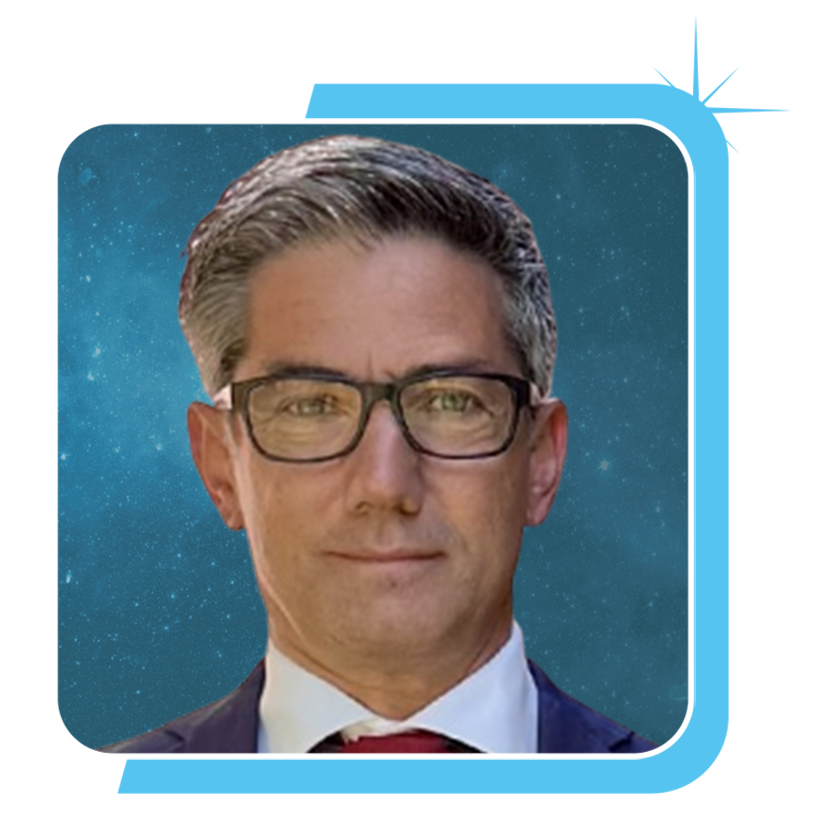
 Augusto Caramagno, Director of Strategy, Cooperation and Growth, Indra Space
Augusto Caramagno, Director of Strategy, Cooperation and Growth, Indra Space Bio to follow.
Director of Strategy, Cooperation and Growth
Indra Space

 Néstor Zarraoa, Director, Navigation Procurement and Purchases, GMV
Néstor Zarraoa, Director, Navigation Procurement and Purchases, GMV Néstor Zarraoa holds a Ph.D. in Mathematics by the Universidad Complutense de Madrid. He developed a fruitful 10-year long scientific career in Space Geodesy, particularly on geophysical and atmospheric applications of VLBI and GNSS working for Research Centres in Spain (CSIC), Norway (NMA) and Germany (DLR).
In 1997 he joins GMV within the GNSS Business Unit, where he will hold different positions, starting as Technical Manager within EGNOS development projects and turning into Division Head managing GMV contributions to both EGNOS and Galileo, among other projects.
From 2011 to 2018 he becomes the Engineering Department Director within GMV Aerospace, leading a team of close to 100 engineers supporting a wide variety of technical domains transversal to all Aerospace and Defence areas, including Systems Engineering, Critical SW Development, Front and Back-End SW Development, RAMS or specialized AIV.
When GMV was awarded in 2018 the Galileo Ground Control Segment for the Exploitation Phase, Néstor, who had led all the process of proposal preparation, is appointed as Business Unit Director and Project Manager of this strategic project for GMV, with full focus on turning this challenging opportunity into a remarkable success, as was demonstrated by the successful and timely deployment of a fully evolved and state of the art Galileo GCS and the subsequent award to GMV of the Galileo Second Generation In-Orbit Validation contract for the Ground Control System, for which he also led the proposal phase.
Following an internal reorganization, Néstor becomes in 2022 Director of Procurement and Purchases for GMV Navigation, working close to GMV Navigation Director and holding full responsibility on all contractual aspects affecting GMV Navigation sector as well as Managing the entire ecosystem of Subcontractors and Suppliers which are key to the success of all GMV activities.
Director, Navigation Procurement and Purchases
GMV

 Henri van Soest, Senior Analyst, RAND Europe
Henri van Soest, Senior Analyst, RAND Europe Henri van Soest is a senior analyst at RAND Europe and a professor of policy analysis at the RAND School of Public Policy. He focuses on energy and natural resources governance and AI governance. He has also worked on space, cybersecurity, economic security, critical infrastructure protection, and societal resilience. At RAND, he has managed studies involving global teams for a wide range of clients including the European Union, the UK government, and the Dutch government. Van Soest previously worked as a researcher in energy policy and digitalisation at the University of Oslo, as an analyst in the cleantech startup sector, and as a corporate governance and corporate social responsibility analyst in a multinational bank. He completed his Ph.D. at the University of Cambridge, with a thesis on the regulation of cybersecurity in the European electricity system. He also holds a joint LL.M. from KU Leuven in Belgium and the University of Zurich.
Senior Analyst
RAND Europe
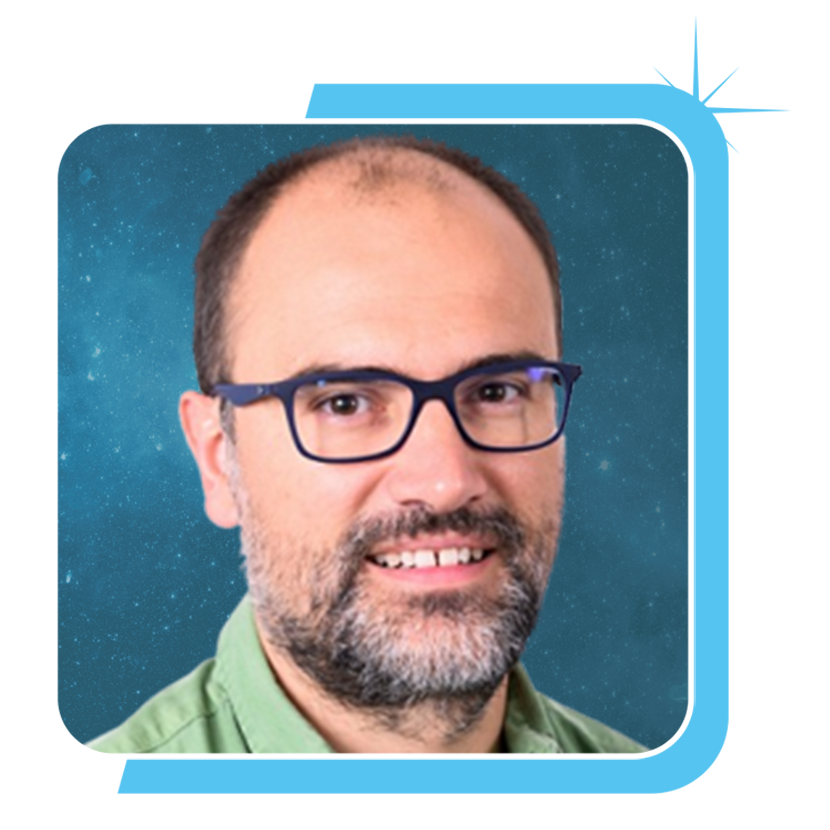
 Alberto Águeda, Director of Space Surveillance and Traffic Management, GMV
Alberto Águeda, Director of Space Surveillance and Traffic Management, GMV Alberto is an MSc Aerospace Engineer with +20 years of international experience in the space market within GMV and +15 years of managerial and business development experience. He has on significant technical expertise in Space Flight Dynamics, Navigation, (Precise) Orbit Determination, Space Surveillance & Tracking, and Space Traffic Management.
Currently, he is the Director of Space Surveillance and Traffic Management (SST & STM) at GMV. He is the head of the department´s operations, including management (+130 engineers in 8 countries: Spain, Germany, France, UK, Poland, Romania, Portugal and USA), accounting (+10 M€ yearly revenue, with average 2-digit annual growth in the last decade), business development (dozens of customers and partners) and contracts.
His mission is to manage the Space Surveillance and Traffic Management (SST & STM) business and its engineering team and ensure their respective growth to strengthen GMV’s leading position and look for new customers, opportunities, and niches for GMV’s advanced technology, systems, products, and services in these fields.
Director of Space Surveillance and Traffic Management
GMV

 Christine Leurquin, Director of European & Public Affairs & CEO, Aldoria Belgium
Christine Leurquin, Director of European & Public Affairs & CEO, Aldoria Belgium Christine Leurquin is a successful, result-driven public affairs and business development professional, with extensive experience in both public and private sector. She has a proven track-record of effective advocacy in the field of European Space and Defence Public strategies, Cybersecurity directives, SSA/SDA, 5G/6G, Space Policy, Quantum, Government Satcom, ESA projects, and has worked relentlessly to improve digitalization of Africa. She has a valued-based approach to Public Affairs: inspiring trust, leading with the head and the heart, acting like an owner and with integrity.
Since February 2025, she is the CEO of ALDORIA Belgique a subsidiary of French-based ALDORIA for which she works as Senior Director, European & Public Affairs at since October 2024. She created her own company MiThraSpace SRL and consulted in 2024 with ERNST AND YOUNG Brussels Space and Defence practice, and SPACEBEL. Before this she worked for RHEA Group and reported to the CEO of the RHEA Group and to the Chief Strategy Officer and Managing Director of RHEA System Luxembourg S.A. She has been responsible for raising the visibility of RHEA among others with the European Institutions, Belgian and Luxembourg MoD, BELSPO, European Agencies and Luxembourg Space Agency and other national organizations as required. She helped to best-position RHEA into the current opportunities associated to new Space and Cybersecurity European programs, in Cybersecurity and Defense (e.g. EDA Cyber Captech REMUDO project). She was instrumental in developing RHEA Luxembourg business which has moved from two persons in 2020 to 20 end 2023.
In her previous position, she was Vice-President, Institutional Relations at SES S.A. and worked directly under SES CEO’s reporting also to the Board and the General Counsel. She positioned the Company within the European Union, African Union and other international institutions, such as OECD, UEMOA, UNIDO, UNOOSA, ESA or OECD, she engaged in helping the operational companies to develop new governments and institutional markets. She was successful in winning key contracts such but not limited to EGNOS GEO1 and EGNOS GEO2. Before joining SES, she was the CEO of a company which she started, and which introduced new satellite services in Belgium. She turned it into a successful and profitable business.
With her ability to speak various languages, Mrs Leurquin has excellent communication skills, conveying her message clearly, concisely, and accurately impacting policymakers and investors at the highest level. She can bring unity, leadership skills, motivation and fresh new ideas with her management, peers and teammates.
Career Steps:
Associations and Accomplishments:
Education:
Director of European & Public Affairs & CEO
Aldoria Belgium

 Javier Izquierdo, Strategy Director, Hispasat
Javier Izquierdo, Strategy Director, Hispasat Wide Experience in THE TELCO AND AUDIO-VISUAL MARKET in EUROPE AN LATINAMERICA
Leading Operational, Technical and Commercial teams in different companies inside TELEFONICA. The last six years working in the Global Areas of TELEFONICA and till February 2020. Javier was part of the Operations and Customer Experience at GCTIO as Operations Director of Global Platforms (IoT, MVNE, etc..) and Video Services (IPTV, CATV, DTH, OTT), and from that date he lead the Shutdown of the Direct To Home (DTH) service and analysing new possible products and services.
Javier has always worked in Markets in Competition and depending on the Position, he has been responsible of P&L, business development, Channel strategy and sales strategy.
Javier considers himself a client-oriented person and has strong team building capabilities. He has excellent negotiation abilities, vision for development of new businesses and strategic analytical skills. He has a robust record of success in achieving complex objectives and timelines while building an exceptional team of professionals.
Areas of experience
– Open new business lines
– Management of complete business lines and companies
– Development of strategic plans
– Create and manage teams
– Negociations
– Human resources management
Strategy Director
Hispasat

 Chris White-Horne, Space Director - UK Department for Science, Innovation and Technology
Chris White-Horne, Space Director - UK Department for Science, Innovation and Technology Chris is Deputy CEO (job share) at the UK Space Agency.
Together with Annelies Look, he is responsible for the delivery of all the UK Space Agency’s major programmes, from space science, exploration and Earth Observation missions, to enabling satellite launch from UK spaceports and improving space sustainability.
Chris joined the UK Space Agency in 2023, having previously been the Senior Responsible Owner (job share) for the Rail Transformation Programme in the Department for Transport. Previously Chris had a 25-year career in defence and aviation, including as programme director and chief engineer in the international programme office for the Typhoon aircraft programme in Munich.
Chris lives in Gloucestershire and beyond his day job is a trombone teacher, music charity trustee and non-executive director of a multi-academy school trust.
Space Director
UK Department for Science, Innovation and Technology

 Astrid-Christina Koch, Senior Expert, Space Data Economy and International Cooperation, DG DEFIS, European Commission
Astrid-Christina Koch, Senior Expert, Space Data Economy and International Cooperation, DG DEFIS, European Commission Astrid-Christina Koch is Senior Expert in the DG Defence Industry and Space (DEFIS) of the European Commission. She works on the international dimension of the EU Space Programme together with European and International partners. She is the point of contact for the Committee on Earth Observation Satellites (CEOS) in DG DEFIS and is supporting cooperation on Copernicus worldwide. From 2007 – 2012 she served as science diplomat in the EU Delegation to the United States in Washington DC promoting transatlantic science and space cooperation. She started her career in the Commission in DG RTD in the unit for advanced materials. During that time she developed the instrument of ‘coordinated/joint calls’ with third countries within the 7th Framework Programme for Research & Innovation (FP7), notably with the U.S. National Science Foundation (NSF). Before joining the Commission, she worked as deputy policy coordinator of the five German Customs Laboratories in Germany at the Ministry of Finance, and was the German Delegate to the TAXUD Customs Nomenclature Committee and the Science Committee of the World Customs Organisation. She promoted the development of the European Customs Chemists Network. Astrid is an organic preparative chemist & and received a Ph.D. in Natural Science from the Christian – Albrechts University in Kiel/Germany.
Senior Expert, Space Data Economy and International Cooperation, DG DEFIS
European Commission

 William Smith, International Negotiation & Future Partnerships Manager, Space Directorate, United Kingdom
William Smith, International Negotiation & Future Partnerships Manager, Space Directorate, United Kingdom Bio to follow.
International Negotiation & Future Partnerships Manager
Space Directorate, United Kingdom

 Martyna Perek, Chief Expert, Chair of the Space Working Party, Polish Presidency in the EU Council 2025, Ministry of Economic Development and Technology, Poland
Martyna Perek, Chief Expert, Chair of the Space Working Party, Polish Presidency in the EU Council 2025, Ministry of Economic Development and Technology, Poland Martyna Perek has over 15 years of experience in European economic and regulatory affairs, with a particular focus on space policy. She began her public service career in 2009 at the Ministry of Economy and has held various roles related to the EU internal market and regulatory coordination. From 2016 to 2022, she served as First Secretary at the Permanent Representation of Poland to the EU in Brussels, acting as attaché for space, industry, and internal market affairs. Following a two-year tenure in the private sector as a regulatory affairs expert in the e-commerce industry, she returned to public administration in 2024 to take up the EU space policy matters in the Department of Defence Industry. She was chairing the EU Council’s Space Working Party during the Polish Presidency 2025. Ms. Perek holds international academic credentials, including programs at MIT (New Space Economy) and Stanford Graduate School of Business (Influence & Negotiation Strategies).
Chief Expert, Chair of the Space Working Party, Polish Presidency in the EU Council 2025
Ministry of Economic Development and Technology, Poland

 Ivan Janes, Chief Systems & Products Officer, Telespazio Germany
Ivan Janes, Chief Systems & Products Officer, Telespazio Germany Dr. Ivan Janes is an accomplished executive with over two decades of leadership experience at the intersection of strategy, systems and innovation in the European Space, Defence, Aviation and Energy sectors. Currently serving as Chief Systems & Products Officer, he oversees mission-critical capabilities spanning, among others, ground infrastructure, cybersecurity, satellite communications and simulation services.
With a Ph.D. in Computer Science and extensive experience spanning systems engineering and executive commercial leadership, Dr. Janes brings a uniquely strategic perspective, translating technical depth into business value, operational excellence and high-impact solutions that meet real customer needs. He is a regular contributor to executive forums focused on digital resilience, emerging space markets and the future of European industrial collaboration.
Chief Systems & Products Officer
Telespazio Germany
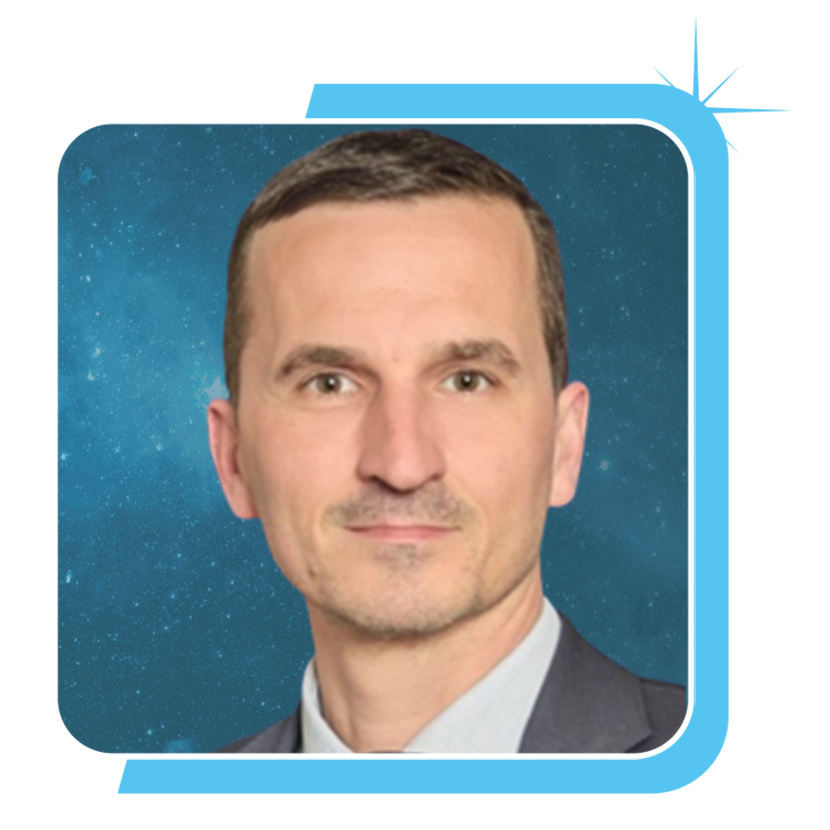
 Vincent Brison, Joint Office in Space Navigation in European Commission, European Union Agency for the Space Programme (EUSPA)
Vincent Brison, Joint Office in Space Navigation in European Commission, European Union Agency for the Space Programme (EUSPA) With over 20 years of experience in the field of satellite navigation, Vincent Brison joined the EUSPA (formerly GSA – European GNSS Agency) in 2013 as EGNOS Operations and Maintenance Manager. Prior to his engagement with the EUSPA, he held various positions in both public and private sectors, namely at the European Commission as Project officer and at the EGNOS Service Provider as Operations Manager. Brison holds a Master’s degree in Civil Engineer in Electronics & Telecommunications. Since 2021 he is EUSPA member of the Joint Office for Galileo and EGNOS at the DG DEFIS.
Joint Office in Space Navigation in European Commission
European Union Agency for the Space Programme (EUSPA)

 Vincent Brison, Joint Office in Space Navigation in European Commission, European Union Agency for the Space Programme (EUSPA)
Vincent Brison, Joint Office in Space Navigation in European Commission, European Union Agency for the Space Programme (EUSPA) With over 20 years of experience in the field of satellite navigation, Vincent Brison joined the EUSPA (formerly GSA – European GNSS Agency) in 2013 as EGNOS Operations and Maintenance Manager. Prior to his engagement with the EUSPA, he held various positions in both public and private sectors, namely at the European Commission as Project officer and at the EGNOS Service Provider as Operations Manager. Brison holds a Master’s degree in Civil Engineer in Electronics & Telecommunications. Since 2021 he is EUSPA member of the Joint Office for Galileo and EGNOS at the DG DEFIS.
Joint Office in Space Navigation in European Commission
European Union Agency for the Space Programme (EUSPA)

 Vincent Brison, Joint Office in Space Navigation in European Commission, European Union Agency for the Space Programme (EUSPA)
Vincent Brison, Joint Office in Space Navigation in European Commission, European Union Agency for the Space Programme (EUSPA) With over 20 years of experience in the field of satellite navigation, Vincent Brison joined the EUSPA (formerly GSA – European GNSS Agency) in 2013 as EGNOS Operations and Maintenance Manager. Prior to his engagement with the EUSPA, he held various positions in both public and private sectors, namely at the European Commission as Project officer and at the EGNOS Service Provider as Operations Manager. Brison holds a Master’s degree in Civil Engineer in Electronics & Telecommunications. Since 2021 he is EUSPA member of the Joint Office for Galileo and EGNOS at the DG DEFIS.
Joint Office in Space Navigation in European Commission
European Union Agency for the Space Programme (EUSPA)
Note: All timings are in Central European Summer Time (CEST).
*** TIMES ARE IN CET ***
Matija Rencelj is the Research Manager at the European Space Policy Institute (ESPI). His work focuses on inter-institutional relations, and European and global policy developments, with studies undertaken on topics ranging from orbital carrying capacity to the history of commercial space. He previously worked with the European Space Agency, the European Commission, in the aviation and commodities sectors, and started his career as a lawyer at a corporate law firm. He holds an LL.M. in Air & Space Law from McGill University and a Law Degree from the University of Ljubljana. At ESPI, he first served as Research Fellow for two years, before taking on the responsibility to oversee the Institute’s research output, manage day-to-day operations, and translate the Institute’s work to real-world impact.
Josef Aschbacher, of Austrian nationality, is a geophysicist by education. He joined ESA in 1990. Throughout his career he held various positions in different locations. He also worked for the European Union. In 2016 he became ESA’s Director of Earth Observation, and in 2021 he took office as ESA’s Director General.
Experienced Head Of Unit with a demonstrated history of working in the government administration industry. Skilled in Government, European Integration, European Studies, Environmental Awareness, and International Relations. Strong business development professional graduated from IMD Business School.
Isabelle Mauro is Director General of the Global Satellite Operators Association (GSOA) that represents the interests of 29 global and regional satellite operators. She reports directly to their Chief Executives.
Under Isabelle’s leadership, GSOA and its member CEOs lead the effort to showcase the benefits of satellite communications for a more inclusive and secure society – vital to bridging the world’s digital divide, achieving the UN’s Sustainable Development Goals and realizing the 5G ecosystem.
Isabelle has 25 years experience in the Telecoms and Technology sector, starting at the GSMA, where she was responsible for government and international Affairs. In 2015 she moved to New York to join the World Economic Forum as Head of Information, Communications and Technology Industries, managing the portfolio for 60+ Tech companies globally and leading initiatives on inclusive and sustainable digital transformation.
Isabelle is passionate about inclusion and sustainability. She is Chair of the High-Level Advisory Board of the DigitalGoesGreen Foundation. She also sits on the Advisory Board of Women in Tech and is a member of the UNESCO Advisory Group for the Declaration on Connectivity for Education.
Isabelle holds an MSc in European Politics and Policy from the London School of Economics. She is fluent in French, English, Italian and Spanish.
Hermann Ludwig Moeller is the Director of European Space Policy Institute since September 2022. Prior to joining ESPI, he held leading positions at ESA in the creation of EU Copernicus and in the preparation of the EU Secure Connectivity initiative as Head of Telecommunications Strategy, Programme and Transformation Office and as Head of Copernicus Space Segment Office. In these functions, Mr. Moeller has been operating with high level leadership in a complex multi-stakeholder policy environment in public-private partnerships with industry, at EU level, with EUMETSAT and with national space agencies and delegations. Prior to that he held the ESA Douglas Marsh Fellow at NASA and contributed to the creation of the European Internet backbone. He acquired early professional experience at the European Patent Office and with Siemens.
Unveiled last week, the EU Space Act (EUSA) has set forth an ambitious vision for the sector. Set to apply from 2030, it is structured around three key pillars: safety, sustainability, and resilience; and aims to replace the current patchwork of national-level laws and create a single market for space activities across the region. This session will explore the primary objectives of the EUSA, and the measures that are being proposed in order to deliver these. It will look at the next steps for stakeholders, as well as the role that the EUSA can play as part of the broader regulatory framework to address competitive disadvantages and foster a unified, dynamic, and resilient space market.
Christophe Grudler is a French Member of the European Parliament (MEP),member of the Renew Europe group.
Historian and journalist by training, his political commitment started at an early stage of his career. He is particularly involved at the local level in his hometown, Belfort, where he has been elected as a local representative several times.
Within the European Parliament, he is Vice-Coordinator of the ITRE Committee (Industry, research and energy) for the Renew Europe group. He is also a member of the Foreign Affairs (AFET) and Security and Defence (SEDE) committees. Furthermore, he is Vice President of the Sky & Space Intergroup of the European Parliament.
MEP Grudler is particularly involved on energy and industry related topics, as well as on space and defence policies. He has been appointed as rapporteur for the European Parliament on the Initiative report on Energy System Integration and recently on the future European secure connectivity. He is also shadow rapporteur for his group on the European Industrial Strategy, the revision of the Renewable Energy Directive (RED) and on the European Space Programme.
Currently Head of Telecoms and Space for Amazon’s EU Public Policy team, Jordi Casanova has over a decade of experience in competition and regulatory economics across a wide range of fields. Before joining Amazon in 2023, he was a senior economist at the EFTA Surveillance Authority, following on from roles focusing on telecoms and competition at the European Commission, Ofcom and the Spanish Market and Competition Authority. Jordi holds degrees in economics from the University of Valencia and Université Libre de Bruxelles, as well as an LLM from the College of Europe in Bruges. In addition to his interest in all things competition, regulation and policy, Jordi enjoys identifying promising startups to invest in and took his interest in viticulture to the next level as a co-owner of a start-up winery in his native Valencia.
Wide Experience in THE TELCO AND AUDIO-VISUAL MARKET in EUROPE AN LATINAMERICA.
Leading Operational, Technical and Commercial teams in different companies inside TELEFONICA. The last six years working in the Global Areas of TELEFONICA and till February 2020. Javier was part of the Operations and Customer Experience at GCTIO as Operations Director of Global Platforms (IoT, MVNE, etc..) and Video Services (IPTV, CATV, DTH, OTT), and from that date he lead the Shutdown of the Direct To Home (DTH) service and analysing new possible products and services.
Javier has always worked in Markets in Competition and depending on the Position, he has been responsible of P&L, business development, Channel strategy and sales strategy.
Javier considers himself a client-oriented person and has strong team building capabilities. He has excellent negotiation abilities, vision for development of new businesses and strategic analytical skills. He has a robust record of success in achieving complex objectives and timelines while building an exceptional team of professionals.
Areas of experience
– Open new business lines
– Management of complete business lines and companies
– Development of strategic plans
– Create and manage teams
– Negociations
– Human resources management
Dr. Ivan Janes is an accomplished executive with over two decades of leadership experience at the intersection of strategy, systems and innovation in the European Space, Defence, Aviation and Energy sectors. Currently serving as Chief Systems & Products Officer, he oversees mission-critical capabilities spanning, among others, ground infrastructure, cybersecurity, satellite communications and simulation services.
With a Ph.D. in Computer Science and extensive experience spanning systems engineering and executive commercial leadership, Dr. Janes brings a uniquely strategic perspective, translating technical depth into business value, operational excellence and high-impact solutions that meet real customer needs. He is a regular contributor to executive forums focused on digital resilience, emerging space markets and the future of European industrial collaboration.
Torsten Kriening is Publisher and CEO of SpaceWatch.Global, an independent platform for space activities in a geopolitical context.
He is a business executive with academic and professional experience in space management, satellite communications, and broadcast technology. He has an electrical and telecommunications engineering background and studied information technology and computer science at the Technical College Berlin. Torsten began his career as software developer, before moving into sales management and business development, working at companies including 3Com, Lucent Digital Video, SES Astra, Bertelsmann and PTScientists.
A proud Berliner with a global outlook, Torsten expanded his horizons even further by attending the International Space University (ISU) and earning an Executive MBA. His ISU thesis analysed the capacity-building visions and opportunities of countries in the Gulf region, and he brings experience developing strong and lasting business relationships with Middle Eastern countries. With the global Space Café® talk series and the Space Café® Podcast he created widely recognized space outreach formats.
Girish Chandran serves as Corporate Chief Technical Officer and President, Global Space Networks at Viasat, Inc. In this role he oversees the evolution of Viasat’s global network, which is responsible for connecting millions of personal and mobile devices per year—on the ground, in the air, and at sea. He also leads the company’s central engineering group.
He has extensive experience in building products and networks on multiple continents and leading change in engineering organizations. Girish and his team focus on how next-generation communications infrastructure, especially software-based technologies, will continue to be an integral part of the digital ecosystem connecting people, places and things.
Girish has held a number of engineering roles at Viasat since joining the company in October 2007, from Principal Engineer and Chief Technology Officer — Commercial Networks to his current position, which he assumed in January 2025.
Prior to joining Viasat, Girish held several senior level engineering roles at various companies including Vice President of Engineering at Newtec America Inc., a satellite communications equipment provider, and Vice President of Systems Engineering at Tiernan Communications Inc. (acquired by Radyne Comstream Inc.), a provider of video compression and transmission solutions.
Girish earned a Ph.D. degree in Electrical Engineering from the University of California, San Diego, and a Master’s of Science degree in Electrical Communication Engineering from the Indian Institute of Science.
The European Commission’s ‘Vision for the Space Economy’ was related last week with the aim to position the EU as a global leader in the space economy by 2050. Establishing over 40 targeted actions to strengthen the EU’s space ecosystem, the Vision marks the first time the European space economy is addressed as a comprehensive ecosystem, spanning its industrial base as well as orbital and emerging beyond-orbital domains. This session will examine the objectives and strategic priorities of the Vision and explore how it can build on existing European wide efforts to effectively advance these key goals. Exploring how stakeholders are working to overcome challenges to operationalise their ambition, panelists will outline their expectations for the future of European competitiveness, and how they are accelerating innovation and commercialisation in a rapidly evolving global industry.
Experienced Head Of Unit with a demonstrated history of working in the government administration industry. Skilled in Government, European Integration, European Studies, Environmental Awareness, and International Relations. Strong business development professional graduated from IMD Business School.
Charlotte Mathieu is the Head of the Industrial Policy and Space Economy Division at the European Space Agency (ESA).
She holds a Master’s Degree in Aerospace Engineering from the Ecole Centrale Paris, France, and the Royal Institute of Technology (KTH), Sweden, as well as a degree in Economic Analysis and Policy. After a first experience in the launcher industry, she joined ESA and its technical centre, ESTEC, in the Netherlands. She spent then two years at the Massachussetts Institute of Technology (MIT) in the US, where she obtained a Master’s Degree in Technology and Policy and worked on an innovative satellite project for the Defence Advanced Research Project Agency (DARPA). In 2007 she joined the European Space Policy Institute (ESPI) in Austria, where she led several studies and publications. In 2009 she joined ESA’s Headquarters in Paris, where she has worked in the Director General’s Policy Office, in the Director General’s Office for Relations with the European Union, in the Directorate of Telecommunications and Integrated Applications and now in the Directorate of Commercialisation, Industry and Competitiveness.
Jaume Sanpera, Sateliot’s CEO, is a seasoned executive with nearly 30 years of experience in the telecommunications industry. A prominent figure in Spanish technological entrepreneurship, he has founded multiple successful companies, including Eurona, the first telecom satellite operator in Europe listed on the stock market in 2010, and Ambientum, a leader in Spain’s environmental sector. His ventures have gained wide international presence, solidifying his reputation as an expert in telecommunications. Jaume’s achievements have earned him recognition in the media and forums, where he shares insights on innovation and leadership, further establishing his influence in the industry.
In 2016, Alexander founded the company ENPULSION, which quickly established itself as an industry standard in the field of electric propulsion systems for SmallSats. He started his career in the space business with Beyond Gravity, formerly known as RUAG Space, working in Thermal Hardware and later in Mechanical Engineering on projects like Sentinel or Bepi Colombo. He then joined the Austrian Institute of Technology and became the Team Leader for Electric Propulsion Systems. In 2013, he became Department Head shortly after it was moved to FOTEC, the research subsidiary of the Wiener Neustadt University of Applied Sciences and doubled its size. His personal expertise covers hydrogen-based energy systems, as well as electric propulsion technologies. After graduating from the Technical University of Vienna with a Dpl.Ing. (MSc) in Physics, he started a PhD programme at the Korean Advanced Institute of Science and Technology (KAIST), then followed his supervisor to the Technical University of Dresden to complete the programme.
Edgar is a passionate executive and space enthusiast with over 20 years of experience in the space, technology, and governmental sectors. He is currently Managing Director at GomSpace Luxembourg, a leader in small satellite solutions. Previously, he was the CEO of OHB LuxSpace, achieving a significant turnaround in three years. He also held leadership roles in business innovation and development at SES Satellites. Edgar’s early career includes project management for Earth Observation at GMV and service as an officer in the Italian Air Force. He holds advanced degrees in aerospace engineering and business, mentors startups, and has lectured on space business and entrepreneurship. He is a proud father of three kids.
Matija Rencelj is the Research Manager at the European Space Policy Institute (ESPI). His work focuses on inter-institutional relations, and European and global policy developments, with studies undertaken on topics ranging from orbital carrying capacity to the history of commercial space. He previously worked with the European Space Agency, the European Commission, in the aviation and commodities sectors, and started his career as a lawyer at a corporate law firm. He holds an LL.M. in Air & Space Law from McGill University and a Law Degree from the University of Ljubljana. At ESPI, he first served as Research Fellow for two years, before taking on the responsibility to oversee the Institute’s research output, manage day-to-day operations, and translate the Institute’s work to real-world impact.
With over 20 years of experience in the field of satellite navigation, Vincent Brison joined the EUSPA (formerly GSA – European GNSS Agency) in 2013 as EGNOS Operations and Maintenance Manager. Prior to his engagement with the EUSPA, he held various positions in both public and private sectors, namely at the European Commission as Project officer and at the EGNOS Service Provider as Operations Manager. Brison holds a Master’s degree in Civil Engineer in Electronics & Telecommunications. Since 2021 he is EUSPA member of the Joint Office for Galileo and EGNOS at the DG DEFIS.
In December 2024, the European Commission, with the technical support of the European Space Agency (ESA), achieved a key milestone in Europe’s space ambitions by finalising a concession contract with the SpaceRISE consortium, thus transitioning IRIS² from concept to implementation. As efforts now shift towards building a secure and resilient satellite constellation – set to begin providing services in early 2030 – this session will examine the next steps for IRIS². With the consortium established, it will look at the timeline ahead and how stakeholders are collaborating to achieve the goals of this pivotal ambition.
Jeremie Godet joined the European Commission in 2003, after an initial career at CNES, the French Space Agency and the European Space Agency. He was involved for 20 years in the Galileo Programme at various positions. He was leading the technical negotiation on the GPS Galileo agreement in 2004. He was also Head of the security department at the European GNSS Agency in Prague. Then he was in charge of overseeing the Galileo infrastructure deployment and deputy to the Head of Unit in charge of EU GNSS programme in DG DEFIS. He is now acting Head of Unit in charge of implementing IRIS², Govsatcom and Space Surveillance and Tracking programmes. He has both an engineering degree from National Superior School for Telecommunications in France and a Master’s degree from the International Space University
Koen Willems is the Vice President European Union Programs and Government Relations at ST Engineering iDirect, where he defines and develops the global strategy for the government and defense market.
Before joining ST Engineering iDirect in 2008, he was Product Marketing Manager for Europe at the electronics giant TOSHIBA.
Willems has more than 25 years’ experience working in the technology industry. His expertise in the government and defense satellite market has grown through his involvement in different large (EU) programs, as well as frequent interactions with the end-user community and a range of topic-related degrees such as the ‘High Studies in Security and Defence’ degree at the Belgian Royal Higher Institute for Defence; the ‘European Session for Armament Officials’ degree at the French National Institute of Higher Defense; and the ‘European Advanced Strategy Course on Security and Defense’ degree at the Egmont Institute, IHEDN and BAKS.
Willems has a master’s in English and Scandinavian Languages from Ghent University and a master’s in Marketing Strategy and Management from Vlekho Business School.
Antonio Abad (Almería, Spain, 1963) holds a Master of Sciences in Aeronautical Engineering from the Polytechnic University of Madrid and is graduated in Senior Management in the ‘General Management Program (GMP)’ and in ‘Digital Transformation’ from IESE Business School. He completed his training with different Leadership, Talent Development, and Organization and People Empowerment courses, also at IESE, Navarra University.
In addition, he has been professionally recognized becoming an academician at the International Academy of Astronautics (IAA) and the Academie de l’Air and l‘Espace (AAS). He is also a senior member of the American Institute of Aeronautics and Astronautics (AIAA) and the Institute of Electric and Electronic Engineers (IEEE).
After initiating his professional activities at Telefónica Sistemas in 1989, from 1991 up to date he has developed his career at HISPASAT in different engineering and management responsibilities. Since 2003 he is the Chief Technical Officer of HISPASAT, being responsible for the definition and implementation of satellite systems, launchers, control centers, and ground stations, as well as their operation and control. In 2019, he also took over the responsibilities for the development of the future space infrastructure of HISPASAT, analyzing from High Altitude Platforms to Cubesats, Software Defined Satellites, and Constellations. Since 2020 he is promoting the development of Space Quantum Communications, with the first application in Quantum Key Distribution, and the development of a Common Lunar Communications infrastructure.
He has been a speaker at numerous conferences and seminars, including Washington Satellite and World Satellite Business Week in Paris. He has been the Director of the 11 editions of the ‘HISPASAT Summit on Space Telecommunications’ in the ‘Menéndez Pelayo International University’.
Laura is a strategic partnerships manager with both the analytical skills for strategy and the determination to make things happen. A constant student, she learns easily, adapts quickly, and applies skills with intention.
She is most comfortable in multi-disciplinary and international environments, and tends to help bring people together who might have more in common than they would have seen on their own. Laura enjoys starting new endeavors, finding new solutions, and exploring new possibilities.
Flagships of the EU Space programme – Copernicus, Galileo, and the newly launched IRIS² – are critical pillars of the continent’s space presence and ambition. These initiatives not only enhance Europe’s technological and economic competitiveness but also address important defence, security, and sustainability challenges in an evolving global landscape. The following sessions explore the future of these programmes, reflecting on lessons from past successes and identifying strategies to ensure their continued key contributions to Europe’s broader space ambitions.
Galileo and Copernicus, the existing pillars of the EU Space Programme, remain just as vital to the EU’s space ambitions today as they were at their inception. With the new Commission reaffirming its commitment to these projects, their role in Europe’s strategic landscape seems set to evolve. Amidst an increasingly complex geopolitical landscape – both on Earth and in Space – this session will explore Galileo and Copernicus’ growing significance within Europe’s defence and security frameworks. Panelists will assess proposed actions and discuss how these initiatives can be further aligned with broader strategic objectives to enhance autonomy, resilience, and global competitiveness.
Paul Flament is a Belgian Civil Engineer, specialised in Telecommunications. He has been working 11 years in the European Space Agency, for space missions control centres and for the design and development of telecommunication satellites. Following a Masters in European Studies, he joined the European Commission in 1998. Paul Flament is Head of the Unit “Satellite Navigation” in DG DEFIS.
Colonel Marcin Mazur is the Vice-President of the Polish Space Agency (POLSA) – an executive agency of the Ministry of Economic Development and Technology, est. 2014. POLSA supports the Polish space industry, cooperates with international agencies and public administration in the field of exploration and use of Outer Space.
Col Mazur’s goal is to execute the Polish Space Strategy issued in 2017, which is in compliance with both the Space Strategy for Europe 2016 and the NATO Overarching Space Policy 2019, and implement the National Space Programme 2022-2026.
Col Mazur’s responsibility in POLSA is to systematize security and defence activities, in particular the development of dual-use capabilities which may apply for military and civilian applications:
Colonel Mazur was commissioned in 1998 and promoted to his first officer’s rank, 2nd lieutenant, in 2002. He graduated from the Military University of Technology in Warsaw with a Master’s Degree in Topography and Mapping. He started his career as a Geospatial Officer at the 6 th Independent Geographical Unit in Torun where he became the leader of Mobile Geospatial Support Team dedicated for NATO Response Forces. Following that Colonel Mazur served at the Joint Force Command Brunssum, the Netherlands, in the Geospatial Support Section, J2 Intelligence Division and as an IMINT Officer at the Military Geographical Centre in Warsaw from where he was assigned in 2012 to the General Staff of the Polish Armed Forces, P2 Intelligence Division, Imagery Intelligence Branch. As an Intelligence Officer, he was also appointed as a Part-time Inspector for Treaties on Conventional Arms Control in Europe (CFE) and Vienna Document 2011 (VD11) inspections. In August 2017 he became the IMINT Branch Head and in January 2019 was promoted to Colonel rank. As the IMINT Branch Head he was responsible for defining Earth Observation (EO) and Space Situational Awareness (SSA) military requirements. He was the co-chairman of the Polish-Italian Operational Working Group with regards to the COSMO SkyMed (CSK) and OPTSAT-3000 systems. Nationally he served the Chairman role of the Inter-ministerial Earth Observation Task Group.
EDUCATION
2003 Master of Science in Topography and Mapping, Military University of Technology, Warsaw
2013 Military Intelligence Officer Course, Regional Joint Intelligence Training Facility, US European Command / US Africa Command, Warsaw
2016 Postgraduate Studies, GIS, Photogrammetry and Remote Sensing for Defence and Security Purposes, Military University of Technology, Warsaw
ASSIGNMENTS
1998 – 2003 Officer Cadet, Military University of Technology, Warsaw
2003 – 2008 Geospatial Officer, 6th Independent Geographical Unit, Torun
2008 – 2010 Geospatial Officer, Joint Force Command Brunssum, the Netherlands
2010 – 2012 Imagery Intelligence Officer, Military Geographical Centre, Warsaw
2012 – 2017 Imagery Intelligence Officer, P2 Intelligence Division, General Staff of the Polish Armed Forces, Warsaw
2017 – 2021 Imagery Intelligence Branch Head, P2 Intelligence Division, General Staff of the Polish Armed Forces, Warsaw
2021 – Vice-President, Polish Space Agency, Warsaw
James Cemmell is Vice President, Institutional Partnerships at Open Cosmos, one of Europe’s fastest growing space businesses. With nearly 20 years’ experience in the European space sector, he has held leadership roles at the nexus of value creation and public policy. James has an MBA from the University of Cambridge, Downing College (awarded Academic Prize), a first class degree in mathematics, and a masters degree in international development. James is a fellow of the Royal Aeronautical Society, interested in governmental space strategy and leveraging space for public benefit. His interest in European public policy started with a four year stint as a student politician with the European Student Union (ESU) many years ago…
Néstor Zarraoa holds a Ph.D. in Mathematics by the Universidad Complutense de Madrid. He developed a fruitful 10-year long scientific career in Space Geodesy, particularly on geophysical and atmospheric applications of VLBI and GNSS working for Research Centres in Spain (CSIC), Norway (NMA) and Germany (DLR).
In 1997 he joins GMV within the GNSS Business Unit, where he will hold different positions, starting as Technical Manager within EGNOS development projects and turning into Division Head managing GMV contributions to both EGNOS and Galileo, among other projects.
From 2011 to 2018 he becomes the Engineering Department Director within GMV Aerospace, leading a team of close to 100 engineers supporting a wide variety of technical domains transversal to all Aerospace and Defence areas, including Systems Engineering, Critical SW Development, Front and Back-End SW Development, RAMS or specialized AIV.
When GMV was awarded in 2018 the Galileo Ground Control Segment for the Exploitation Phase, Néstor, who had led all the process of proposal preparation, is appointed as Business Unit Director and Project Manager of this strategic project for GMV, with full focus on turning this challenging opportunity into a remarkable success, as was demonstrated by the successful and timely deployment of a fully evolved and state of the art Galileo GCS and the subsequent award to GMV of the Galileo Second Generation In-Orbit Validation contract for the Ground Control System, for which he also led the proposal phase.
Following an internal reorganization, Néstor becomes in 2022 Director of Procurement and Purchases for GMV Navigation, working close to GMV Navigation Director and holding full responsibility on all contractual aspects affecting GMV Navigation sector as well as Managing the entire ecosystem of Subcontractors and Suppliers which are key to the success of all GMV activities.

Torsten Kriening is Publisher and CEO of SpaceWatch.Global, an independent platform for space activities in a geopolitical context.
He is a business executive with academic and professional experience in space management, satellite communications, and broadcast technology. He has an electrical and telecommunications engineering background and studied information technology and computer science at the Technical College Berlin. Torsten began his career as software developer, before moving into sales management and business development, working at companies including 3Com, Lucent Digital Video, SES Astra, Bertelsmann and PTScientists.
A proud Berliner with a global outlook, Torsten expanded his horizons even further by attending the International Space University (ISU) and earning an Executive MBA. His ISU thesis analysed the capacity-building visions and opportunities of countries in the Gulf region, and he brings experience developing strong and lasting business relationships with Middle Eastern countries. With the global Space Café® talk series and the Space Café® Podcast he created widely recognized space outreach formats.
As Europe navigates an era of growing political uncertainty and rapid technological change, it must remain equipped to realise not only its long-term policy ambitions, but also today’s pressing challenges. Indeed, while new legislative and strategic frameworks to this effect emerge at both a Commission and Member State level, this session will ask: what actions can be taken today to prepare for any eventuality tomorrow? From reducing reliance on single operators to enabling rapid operational shifts and enhancing flexibility, panelists will explore how Europe can strengthen, safeguard, and future-proof its space capabilities in an increasingly complex global environment.
Philippe Glaesener is heading the Space & Defence activities of SES with focus on institutional, governmental and defence actors on a global level outside of the US. During his extensive career in the satellite communications industry, he has been serving in a variety of commercial, business development and planning roles, and has been instrumental in the development and implementation of key government initiatives, extensive corporate projects and satcom services. His extensive professional experience is backed by Commercial as well as Electrical Engineering & Information Technology academic backgrounds. Philippe is also serving on the Board of LuxGovSat, a Public-Private joint-venture between the Government of Luxembourg and SES, which is dedicated to addressing the demand resulting from defence and institutional security applications. Philippe Glaesener is a Luxemburgish national.
Chris is Deputy CEO (job share) at the UK Space Agency.
Together with Annelies Look, he is responsible for the delivery of all the UK Space Agency’s major programmes, from space science, exploration and Earth Observation missions, to enabling satellite launch from UK spaceports and improving space sustainability.
Chris joined the UK Space Agency in 2023, having previously been the Senior Responsible Owner (job share) for the Rail Transformation Programme in the Department for Transport. Previously Chris had a 25-year career in defence and aviation, including as programme director and chief engineer in the international programme office for the Typhoon aircraft programme in Munich.
Chris lives in Gloucestershire and beyond his day job is a trombone teacher, music charity trustee and non-executive director of a multi-academy school trust.
Martyna Perek has over 15 years of experience in European economic and regulatory affairs, with a particular focus on space policy. She began her public service career in 2009 at the Ministry of Economy and has held various roles related to the EU internal market and regulatory coordination. From 2016 to 2022, she served as First Secretary at the Permanent Representation of Poland to the EU in Brussels, acting as attaché for space, industry, and internal market affairs. Following a two-year tenure in the private sector as a regulatory affairs expert in the e-commerce industry, she returned to public administration in 2024 to take up the EU space policy matters in the Department of Defence Industry. She was chairing the EU Council’s Space Working Party during the Polish Presidency 2025. Ms. Perek holds international academic credentials, including programs at MIT (New Space Economy) and Stanford Graduate School of Business (Influence & Negotiation Strategies).
Olivier has a long-standing experience and a strong network in the European space policy sector, at the crossroads of the private and the public sector.
He has been part of the Belgian delegation to the ESA Council and also advising the Belgian Permanent Representation on space matters, under the authority of E. Beka, High representative of Belgium for space policy. Olivier then moved to Eurospace, as Head of the Brussels Office until 2014, when he has been hired by Thales Alenia Space as director for EU affairs.
Frederik Carsten Pedersen is the Danish Space Counsellor to the EU, and he has been stationed to Denmark’s Permanent Representation to the EU since January 2024. He has worked at the Danish Ministry of Higher Education and Science in various roles related to policy since 2010. Since 2022 he has focused on EU and space policy. Frederik holds a degree in History and Political Science from the University of Copenhagen.
Amid ongoing geopolitical tensions, space is increasingly recognised as a critical component of broader security and defence strategies. In light of this, the EU Commission and Commissioner Andrius Kubilius have been active, calling to unify defence strategies, as well as announcing a number of initiatives and pilot schemes. These efforts develop the existing EU Space Strategy for Security and Defence (EUSSSD). This session examines Europe’s evolving approach to space security, exploring the broader synergies between space policy, security and defence. Panellists will assess the challenges and opportunities involved in integrating and exploiting the various dual-use services available, and discuss how member states, European policymakers, and private stakeholders can come together to achieve strategic defence objectives, and utilise the power of space to strengthen its security framework.
Dr Regina Peldszus is a specialist for space security with the European External Action Service, Security & Defence Policy Directorate, where she has been serving on the team of the Special Envoy for Space since 2022. Her focus is on space threats, Space Situational Awareness, and Space Domain Awareness.
Prior to joining EEAS, Regina advised the German Ministry of Economic Affairs on space security, including civil-military cooperation for SSA and transatlantic wargaming. Until 2020, at the German Space Agency at DLR, she was the Co-Chair of EU Space Surveillance & Tracking (EUSST), and oversaw horizon-scanning studies at the intersection of global sensor architectures and geopolitics. From 2013-2015 she was an Internal Research Fellow at the special studies division at ESA’s space operations centre, analysing high reliability in mission control, and earlier contributed to technical studies at ESA’s astronaut centre on special skills and future systems. She holds a PhD from Kingston University, London, with stints in Kiruna and Mountain View, with a focus on human systems integration and extreme environment analogues for unprecedented space mission scenarios.
Regina published on space foresight, resilience, and infrastructure from a complex systems perspective in, amongst others, the Handbook for Space Security, Journal of Space Safety Engineering, Palgrave Studies in the History of Science and Technology, New Scientist, and Wired UK. She is a Senior Member of the AIAA, and an affiliate of the IAF Space Security Committee. She occasionally reviews for Space Policy, and lectures including at the European Security & Defence College. In 2024, she was an invited expert at the public hearing on space security strategy at the German Parliament’s Defence Committee, and in 2025 joins the German Space Agency’s inaugural programme board on space security.
Two decades of experience in complex international relations analysis and European policy making, with specific emphasis on European affairs and the defence sector, through contributions as both legal and policy officer for the European Space Agency, European Defence Agency and European Commission.
This experience reinforces an academic background in public international law and international relations (Paris 10 Nanterre and American University’s Washington College of Law).
Current position: Principal Security Strategy Officer, Director General’s Cabinet, European Space Agency.
Specialties: Policy making, security strategy, governance, international relations and negotiations, legal analysis (international and European law).
Positions
Dr. Stefano Vaccaro is the Managing Director of Global Space Networks Europe at Viasat. Amongst his responsibilities, there is the Ground Segment and Terminals development including optical technology.
Enabling business strategies with technology innovation has been at the core of Stafano’s 25 years career in the satellite industry. This has been applied to various areas of expertise spanning from Satellite Terminals, RF Systems, Phased arrays, Optical Technology and Satellite Ground Infrastructure. Stefano Vaccaro holds a M.Sc. and a Ph. D. degree in electrical engineering from Ecole Polytechnique Fédérale de Lausanne.
After attending the Ecole Nationale des Sciences Géographiques, the School of Management d’Aix Marseille Université and the French Air Force Academy, Pierre-Alain Bosc started his career in the French Military as a combat pilot for the French Air Force. A few years later, he was nominated as “Head of Studies and Assessment” and then “Armement project officer for General Staff” for the French MoD. In total, Pierre-Alain Bosc dedicated 25 years of his life to serve in the French Military.
He finally joined Astrium and hold several positions, including CEO of Spot Infoterra Hellas SAS, a subsidiary of Astrium in Greece. He, then, became French Defence Key Account Manager for Airbus DS Geo Intelligence and is now the Regional Head of Sales for the program line GeoIntelligence at Airbus Defence and Space.
In addition of his career in the military and industry, Pierre-Alain served as a director of EARSC from 2018 to 2022, and is currently Chairman of the ENSG Geomatic Foundation.
Henri van Soest is a senior analyst at RAND Europe and a professor of policy analysis at the RAND School of Public Policy. He focuses on energy and natural resources governance and AI governance. He has also worked on space, cybersecurity, economic security, critical infrastructure protection, and societal resilience. At RAND, he has managed studies involving global teams for a wide range of clients including the European Union, the UK government, and the Dutch government. Van Soest previously worked as a researcher in energy policy and digitalisation at the University of Oslo, as an analyst in the cleantech startup sector, and as a corporate governance and corporate social responsibility analyst in a multinational bank. He completed his Ph.D. at the University of Cambridge, with a thesis on the regulation of cybersecurity in the European electricity system. He also holds a joint LL.M. from KU Leuven in Belgium and the University of Zurich.
Significant challenges still hinder Europe’s pursuit of strategic space autonomy. Delays to the next generation of European launcher, the decline of European markets, a fragmented supply chain, and the rise of emerging players – issues that have underscored the urgent need for transformative progress – have seen ambitious responses across the sector. This session will explore these, continuing discussions evaluating the roadmap to an autonomous future. Panelists will reflect on lessons learned and evaluate how industry collaboration, targeted investments, and evolving policies can shape a sustainable and independent European space ecosystem. Stakeholders will consider the additional action required, and how the potential for start-ups and SMEs, aligned with fresh R&D and a new wave of innovation, can help ensure the successful development, launch, and operation of space missions.
Isabella Poldrugo is Acting Head of Unit the European Commission – Directorate-General for Defence Industry and Space (DEFIS), responsible for EU Space Policy. Objective of the unit is to design and ensure a coherent and overarching EU Space policy, including regulatory aspects and to foster an innovative and globally competitive EU Space ecosystem.
Isabella joined the Commission in 2019, where she worked as policy officer in the Unit dealing with space policy in the Directorate-General for Defence Industry and Space (DG DEFIS).
Before, she spent ten years in the European Parliament as policy advisor to Members of the European Parliament, dealing with dossiers on energy, industry and trade. She served also as policy advisor to the Italian Minister of Defence and to the Undersecretary of State for Defence.
Bio to follow.
Christian Heßmann is Project Lead for GSOp at DLR GfR, where he oversees operations and service delivery from the Galileo Control Centre Germany in Oberpfaffenhofen, along with global L2/L3 maintenance of the Galileo Ground Infrastructure.
With over 20 years of experience in the Galileo Programme, he began as a TeleOp representative in the Galileo Concessionaire (2005–2007), later supporting the deployment of the first generation Ground Control Segment for Airbus UK. Since 2012, he has held key roles at DLR GfR and Spaceopal, including IT Manager, GSOp Bid Team member, and Engineering & Evolution Manager at GSOp Prime level. He has been leading GSOp at DLR GfR since 2020.
Christian holds a Diploma in Computer Science from the Technical University of Munich.
Christine Leurquin is a successful, result-driven public affairs and business development professional, with extensive experience in both public and private sector. She has a proven track-record of effective advocacy in the field of European Space and Defence Public strategies, Cybersecurity directives, SSA/SDA, 5G/6G, Space Policy, Quantum, Government Satcom, ESA projects, and has worked relentlessly to improve digitalization of Africa. She has a valued-based approach to Public Affairs: inspiring trust, leading with the head and the heart, acting like an owner and with integrity.
Since February 2025, she is the CEO of ALDORIA Belgique a subsidiary of French-based ALDORIA for which she works as Senior Director, European & Public Affairs at since October 2024. She created her own company MiThraSpace SRL and consulted in 2024 with ERNST AND YOUNG Brussels Space and Defence practice, and SPACEBEL. Before this she worked for RHEA Group and reported to the CEO of the RHEA Group and to the Chief Strategy Officer and Managing Director of RHEA System Luxembourg S.A. She has been responsible for raising the visibility of RHEA among others with the European Institutions, Belgian and Luxembourg MoD, BELSPO, European Agencies and Luxembourg Space Agency and other national organizations as required. She helped to best-position RHEA into the current opportunities associated to new Space and Cybersecurity European programs, in Cybersecurity and Defense (e.g. EDA Cyber Captech REMUDO project). She was instrumental in developing RHEA Luxembourg business which has moved from two persons in 2020 to 20 end 2023.
In her previous position, she was Vice-President, Institutional Relations at SES S.A. and worked directly under SES CEO’s reporting also to the Board and the General Counsel. She positioned the Company within the European Union, African Union and other international institutions, such as OECD, UEMOA, UNIDO, UNOOSA, ESA or OECD, she engaged in helping the operational companies to develop new governments and institutional markets. She was successful in winning key contracts such but not limited to EGNOS GEO1 and EGNOS GEO2. Before joining SES, she was the CEO of a company which she started, and which introduced new satellite services in Belgium. She turned it into a successful and profitable business.
With her ability to speak various languages, Mrs Leurquin has excellent communication skills, conveying her message clearly, concisely, and accurately impacting policymakers and investors at the highest level. She can bring unity, leadership skills, motivation and fresh new ideas with her management, peers and teammates.
Career Steps:
Associations and Accomplishments:
Education:
Olivier has a long-standing experience and a strong network in the European space policy sector, at the crossroads of the private and the public sector.
He has been part of the Belgian delegation to the ESA Council and also advising the Belgian Permanent Representation on space matters, under the authority of E. Beka, High representative of Belgium for space policy. Olivier then moved to Eurospace, as Head of the Brussels Office until 2014, when he has been hired by Thales Alenia Space as director for EU affairs.
Space activity is reaching unprecedented levels, with thousands of new satellites launching annually. Combined with over a million debris fragments larger than 1 cm already in orbit, low-Earth orbit (LEO) is becoming increasingly crowded, there is universal recognition of the need for robust action. But what does this entail, and how can Europe contribute to delivering a solution? This session will explore these issues, delving into the pressing challenges of space sustainability and traffic management, examining the current landscape, future outlook, and actionable paths forward for European stakeholders. Panelists will explore measures to ensure the fair, safe, and equitable use of space, especially as private sector activity accelerates. Highlighting the significance of the forthcoming EU Space Act, the panel will discuss how this legislative proposal can anchor Europe’s vision for a sustainable and resilient space future, as well as inform other related initiatives. Additionally, panelists will reflect on the global responsibilities and cooperative efforts required to ensure the effective management of space as a shared domain.
Rodolphe Muñoz, Team Leader, Defence Industrial Programming Coordination, DG DEFIS, European Commission
As a lawyer by training (College of Europe, Bruges), Rodolphe Muñoz has worked for several international organisations (WHO, OSCE, EFTA Surveillance authority …) and taught in different universities (Bruges, Sciences Po Paris, the Law University of Strasbourg …).
For 8 years, he has been at the European Commission in DG DEFIS Unit B1 (secure connectivity and space surveillance), responsible for implementing the Space Situational Awareness (SSA) component of the Space Regulation, which comprises Space Surveillance and Tracking, Space Weather, and Near-Earth Objects (Head of sector).
In addition, he oversaw the drafting of the 2022 STM Communication and is now following its implementation, including the development of the EU space law.

Holger Krag joined ESA in 2006 as an Analysist in the Space Debris Office at ESOC. He worked on establishing risk models and an operational collision avoidance system and contributed to first space surveillance studies. In 2014, he took the position of the Head of the Space Debris Office, which, among others, provides fundamental support to ESA’s Space Situational Awareness Programme. In 2019, he took over the position as the head of the programme and prepared the evolution into the new Space Safety Programme which was established at the Space19+ Ministerial in Sevilla. The new programme addresses an enlarged scope within the areas of Space Weather, Planetary Defence and Space Debris including early warning systems and mitigation measures and three ambitious missions (Lagrange, Hera und ADRIOS). He is lecturing on Space Debris at universities in Germany.

Alberto is an MSc Aerospace Engineer with +20 years of international experience in the space market within GMV and +15 years of managerial and business development experience. He has on significant technical expertise in Space Flight Dynamics, Navigation, (Precise) Orbit Determination, Space Surveillance & Tracking, and Space Traffic Management.
Currently, he is the Director of Space Surveillance and Traffic Management (SST & STM) at GMV. He is the head of the department´s operations, including management (+130 engineers in 8 countries: Spain, Germany, France, UK, Poland, Romania, Portugal and USA), accounting (+10 M€ yearly revenue, with average 2-digit annual growth in the last decade), business development (dozens of customers and partners) and contracts.
His mission is to manage the Space Surveillance and Traffic Management (SST & STM) business and its engineering team and ensure their respective growth to strengthen GMV’s leading position and look for new customers, opportunities, and niches for GMV’s advanced technology, systems, products, and services in these fields.
Emma Marion advises space, satellite, and telecommunications companies on regulatory and compliance matters before telecommunications regulators, including the United States Federal Communications Commission (FCC) and National Oceanic and Atmospheric Administration (NOAA). She assists companies in obtaining spectrum and imaging licenses, participating in rulemakings, coordinating market entry across multiple jurisdictions, and on issues relating to the International Telecommunication Union (ITU) Radio Regulations governing the international use of spectrum. Emma’s work spans a number of topics and has particularly focused on: licensing of novel space and satellite services, market access and global expansion, space safety and sustainability, communications equipment and infrastructure, and policy issues.
Dr. Josef Koller is the Head of Space Safety and Sustainability at Amazon, Project Kuiper, a low Earth orbit (LEO) satellite broadband network with the mission to provide affordable broadband connectivity to underserved communities around the world. Using his decade-long expertise in space sustainability, Koller leads Amazon’s efforts to promote space safety policies, in the U.S. and around the globe, in support of the sustainable development of satellite operations in space.
Prior to Amazon, Koller served Systems Director for the Center for Space Policy and Strategy at The Aerospace Corporation and co-founder of the Space Safety Institute. He was also assigned as a senior advisor to the Office of the Secretary of Defense for Space Policy, where he directly supported key national and international strategy efforts for space-related U.S. government and policy matters. His portfolio included commercial remote sensing, space traffic management, and related congressional affairs. Prior to that assignment, Koller managed and co-led more than 40 scientists in the Space Science and Applications Group at Los Alamos National Laboratory. He also established and led the Los Alamos Space Weather Summer School to promote graduate student research and outreach at the laboratory.
Koller has more than 25 years of experience in space sustainability, space science, space policy, astrophysics, and strategy development. He has authored more than 50 peer-reviewed scientific publications with over 2,000 citations. He is also on the Editorial Board of the Journal of Space Safety Engineering and has been quoted in a variety of media outlets including NBC News, New York Times, NPR Marketplace, Les Echos, SpaceNews, and Popular Science.
Koller has a Ph.D. in Astrophysics from Rice University and Master’s degrees in Physics and Astronomy from the University of Innsbruck, Austria.
Sara Dalledonne is a Research Fellow with the Lead on Regulatory Affairs at the European Space Policy Institute (ESPI), and she is the ESPI representative in Brussels. She is the Space Law expert reference at the University of Bologna in Italy, and a Member of the Support Committee for the Aviation & Space Journal (ASJ). She is also the Lead for Networking & Events at Women in Aerospace Europe (WIA-E) in Austria. Prior to joining ESPI, she worked as Research Assistant at the Institute of Air and Space Law at McGill University. She holds an L.L.M. in Air and Space Law from the McGill University, an L.L.M. in International Trade Law from ITCILO (University of Turin) and a 5-year Law degree from the University of Bologna. She also completed an ITU Training Course in Satellite Coordination Procedures and Filings.
United Nations Secretary-General António Guterres announced on 26 June 2023 the appointment of Aarti Holla-Maini of the United Kingdom as Director of the United Nations Office for Outer Space Affairs (UNOOSA) in Vienna.
She will succeed Simonetta Di Pippo of Italy, to whom the Secretary-General is grateful for her commitment and dedicated service to the Organization. The Secretary-General also wishes to extend his appreciation to the Chief, Committee, Policy and Legal Affairs Section, Niklas Hedman, who will continue to serve as Acting Director of UNOOSA until Ms. Holla-Maini assumes this position.
UNOOSA works to promote international cooperation in the peaceful use and exploration of space, and in the utilisation of space science and technology for sustainable economic and social development.
Ms. Holla-Maini brings to this position over 25 years of professional experience in the space sector including in managerial and advocacy functions. Most recently, she has held the role of Executive Vice-President Sustainability, Policy & Impact at NorthStar Earth & Space; prior to which she spent over 18 years as Secretary-General of the Global Satellite Operators Association.
Ms. Holla-Maini’s experience includes service as a member of the World Economic Forum’s Global Future Council on Space; member of the Advisory Group of the Space Sustainability Rating managed by eSpace at the École Polytechnique Fédérale de Lausanne (EPFL) Space Center; member of the Advisory Board of the Satellite Industry Association of India; Senior Space Policy Adviser to Forum Europe and as Expert Adviser on Space Traffic Management for European Union studies 2021-2023. She was also one of the chief architects of the Crisis Connectivity Charter established in 2015 for emergency telecommunications via satellite with the UN World Food Program’s Emergency Telecommunications Cluster.
Ms. Holla-Maini holds a bachelor’s degree in law with German law from Kings College London, UK, a master’s degree in business administration from HEC Paris, France, and she is also an alumna of the International Space University. She is fluent in English, French, German and Punjabi and has moderate knowledge of Dutch.
Europe’s role in space is evolving, requiring a balance between collaboration, strategic autonomy, and global influence. Within its ecosystem, nations, firms, and agencies must work together while expanding international partnerships to remain competitive. As private actors gain prominence, public-private cooperation will be key. Meanwhile, Europe must navigate space governance to promote trust, prevent geopolitical tensions, and uphold space as a global commons. This session will explore how Europe can champion space as a domain for global cooperation rather than geopolitical rivalry and what role regulatory frameworks, such as the EU Space Act, might play in shaping the future of international space diplomacy. Looking ahead to 2030 and beyond, how should Europe define its vision, responsibilities and international partnerships in the evolving space ecosystem?
Astrid-Christina Koch is Senior Expert in the DG Defence Industry and Space (DEFIS) of the European Commission. She works on the international dimension of the EU Space Programme together with European and International partners. She is the point of contact for the Committee on Earth Observation Satellites (CEOS) in DG DEFIS and is supporting cooperation on Copernicus worldwide. From 2007 – 2012 she served as science diplomat in the EU Delegation to the United States in Washington DC promoting transatlantic science and space cooperation. She started her career in the Commission in DG RTD in the unit for advanced materials. During that time she developed the instrument of ‘coordinated/joint calls’ with third countries within the 7th Framework Programme for Research & Innovation (FP7), notably with the U.S. National Science Foundation (NSF). Before joining the Commission, she worked as deputy policy coordinator of the five German Customs Laboratories in Germany at the Ministry of Finance, and was the German Delegate to the TAXUD Customs Nomenclature Committee and the Science Committee of the World Customs Organisation. She promoted the development of the European Customs Chemists Network. Astrid is an organic preparative chemist & and received a Ph.D. in Natural Science from the Christian – Albrechts University in Kiel/Germany.

An economist by profession, Thomas Weissenberg entered the space arena in 2002 as an administrator of international relations at the German Aerospace Center, DLR. Following a few years working in the industrial policy domain of the German Space Agency, Thomas became Head of International Relations at DLR in 2010. In 2016, Thomas Weissenberg joined ESA again supporting its relations with international partners. Since then, Thomas served as ESA’s representative at COPUOS, as Secretary of ESA’s International Relations Committee and takes care of partnering with several regions of the world.

Versatile bilingual professional with more than 24 years of experience in academia, private and public sectors in Canada, International organisation and abroad. Positions held span across strategic policy, program, research and operational dimensions. Fields of experience include leadership roles in space, program design and delivery, science and policy integration, geospatial data analysis and management (remote sensing and Geographical Information system (GIS)), environment (water erosion, wildlife conservation, landscape assessment and planning), R&D, knowledge management and international relations. Accomplishments include:
Ms. Caitlin Poling is a Foreign Affairs Officer in the Office of Space Affairs in the U.S. State Department’s Bureau of Oceans, International Environmental, and Scientific Affairs. In this role, she works to advance civil and commercial space diplomacy covering Europe, space resources, and the U.N. Committee on Peaceful Uses of Outer Space (UNCOPUOS). Previously, Ms. Poling served as a Political Specialist for the Multilateral and Technical Affairs Section of the U.S. Mission to International Organizations in Vienna (UNVIE), where she worked on the peaceful uses of outer space and Comprehensive Nuclear Test Ban Treaty Organization portfolios and served on the U.S. delegation to the CTBTO Preparatory Commission and UNCOPUOS. A veteran of Capitol Hill, Ms. Poling most recently served as National Security Advisor to Senator David Perdue (Georgia). In this role, her portfolio included foreign relations, defense, cyber security, and international trade issues. Previously, Ms. Poling served as Director of Government Relations at the Foreign Policy Initiative, a DC-based think tank, where she also wrote on Africa and counterterrorism policy. Her work has been published in U.S. News and World Report, The Weekly Standard, Huffington Post, State Magazine, and e-International Relations. Ms. Poling spent four years in the U.S. House of Representatives, most recently working on foreign policy and homeland security for then-Congressman Mike Pompeo (KS-04).
Ms. Poling graduated with honors from Georgetown University with a master’s degree in international security studies in 2012. She wrote her master’s thesis on Boko Haram and affiliated terrorist groups in the Sahel. Caitlin graduated summa cum laude from Ashland University in Ohio with a Bachelor of Arts in Political Science, International Studies, and French (minor: International Business) and was a John M. Ashbrook Scholar.
Ms. Anica Huck joined European Space Imaging in September 2024 taking on the role of the Senior Manager Government Affairs Manager. Her role includes interaction with European Organisations and national government agencies, policy analysis and participation in industry associations. She has more than15 years of experience in Earth Observation (EO) having worked for the Helmholtz Centre for Environmental Research, the European Space Agency, the European Commission and Planet. She has worked across the whole chain from data analytics to policy development helping to untap the potential of EO data to enabling policy makers, scientists, the private sector, and civil society to address social and environmental challenges.
Kait is the Managing Editor at MLex in Europe, where she leads a 25-strong editorial team covering a wide range of policy beats out of Brussels and London. She joined MLex in 2021 as the Senior Editor for the EU and UK. She previously worked as a reporter covering Canadian politics for Bloomberg and EU policy for Politico Europe. She was also a freelancer, reporting on politics, society, business and culture from five continents for outlets such as the BBC, the Guardian, VICE and Al Jazeera. Her reporting has won three prizes, including a silver medal from the United Nations Correspondents Association Global Prize on Climate Change in 2017 and a gold medal at the Canada Best in Business Awards from the Society of American Business Editors and Writers in 2021.
Dr Kamila Kloc joined the European Commission in December 2004.
As of July 2023 Kamila was nominated as the Director of Directorate B Digital Decade and Connectivity of Directorate General for Communications Networks, Content and Technology (DG CONNECT) after acting in this position from February 2023. She held a position of the Head of Markets’ Unit in the same Directorate from 2019.
Previously she served as Deputy Head of Cabinet for Vice President Ansip responsible for Digital Single Market. Prior to joining the Cabinet, she worked at Directorate General for Energy coordinating exemptions from regulatory access rules for gas pipelines. During the Polish Presidency in 2011, she was seconded by the Commission to the President’s office of the Polish Energy Regulatory Authority.
Earlier, she worked for 5 years at the Directorate General for Competition dealing with merger and antitrust cases.
Prior to joining the Commission, she was employed at the Office for Competition and Consumer Protection in Poland as Adviser to the President. Kamila Kloc started her professional career in academia and taught at the Warsaw School of Economics as Assistant Professor. She has written her PhD on the role of competition policy in the public utilities sector with a special emphasis on telecommunications. She was a Fulbright scholar at the University of California in Berkeley and a Chevening fellow at Oxford University.
Nick Sinanis is the Counsellor for ITU-R Study Group 4 which deals with satellite radiocommunication services at ITU, ensuring the efficient collaboration among the ITU membership, facilitating the outcome of the studies of the World Radiocommunication Conference, delivering Recommendations and Reports. Previously he has covered another position in the ITU Space Services Department. He has extensive experience in regulatory telecommunications policy and processes for terrestrial and space radiocommunications.
Nick holds a master’s degree in physics and a doctorate degree in technical sciences. He has collaborated in the past with numerous universities, research centres and has several technical publications in network modelling and performance evaluation.
Ben Wreschner joined Vodafone in February 2011 and is the Group Regulatory Policy Director for the Vodafone Group. Prior to joining Vodafone Mr Wreschner qualified as a Chartered Accountant with PricewaterhouseCoopers in 1999 and then joined the PwC telecoms consulting practice. In 2009 Ben joined Ovum’s regulatory consulting practice. Mr Wreschner is an expert in regulatory strategy, market analysis, regulated pricing, cost modelling and regulatory accounting overseeing Vodafone’s work in this field across all its territories and having previously advised operators and regulators on such matters in over 25 different countries. He has worked extensively in the Brussels policy environment representing Vodafone at key meetings with policy makers (European Commission, European Parliament, European Council, BEREC) and industry bodies (GSMA, ECTA).
Mr Wreschner passed the Certified Financial Analyst exams (CFA) in 2003. He holds a BSc (Econ) from the London School of Economics.
As the demand for satellite connectivity grows, so does the demand for access to the necessary spectrum that is required to power and support this growth. The challenges of spectrum allocation and licencing for Non-Terrestrial Networks are becoming increasingly complex. This is illustrated by the fact that in the current four-year cycle as we build up to ITU’s 2027 World Radiocommunication Conference (WRC-27), eighty per cent of the agenda items that are being studied are related in some way to satellite and NTN services. This session will examine how the evolution of the satellite sector is reshaping the framework for spectrum licencing and access models, highlighting the regulatory challenges and opportunities that arise as a result. It will explore key issues on the WRC-27 agenda and their potential impact on the future development of various NTN technologies. The discussion will focus on how to establish a sustainable spectrum framework that not only safeguards existing services but also fosters innovation and supports new market entrants.
Gerasimos Sofianatos is the newly appointed Head of Unit of Connect B5, Radio Spectrum Policy Unit. Previously, he was Deputy Head of DG Connect Unit Connect B5, “Investment in high-capacity networks”. He has been working for the Commission since 2011, in different positions in DG Connect, in Directorate B, dealing with the policy and implementation of the EU Regulatory Framework for Electronic Communications. Gerasimos led the team monitoring and implementing EU law and in particular the European Electronic Communications Code, a piece of legislation in the drafting and negotiation of which he was actively involved. Prior to joining the Commission, Gerasimos worked as legal officer at the Cypriot National Regulatory Authority for Electronic Communications (OCECPR). Before joining the Commission, he was a Member of the Athens Bar Association and practiced competition law. He holds a Masters degree in Business Law and a PhD in competition law at the Paris 1- Sorbonne University. He holds a law degree from the Aristotle University of Thessaloniki and a post-graduate degree in Economics for Competition law from the King’s College London. Gerasimos is of Greek nationality and speaks Greek, English, and French.
Peng is the Vice President of Policy & Regulatory at GSOA, where he leads advocacy efforts around spectrum management, licencing, and national policy initiatives. With experience in telecoms, mobile, and satellites, he has advised governments and industry players globally.
Previously at Eutelsat OneWeb, Peng shaped licencing frameworks for Low Earth Orbit constellations and satellite regulatory procedures for WRC-23. At GSMA, he ran a global campaign to improve spectrum licensing conditions for mobile operators, leading a global team of policy expert to engage with policymakers across developing markets.
Peng holds a Master’s in Telecommunication from the Swiss Federal Institute of Technology and an Executive MBA from London Business School. He speaks English, Mandarin, and French fluently.
Sarah Casenove, Head of Portfolio and Performance of Space Digital in Airbus has been working in the Defence and Space domain for over a decade in Sales, Strategy, Future Programmes and Portfolio Positions. She joined Airbus in 2013.
Her main areas of activities have been Satcom based Solutions and innovative partnerships deals in the Satcom and Milsatcom domain, supporting the provision of Satellite Based Capacities for NATO and EU Nations. In her current role she is driving the future of Airbus solutions in Satcom, Military Space and Earth Observation domain to foster the emergence of full End of End solutions able to support the information superiority needs of allied nations, support first responders and crisis managers and foster sustainability initiatives around the globe.
She holds a Master degree in International Relations and Defence Studies from Sciences Po Lille.
Ben Wreschner joined Vodafone in February 2011 and is the Group Regulatory Policy Director for the Vodafone Group. Prior to joining Vodafone Mr Wreschner qualified as a Chartered Accountant with PricewaterhouseCoopers in 1999 and then joined the PwC telecoms consulting practice. In 2009 Ben joined Ovum’s regulatory consulting practice. Mr Wreschner is an expert in regulatory strategy, market analysis, regulated pricing, cost modelling and regulatory accounting overseeing Vodafone’s work in this field across all its territories and having previously advised operators and regulators on such matters in over 25 different countries. He has worked extensively in the Brussels policy environment representing Vodafone at key meetings with policy makers (European Commission, European Parliament, European Council, BEREC) and industry bodies (GSMA, ECTA).
Mr Wreschner passed the Certified Financial Analyst exams (CFA) in 2003. He holds a BSc (Econ) from the London School of Economics.
Julien Martin specializes in game theory and market design, with a focus on facilitating efficient resource allocation. He leverages his expertise to assist governments, regulators, and firms across a range of industries, ensuring optimal outcomes in complex market dynamics.
Matija Rencelj is the Research Manager at the European Space Policy Institute (ESPI). His work focuses on inter-institutional relations, and European and global policy developments, with studies undertaken on topics ranging from orbital carrying capacity to the history of commercial space. He previously worked with the European Space Agency, the European Commission, in the aviation and commodities sectors, and started his career as a lawyer at a corporate law firm. He holds an LL.M. in Air & Space Law from McGill University and a Law Degree from the University of Ljubljana. At ESPI, he first served as Research Fellow for two years, before taking on the responsibility to oversee the Institute’s research output, manage day-to-day operations, and translate the Institute’s work to real-world impact.
Josef Aschbacher, of Austrian nationality, is a geophysicist by education. He joined ESA in 1990. Throughout his career he held various positions in different locations. He also worked for the European Union. In 2016 he became ESA’s Director of Earth Observation, and in 2021 he took office as ESA’s Director General.
Experienced Head Of Unit with a demonstrated history of working in the government administration industry. Skilled in Government, European Integration, European Studies, Environmental Awareness, and International Relations. Strong business development professional graduated from IMD Business School.
Isabelle Mauro is Director General of the Global Satellite Operators Association (GSOA) that represents the interests of 29 global and regional satellite operators. She reports directly to their Chief Executives.
Under Isabelle’s leadership, GSOA and its member CEOs lead the effort to showcase the benefits of satellite communications for a more inclusive and secure society – vital to bridging the world’s digital divide, achieving the UN’s Sustainable Development Goals and realizing the 5G ecosystem.
Isabelle has 25 years experience in the Telecoms and Technology sector, starting at the GSMA, where she was responsible for government and international Affairs. In 2015 she moved to New York to join the World Economic Forum as Head of Information, Communications and Technology Industries, managing the portfolio for 60+ Tech companies globally and leading initiatives on inclusive and sustainable digital transformation.
Isabelle is passionate about inclusion and sustainability. She is Chair of the High-Level Advisory Board of the DigitalGoesGreen Foundation. She also sits on the Advisory Board of Women in Tech and is a member of the UNESCO Advisory Group for the Declaration on Connectivity for Education.
Isabelle holds an MSc in European Politics and Policy from the London School of Economics. She is fluent in French, English, Italian and Spanish.
Hermann Ludwig Moeller is the Director of European Space Policy Institute since September 2022. Prior to joining ESPI, he held leading positions at ESA in the creation of EU Copernicus and in the preparation of the EU Secure Connectivity initiative as Head of Telecommunications Strategy, Programme and Transformation Office and as Head of Copernicus Space Segment Office. In these functions, Mr. Moeller has been operating with high level leadership in a complex multi-stakeholder policy environment in public-private partnerships with industry, at EU level, with EUMETSAT and with national space agencies and delegations. Prior to that he held the ESA Douglas Marsh Fellow at NASA and contributed to the creation of the European Internet backbone. He acquired early professional experience at the European Patent Office and with Siemens.
Unveiled last week, the EU Space Act (EUSA) has set forth an ambitious vision for the sector. Set to apply from 2030, it is structured around three key pillars: safety, sustainability, and resilience; and aims to replace the current patchwork of national-level laws and create a single market for space activities across the region. This session will explore the primary objectives of the EUSA, and the measures that are being proposed in order to deliver these. It will look at the next steps for stakeholders, as well as the role that the EUSA can play as part of the broader regulatory framework to address competitive disadvantages and foster a unified, dynamic, and resilient space market.
Christophe Grudler is a French Member of the European Parliament (MEP),member of the Renew Europe group.
Historian and journalist by training, his political commitment started at an early stage of his career. He is particularly involved at the local level in his hometown, Belfort, where he has been elected as a local representative several times.
Within the European Parliament, he is Vice-Coordinator of the ITRE Committee (Industry, research and energy) for the Renew Europe group. He is also a member of the Foreign Affairs (AFET) and Security and Defence (SEDE) committees. Furthermore, he is Vice President of the Sky & Space Intergroup of the European Parliament.
MEP Grudler is particularly involved on energy and industry related topics, as well as on space and defence policies. He has been appointed as rapporteur for the European Parliament on the Initiative report on Energy System Integration and recently on the future European secure connectivity. He is also shadow rapporteur for his group on the European Industrial Strategy, the revision of the Renewable Energy Directive (RED) and on the European Space Programme.
Currently Head of Telecoms and Space for Amazon’s EU Public Policy team, Jordi Casanova has over a decade of experience in competition and regulatory economics across a wide range of fields. Before joining Amazon in 2023, he was a senior economist at the EFTA Surveillance Authority, following on from roles focusing on telecoms and competition at the European Commission, Ofcom and the Spanish Market and Competition Authority. Jordi holds degrees in economics from the University of Valencia and Université Libre de Bruxelles, as well as an LLM from the College of Europe in Bruges. In addition to his interest in all things competition, regulation and policy, Jordi enjoys identifying promising startups to invest in and took his interest in viticulture to the next level as a co-owner of a start-up winery in his native Valencia.
Wide Experience in THE TELCO AND AUDIO-VISUAL MARKET in EUROPE AN LATINAMERICA.
Leading Operational, Technical and Commercial teams in different companies inside TELEFONICA. The last six years working in the Global Areas of TELEFONICA and till February 2020. Javier was part of the Operations and Customer Experience at GCTIO as Operations Director of Global Platforms (IoT, MVNE, etc..) and Video Services (IPTV, CATV, DTH, OTT), and from that date he lead the Shutdown of the Direct To Home (DTH) service and analysing new possible products and services.
Javier has always worked in Markets in Competition and depending on the Position, he has been responsible of P&L, business development, Channel strategy and sales strategy.
Javier considers himself a client-oriented person and has strong team building capabilities. He has excellent negotiation abilities, vision for development of new businesses and strategic analytical skills. He has a robust record of success in achieving complex objectives and timelines while building an exceptional team of professionals.
Areas of experience
– Open new business lines
– Management of complete business lines and companies
– Development of strategic plans
– Create and manage teams
– Negociations
– Human resources management
Dr. Ivan Janes is an accomplished executive with over two decades of leadership experience at the intersection of strategy, systems and innovation in the European Space, Defence, Aviation and Energy sectors. Currently serving as Chief Systems & Products Officer, he oversees mission-critical capabilities spanning, among others, ground infrastructure, cybersecurity, satellite communications and simulation services.
With a Ph.D. in Computer Science and extensive experience spanning systems engineering and executive commercial leadership, Dr. Janes brings a uniquely strategic perspective, translating technical depth into business value, operational excellence and high-impact solutions that meet real customer needs. He is a regular contributor to executive forums focused on digital resilience, emerging space markets and the future of European industrial collaboration.
Torsten Kriening is Publisher and CEO of SpaceWatch.Global, an independent platform for space activities in a geopolitical context.
He is a business executive with academic and professional experience in space management, satellite communications, and broadcast technology. He has an electrical and telecommunications engineering background and studied information technology and computer science at the Technical College Berlin. Torsten began his career as software developer, before moving into sales management and business development, working at companies including 3Com, Lucent Digital Video, SES Astra, Bertelsmann and PTScientists.
A proud Berliner with a global outlook, Torsten expanded his horizons even further by attending the International Space University (ISU) and earning an Executive MBA. His ISU thesis analysed the capacity-building visions and opportunities of countries in the Gulf region, and he brings experience developing strong and lasting business relationships with Middle Eastern countries. With the global Space Café® talk series and the Space Café® Podcast he created widely recognized space outreach formats.
Girish Chandran serves as Corporate Chief Technical Officer and President, Global Space Networks at Viasat, Inc. In this role he oversees the evolution of Viasat’s global network, which is responsible for connecting millions of personal and mobile devices per year—on the ground, in the air, and at sea. He also leads the company’s central engineering group.
He has extensive experience in building products and networks on multiple continents and leading change in engineering organizations. Girish and his team focus on how next-generation communications infrastructure, especially software-based technologies, will continue to be an integral part of the digital ecosystem connecting people, places and things.
Girish has held a number of engineering roles at Viasat since joining the company in October 2007, from Principal Engineer and Chief Technology Officer — Commercial Networks to his current position, which he assumed in January 2025.
Prior to joining Viasat, Girish held several senior level engineering roles at various companies including Vice President of Engineering at Newtec America Inc., a satellite communications equipment provider, and Vice President of Systems Engineering at Tiernan Communications Inc. (acquired by Radyne Comstream Inc.), a provider of video compression and transmission solutions.
Girish earned a Ph.D. degree in Electrical Engineering from the University of California, San Diego, and a Master’s of Science degree in Electrical Communication Engineering from the Indian Institute of Science.
The European Commission’s ‘Vision for the Space Economy’ was related last week with the aim to position the EU as a global leader in the space economy by 2050. Establishing over 40 targeted actions to strengthen the EU’s space ecosystem, the Vision marks the first time the European space economy is addressed as a comprehensive ecosystem, spanning its industrial base as well as orbital and emerging beyond-orbital domains. This session will examine the objectives and strategic priorities of the Vision and explore how it can build on existing European wide efforts to effectively advance these key goals. Exploring how stakeholders are working to overcome challenges to operationalise their ambition, panelists will outline their expectations for the future of European competitiveness, and how they are accelerating innovation and commercialisation in a rapidly evolving global industry.
Experienced Head Of Unit with a demonstrated history of working in the government administration industry. Skilled in Government, European Integration, European Studies, Environmental Awareness, and International Relations. Strong business development professional graduated from IMD Business School.
Charlotte Mathieu is the Head of the Industrial Policy and Space Economy Division at the European Space Agency (ESA).
She holds a Master’s Degree in Aerospace Engineering from the Ecole Centrale Paris, France, and the Royal Institute of Technology (KTH), Sweden, as well as a degree in Economic Analysis and Policy. After a first experience in the launcher industry, she joined ESA and its technical centre, ESTEC, in the Netherlands. She spent then two years at the Massachussetts Institute of Technology (MIT) in the US, where she obtained a Master’s Degree in Technology and Policy and worked on an innovative satellite project for the Defence Advanced Research Project Agency (DARPA). In 2007 she joined the European Space Policy Institute (ESPI) in Austria, where she led several studies and publications. In 2009 she joined ESA’s Headquarters in Paris, where she has worked in the Director General’s Policy Office, in the Director General’s Office for Relations with the European Union, in the Directorate of Telecommunications and Integrated Applications and now in the Directorate of Commercialisation, Industry and Competitiveness.
Jaume Sanpera, Sateliot’s CEO, is a seasoned executive with nearly 30 years of experience in the telecommunications industry. A prominent figure in Spanish technological entrepreneurship, he has founded multiple successful companies, including Eurona, the first telecom satellite operator in Europe listed on the stock market in 2010, and Ambientum, a leader in Spain’s environmental sector. His ventures have gained wide international presence, solidifying his reputation as an expert in telecommunications. Jaume’s achievements have earned him recognition in the media and forums, where he shares insights on innovation and leadership, further establishing his influence in the industry.
In 2016, Alexander founded the company ENPULSION, which quickly established itself as an industry standard in the field of electric propulsion systems for SmallSats. He started his career in the space business with Beyond Gravity, formerly known as RUAG Space, working in Thermal Hardware and later in Mechanical Engineering on projects like Sentinel or Bepi Colombo. He then joined the Austrian Institute of Technology and became the Team Leader for Electric Propulsion Systems. In 2013, he became Department Head shortly after it was moved to FOTEC, the research subsidiary of the Wiener Neustadt University of Applied Sciences and doubled its size. His personal expertise covers hydrogen-based energy systems, as well as electric propulsion technologies. After graduating from the Technical University of Vienna with a Dpl.Ing. (MSc) in Physics, he started a PhD programme at the Korean Advanced Institute of Science and Technology (KAIST), then followed his supervisor to the Technical University of Dresden to complete the programme.
Edgar is a passionate executive and space enthusiast with over 20 years of experience in the space, technology, and governmental sectors. He is currently Managing Director at GomSpace Luxembourg, a leader in small satellite solutions. Previously, he was the CEO of OHB LuxSpace, achieving a significant turnaround in three years. He also held leadership roles in business innovation and development at SES Satellites. Edgar’s early career includes project management for Earth Observation at GMV and service as an officer in the Italian Air Force. He holds advanced degrees in aerospace engineering and business, mentors startups, and has lectured on space business and entrepreneurship. He is a proud father of three kids.
Matija Rencelj is the Research Manager at the European Space Policy Institute (ESPI). His work focuses on inter-institutional relations, and European and global policy developments, with studies undertaken on topics ranging from orbital carrying capacity to the history of commercial space. He previously worked with the European Space Agency, the European Commission, in the aviation and commodities sectors, and started his career as a lawyer at a corporate law firm. He holds an LL.M. in Air & Space Law from McGill University and a Law Degree from the University of Ljubljana. At ESPI, he first served as Research Fellow for two years, before taking on the responsibility to oversee the Institute’s research output, manage day-to-day operations, and translate the Institute’s work to real-world impact.
With over 20 years of experience in the field of satellite navigation, Vincent Brison joined the EUSPA (formerly GSA – European GNSS Agency) in 2013 as EGNOS Operations and Maintenance Manager. Prior to his engagement with the EUSPA, he held various positions in both public and private sectors, namely at the European Commission as Project officer and at the EGNOS Service Provider as Operations Manager. Brison holds a Master’s degree in Civil Engineer in Electronics & Telecommunications. Since 2021 he is EUSPA member of the Joint Office for Galileo and EGNOS at the DG DEFIS.
In December 2024, the European Commission, with the technical support of the European Space Agency (ESA), achieved a key milestone in Europe’s space ambitions by finalising a concession contract with the SpaceRISE consortium, thus transitioning IRIS² from concept to implementation. As efforts now shift towards building a secure and resilient satellite constellation – set to begin providing services in early 2030 – this session will examine the next steps for IRIS². With the consortium established, it will look at the timeline ahead and how stakeholders are collaborating to achieve the goals of this pivotal ambition.
Jeremie Godet joined the European Commission in 2003, after an initial career at CNES, the French Space Agency and the European Space Agency. He was involved for 20 years in the Galileo Programme at various positions. He was leading the technical negotiation on the GPS Galileo agreement in 2004. He was also Head of the security department at the European GNSS Agency in Prague. Then he was in charge of overseeing the Galileo infrastructure deployment and deputy to the Head of Unit in charge of EU GNSS programme in DG DEFIS. He is now acting Head of Unit in charge of implementing IRIS², Govsatcom and Space Surveillance and Tracking programmes. He has both an engineering degree from National Superior School for Telecommunications in France and a Master’s degree from the International Space University
Koen Willems is the Vice President European Union Programs and Government Relations at ST Engineering iDirect, where he defines and develops the global strategy for the government and defense market.
Before joining ST Engineering iDirect in 2008, he was Product Marketing Manager for Europe at the electronics giant TOSHIBA.
Willems has more than 25 years’ experience working in the technology industry. His expertise in the government and defense satellite market has grown through his involvement in different large (EU) programs, as well as frequent interactions with the end-user community and a range of topic-related degrees such as the ‘High Studies in Security and Defence’ degree at the Belgian Royal Higher Institute for Defence; the ‘European Session for Armament Officials’ degree at the French National Institute of Higher Defense; and the ‘European Advanced Strategy Course on Security and Defense’ degree at the Egmont Institute, IHEDN and BAKS.
Willems has a master’s in English and Scandinavian Languages from Ghent University and a master’s in Marketing Strategy and Management from Vlekho Business School.
Antonio Abad (Almería, Spain, 1963) holds a Master of Sciences in Aeronautical Engineering from the Polytechnic University of Madrid and is graduated in Senior Management in the ‘General Management Program (GMP)’ and in ‘Digital Transformation’ from IESE Business School. He completed his training with different Leadership, Talent Development, and Organization and People Empowerment courses, also at IESE, Navarra University.
In addition, he has been professionally recognized becoming an academician at the International Academy of Astronautics (IAA) and the Academie de l’Air and l‘Espace (AAS). He is also a senior member of the American Institute of Aeronautics and Astronautics (AIAA) and the Institute of Electric and Electronic Engineers (IEEE).
After initiating his professional activities at Telefónica Sistemas in 1989, from 1991 up to date he has developed his career at HISPASAT in different engineering and management responsibilities. Since 2003 he is the Chief Technical Officer of HISPASAT, being responsible for the definition and implementation of satellite systems, launchers, control centers, and ground stations, as well as their operation and control. In 2019, he also took over the responsibilities for the development of the future space infrastructure of HISPASAT, analyzing from High Altitude Platforms to Cubesats, Software Defined Satellites, and Constellations. Since 2020 he is promoting the development of Space Quantum Communications, with the first application in Quantum Key Distribution, and the development of a Common Lunar Communications infrastructure.
He has been a speaker at numerous conferences and seminars, including Washington Satellite and World Satellite Business Week in Paris. He has been the Director of the 11 editions of the ‘HISPASAT Summit on Space Telecommunications’ in the ‘Menéndez Pelayo International University’.
Laura is a strategic partnerships manager with both the analytical skills for strategy and the determination to make things happen. A constant student, she learns easily, adapts quickly, and applies skills with intention.
She is most comfortable in multi-disciplinary and international environments, and tends to help bring people together who might have more in common than they would have seen on their own. Laura enjoys starting new endeavors, finding new solutions, and exploring new possibilities.
Flagships of the EU Space programme – Copernicus, Galileo, and the newly launched IRIS² – are critical pillars of the continent’s space presence and ambition. These initiatives not only enhance Europe’s technological and economic competitiveness but also address important defence, security, and sustainability challenges in an evolving global landscape. The following sessions explore the future of these programmes, reflecting on lessons from past successes and identifying strategies to ensure their continued key contributions to Europe’s broader space ambitions.
Galileo and Copernicus, the existing pillars of the EU Space Programme, remain just as vital to the EU’s space ambitions today as they were at their inception. With the new Commission reaffirming its commitment to these projects, their role in Europe’s strategic landscape seems set to evolve. Amidst an increasingly complex geopolitical landscape – both on Earth and in Space – this session will explore Galileo and Copernicus’ growing significance within Europe’s defence and security frameworks. Panelists will assess proposed actions and discuss how these initiatives can be further aligned with broader strategic objectives to enhance autonomy, resilience, and global competitiveness.
Paul Flament is a Belgian Civil Engineer, specialised in Telecommunications. He has been working 11 years in the European Space Agency, for space missions control centres and for the design and development of telecommunication satellites. Following a Masters in European Studies, he joined the European Commission in 1998. Paul Flament is Head of the Unit “Satellite Navigation” in DG DEFIS.
Colonel Marcin Mazur is the Vice-President of the Polish Space Agency (POLSA) – an executive agency of the Ministry of Economic Development and Technology, est. 2014. POLSA supports the Polish space industry, cooperates with international agencies and public administration in the field of exploration and use of Outer Space.
Col Mazur’s goal is to execute the Polish Space Strategy issued in 2017, which is in compliance with both the Space Strategy for Europe 2016 and the NATO Overarching Space Policy 2019, and implement the National Space Programme 2022-2026.
Col Mazur’s responsibility in POLSA is to systematize security and defence activities, in particular the development of dual-use capabilities which may apply for military and civilian applications:
Colonel Mazur was commissioned in 1998 and promoted to his first officer’s rank, 2nd lieutenant, in 2002. He graduated from the Military University of Technology in Warsaw with a Master’s Degree in Topography and Mapping. He started his career as a Geospatial Officer at the 6 th Independent Geographical Unit in Torun where he became the leader of Mobile Geospatial Support Team dedicated for NATO Response Forces. Following that Colonel Mazur served at the Joint Force Command Brunssum, the Netherlands, in the Geospatial Support Section, J2 Intelligence Division and as an IMINT Officer at the Military Geographical Centre in Warsaw from where he was assigned in 2012 to the General Staff of the Polish Armed Forces, P2 Intelligence Division, Imagery Intelligence Branch. As an Intelligence Officer, he was also appointed as a Part-time Inspector for Treaties on Conventional Arms Control in Europe (CFE) and Vienna Document 2011 (VD11) inspections. In August 2017 he became the IMINT Branch Head and in January 2019 was promoted to Colonel rank. As the IMINT Branch Head he was responsible for defining Earth Observation (EO) and Space Situational Awareness (SSA) military requirements. He was the co-chairman of the Polish-Italian Operational Working Group with regards to the COSMO SkyMed (CSK) and OPTSAT-3000 systems. Nationally he served the Chairman role of the Inter-ministerial Earth Observation Task Group.
EDUCATION
2003 Master of Science in Topography and Mapping, Military University of Technology, Warsaw
2013 Military Intelligence Officer Course, Regional Joint Intelligence Training Facility, US European Command / US Africa Command, Warsaw
2016 Postgraduate Studies, GIS, Photogrammetry and Remote Sensing for Defence and Security Purposes, Military University of Technology, Warsaw
ASSIGNMENTS
1998 – 2003 Officer Cadet, Military University of Technology, Warsaw
2003 – 2008 Geospatial Officer, 6th Independent Geographical Unit, Torun
2008 – 2010 Geospatial Officer, Joint Force Command Brunssum, the Netherlands
2010 – 2012 Imagery Intelligence Officer, Military Geographical Centre, Warsaw
2012 – 2017 Imagery Intelligence Officer, P2 Intelligence Division, General Staff of the Polish Armed Forces, Warsaw
2017 – 2021 Imagery Intelligence Branch Head, P2 Intelligence Division, General Staff of the Polish Armed Forces, Warsaw
2021 – Vice-President, Polish Space Agency, Warsaw
James Cemmell is Vice President, Institutional Partnerships at Open Cosmos, one of Europe’s fastest growing space businesses. With nearly 20 years’ experience in the European space sector, he has held leadership roles at the nexus of value creation and public policy. James has an MBA from the University of Cambridge, Downing College (awarded Academic Prize), a first class degree in mathematics, and a masters degree in international development. James is a fellow of the Royal Aeronautical Society, interested in governmental space strategy and leveraging space for public benefit. His interest in European public policy started with a four year stint as a student politician with the European Student Union (ESU) many years ago…
Néstor Zarraoa holds a Ph.D. in Mathematics by the Universidad Complutense de Madrid. He developed a fruitful 10-year long scientific career in Space Geodesy, particularly on geophysical and atmospheric applications of VLBI and GNSS working for Research Centres in Spain (CSIC), Norway (NMA) and Germany (DLR).
In 1997 he joins GMV within the GNSS Business Unit, where he will hold different positions, starting as Technical Manager within EGNOS development projects and turning into Division Head managing GMV contributions to both EGNOS and Galileo, among other projects.
From 2011 to 2018 he becomes the Engineering Department Director within GMV Aerospace, leading a team of close to 100 engineers supporting a wide variety of technical domains transversal to all Aerospace and Defence areas, including Systems Engineering, Critical SW Development, Front and Back-End SW Development, RAMS or specialized AIV.
When GMV was awarded in 2018 the Galileo Ground Control Segment for the Exploitation Phase, Néstor, who had led all the process of proposal preparation, is appointed as Business Unit Director and Project Manager of this strategic project for GMV, with full focus on turning this challenging opportunity into a remarkable success, as was demonstrated by the successful and timely deployment of a fully evolved and state of the art Galileo GCS and the subsequent award to GMV of the Galileo Second Generation In-Orbit Validation contract for the Ground Control System, for which he also led the proposal phase.
Following an internal reorganization, Néstor becomes in 2022 Director of Procurement and Purchases for GMV Navigation, working close to GMV Navigation Director and holding full responsibility on all contractual aspects affecting GMV Navigation sector as well as Managing the entire ecosystem of Subcontractors and Suppliers which are key to the success of all GMV activities.

Torsten Kriening is Publisher and CEO of SpaceWatch.Global, an independent platform for space activities in a geopolitical context.
He is a business executive with academic and professional experience in space management, satellite communications, and broadcast technology. He has an electrical and telecommunications engineering background and studied information technology and computer science at the Technical College Berlin. Torsten began his career as software developer, before moving into sales management and business development, working at companies including 3Com, Lucent Digital Video, SES Astra, Bertelsmann and PTScientists.
A proud Berliner with a global outlook, Torsten expanded his horizons even further by attending the International Space University (ISU) and earning an Executive MBA. His ISU thesis analysed the capacity-building visions and opportunities of countries in the Gulf region, and he brings experience developing strong and lasting business relationships with Middle Eastern countries. With the global Space Café® talk series and the Space Café® Podcast he created widely recognized space outreach formats.
As Europe navigates an era of growing political uncertainty and rapid technological change, it must remain equipped to realise not only its long-term policy ambitions, but also today’s pressing challenges. Indeed, while new legislative and strategic frameworks to this effect emerge at both a Commission and Member State level, this session will ask: what actions can be taken today to prepare for any eventuality tomorrow? From reducing reliance on single operators to enabling rapid operational shifts and enhancing flexibility, panelists will explore how Europe can strengthen, safeguard, and future-proof its space capabilities in an increasingly complex global environment.
Philippe Glaesener is heading the Space & Defence activities of SES with focus on institutional, governmental and defence actors on a global level outside of the US. During his extensive career in the satellite communications industry, he has been serving in a variety of commercial, business development and planning roles, and has been instrumental in the development and implementation of key government initiatives, extensive corporate projects and satcom services. His extensive professional experience is backed by Commercial as well as Electrical Engineering & Information Technology academic backgrounds. Philippe is also serving on the Board of LuxGovSat, a Public-Private joint-venture between the Government of Luxembourg and SES, which is dedicated to addressing the demand resulting from defence and institutional security applications. Philippe Glaesener is a Luxemburgish national.
Chris is Deputy CEO (job share) at the UK Space Agency.
Together with Annelies Look, he is responsible for the delivery of all the UK Space Agency’s major programmes, from space science, exploration and Earth Observation missions, to enabling satellite launch from UK spaceports and improving space sustainability.
Chris joined the UK Space Agency in 2023, having previously been the Senior Responsible Owner (job share) for the Rail Transformation Programme in the Department for Transport. Previously Chris had a 25-year career in defence and aviation, including as programme director and chief engineer in the international programme office for the Typhoon aircraft programme in Munich.
Chris lives in Gloucestershire and beyond his day job is a trombone teacher, music charity trustee and non-executive director of a multi-academy school trust.
Martyna Perek has over 15 years of experience in European economic and regulatory affairs, with a particular focus on space policy. She began her public service career in 2009 at the Ministry of Economy and has held various roles related to the EU internal market and regulatory coordination. From 2016 to 2022, she served as First Secretary at the Permanent Representation of Poland to the EU in Brussels, acting as attaché for space, industry, and internal market affairs. Following a two-year tenure in the private sector as a regulatory affairs expert in the e-commerce industry, she returned to public administration in 2024 to take up the EU space policy matters in the Department of Defence Industry. She was chairing the EU Council’s Space Working Party during the Polish Presidency 2025. Ms. Perek holds international academic credentials, including programs at MIT (New Space Economy) and Stanford Graduate School of Business (Influence & Negotiation Strategies).
Olivier has a long-standing experience and a strong network in the European space policy sector, at the crossroads of the private and the public sector.
He has been part of the Belgian delegation to the ESA Council and also advising the Belgian Permanent Representation on space matters, under the authority of E. Beka, High representative of Belgium for space policy. Olivier then moved to Eurospace, as Head of the Brussels Office until 2014, when he has been hired by Thales Alenia Space as director for EU affairs.
Frederik Carsten Pedersen is the Danish Space Counsellor to the EU, and he has been stationed to Denmark’s Permanent Representation to the EU since January 2024. He has worked at the Danish Ministry of Higher Education and Science in various roles related to policy since 2010. Since 2022 he has focused on EU and space policy. Frederik holds a degree in History and Political Science from the University of Copenhagen.
Amid ongoing geopolitical tensions, space is increasingly recognised as a critical component of broader security and defence strategies. In light of this, the EU Commission and Commissioner Andrius Kubilius have been active, calling to unify defence strategies, as well as announcing a number of initiatives and pilot schemes. These efforts develop the existing EU Space Strategy for Security and Defence (EUSSSD). This session examines Europe’s evolving approach to space security, exploring the broader synergies between space policy, security and defence. Panellists will assess the challenges and opportunities involved in integrating and exploiting the various dual-use services available, and discuss how member states, European policymakers, and private stakeholders can come together to achieve strategic defence objectives, and utilise the power of space to strengthen its security framework.
Dr Regina Peldszus is a specialist for space security with the European External Action Service, Security & Defence Policy Directorate, where she has been serving on the team of the Special Envoy for Space since 2022. Her focus is on space threats, Space Situational Awareness, and Space Domain Awareness.
Prior to joining EEAS, Regina advised the German Ministry of Economic Affairs on space security, including civil-military cooperation for SSA and transatlantic wargaming. Until 2020, at the German Space Agency at DLR, she was the Co-Chair of EU Space Surveillance & Tracking (EUSST), and oversaw horizon-scanning studies at the intersection of global sensor architectures and geopolitics. From 2013-2015 she was an Internal Research Fellow at the special studies division at ESA’s space operations centre, analysing high reliability in mission control, and earlier contributed to technical studies at ESA’s astronaut centre on special skills and future systems. She holds a PhD from Kingston University, London, with stints in Kiruna and Mountain View, with a focus on human systems integration and extreme environment analogues for unprecedented space mission scenarios.
Regina published on space foresight, resilience, and infrastructure from a complex systems perspective in, amongst others, the Handbook for Space Security, Journal of Space Safety Engineering, Palgrave Studies in the History of Science and Technology, New Scientist, and Wired UK. She is a Senior Member of the AIAA, and an affiliate of the IAF Space Security Committee. She occasionally reviews for Space Policy, and lectures including at the European Security & Defence College. In 2024, she was an invited expert at the public hearing on space security strategy at the German Parliament’s Defence Committee, and in 2025 joins the German Space Agency’s inaugural programme board on space security.
Two decades of experience in complex international relations analysis and European policy making, with specific emphasis on European affairs and the defence sector, through contributions as both legal and policy officer for the European Space Agency, European Defence Agency and European Commission.
This experience reinforces an academic background in public international law and international relations (Paris 10 Nanterre and American University’s Washington College of Law).
Current position: Principal Security Strategy Officer, Director General’s Cabinet, European Space Agency.
Specialties: Policy making, security strategy, governance, international relations and negotiations, legal analysis (international and European law).
Positions
Dr. Stefano Vaccaro is the Managing Director of Global Space Networks Europe at Viasat. Amongst his responsibilities, there is the Ground Segment and Terminals development including optical technology.
Enabling business strategies with technology innovation has been at the core of Stafano’s 25 years career in the satellite industry. This has been applied to various areas of expertise spanning from Satellite Terminals, RF Systems, Phased arrays, Optical Technology and Satellite Ground Infrastructure. Stefano Vaccaro holds a M.Sc. and a Ph. D. degree in electrical engineering from Ecole Polytechnique Fédérale de Lausanne.
After attending the Ecole Nationale des Sciences Géographiques, the School of Management d’Aix Marseille Université and the French Air Force Academy, Pierre-Alain Bosc started his career in the French Military as a combat pilot for the French Air Force. A few years later, he was nominated as “Head of Studies and Assessment” and then “Armement project officer for General Staff” for the French MoD. In total, Pierre-Alain Bosc dedicated 25 years of his life to serve in the French Military.
He finally joined Astrium and hold several positions, including CEO of Spot Infoterra Hellas SAS, a subsidiary of Astrium in Greece. He, then, became French Defence Key Account Manager for Airbus DS Geo Intelligence and is now the Regional Head of Sales for the program line GeoIntelligence at Airbus Defence and Space.
In addition of his career in the military and industry, Pierre-Alain served as a director of EARSC from 2018 to 2022, and is currently Chairman of the ENSG Geomatic Foundation.
Henri van Soest is a senior analyst at RAND Europe and a professor of policy analysis at the RAND School of Public Policy. He focuses on energy and natural resources governance and AI governance. He has also worked on space, cybersecurity, economic security, critical infrastructure protection, and societal resilience. At RAND, he has managed studies involving global teams for a wide range of clients including the European Union, the UK government, and the Dutch government. Van Soest previously worked as a researcher in energy policy and digitalisation at the University of Oslo, as an analyst in the cleantech startup sector, and as a corporate governance and corporate social responsibility analyst in a multinational bank. He completed his Ph.D. at the University of Cambridge, with a thesis on the regulation of cybersecurity in the European electricity system. He also holds a joint LL.M. from KU Leuven in Belgium and the University of Zurich.
Significant challenges still hinder Europe’s pursuit of strategic space autonomy. Delays to the next generation of European launcher, the decline of European markets, a fragmented supply chain, and the rise of emerging players – issues that have underscored the urgent need for transformative progress – have seen ambitious responses across the sector. This session will explore these, continuing discussions evaluating the roadmap to an autonomous future. Panelists will reflect on lessons learned and evaluate how industry collaboration, targeted investments, and evolving policies can shape a sustainable and independent European space ecosystem. Stakeholders will consider the additional action required, and how the potential for start-ups and SMEs, aligned with fresh R&D and a new wave of innovation, can help ensure the successful development, launch, and operation of space missions.
Isabella Poldrugo is Acting Head of Unit the European Commission – Directorate-General for Defence Industry and Space (DEFIS), responsible for EU Space Policy. Objective of the unit is to design and ensure a coherent and overarching EU Space policy, including regulatory aspects and to foster an innovative and globally competitive EU Space ecosystem.
Isabella joined the Commission in 2019, where she worked as policy officer in the Unit dealing with space policy in the Directorate-General for Defence Industry and Space (DG DEFIS).
Before, she spent ten years in the European Parliament as policy advisor to Members of the European Parliament, dealing with dossiers on energy, industry and trade. She served also as policy advisor to the Italian Minister of Defence and to the Undersecretary of State for Defence.
Bio to follow.
Christian Heßmann is Project Lead for GSOp at DLR GfR, where he oversees operations and service delivery from the Galileo Control Centre Germany in Oberpfaffenhofen, along with global L2/L3 maintenance of the Galileo Ground Infrastructure.
With over 20 years of experience in the Galileo Programme, he began as a TeleOp representative in the Galileo Concessionaire (2005–2007), later supporting the deployment of the first generation Ground Control Segment for Airbus UK. Since 2012, he has held key roles at DLR GfR and Spaceopal, including IT Manager, GSOp Bid Team member, and Engineering & Evolution Manager at GSOp Prime level. He has been leading GSOp at DLR GfR since 2020.
Christian holds a Diploma in Computer Science from the Technical University of Munich.
Christine Leurquin is a successful, result-driven public affairs and business development professional, with extensive experience in both public and private sector. She has a proven track-record of effective advocacy in the field of European Space and Defence Public strategies, Cybersecurity directives, SSA/SDA, 5G/6G, Space Policy, Quantum, Government Satcom, ESA projects, and has worked relentlessly to improve digitalization of Africa. She has a valued-based approach to Public Affairs: inspiring trust, leading with the head and the heart, acting like an owner and with integrity.
Since February 2025, she is the CEO of ALDORIA Belgique a subsidiary of French-based ALDORIA for which she works as Senior Director, European & Public Affairs at since October 2024. She created her own company MiThraSpace SRL and consulted in 2024 with ERNST AND YOUNG Brussels Space and Defence practice, and SPACEBEL. Before this she worked for RHEA Group and reported to the CEO of the RHEA Group and to the Chief Strategy Officer and Managing Director of RHEA System Luxembourg S.A. She has been responsible for raising the visibility of RHEA among others with the European Institutions, Belgian and Luxembourg MoD, BELSPO, European Agencies and Luxembourg Space Agency and other national organizations as required. She helped to best-position RHEA into the current opportunities associated to new Space and Cybersecurity European programs, in Cybersecurity and Defense (e.g. EDA Cyber Captech REMUDO project). She was instrumental in developing RHEA Luxembourg business which has moved from two persons in 2020 to 20 end 2023.
In her previous position, she was Vice-President, Institutional Relations at SES S.A. and worked directly under SES CEO’s reporting also to the Board and the General Counsel. She positioned the Company within the European Union, African Union and other international institutions, such as OECD, UEMOA, UNIDO, UNOOSA, ESA or OECD, she engaged in helping the operational companies to develop new governments and institutional markets. She was successful in winning key contracts such but not limited to EGNOS GEO1 and EGNOS GEO2. Before joining SES, she was the CEO of a company which she started, and which introduced new satellite services in Belgium. She turned it into a successful and profitable business.
With her ability to speak various languages, Mrs Leurquin has excellent communication skills, conveying her message clearly, concisely, and accurately impacting policymakers and investors at the highest level. She can bring unity, leadership skills, motivation and fresh new ideas with her management, peers and teammates.
Career Steps:
Associations and Accomplishments:
Education:
Olivier has a long-standing experience and a strong network in the European space policy sector, at the crossroads of the private and the public sector.
He has been part of the Belgian delegation to the ESA Council and also advising the Belgian Permanent Representation on space matters, under the authority of E. Beka, High representative of Belgium for space policy. Olivier then moved to Eurospace, as Head of the Brussels Office until 2014, when he has been hired by Thales Alenia Space as director for EU affairs.
Space activity is reaching unprecedented levels, with thousands of new satellites launching annually. Combined with over a million debris fragments larger than 1 cm already in orbit, low-Earth orbit (LEO) is becoming increasingly crowded, there is universal recognition of the need for robust action. But what does this entail, and how can Europe contribute to delivering a solution? This session will explore these issues, delving into the pressing challenges of space sustainability and traffic management, examining the current landscape, future outlook, and actionable paths forward for European stakeholders. Panelists will explore measures to ensure the fair, safe, and equitable use of space, especially as private sector activity accelerates. Highlighting the significance of the forthcoming EU Space Act, the panel will discuss how this legislative proposal can anchor Europe’s vision for a sustainable and resilient space future, as well as inform other related initiatives. Additionally, panelists will reflect on the global responsibilities and cooperative efforts required to ensure the effective management of space as a shared domain.
Rodolphe Muñoz, Team Leader, Defence Industrial Programming Coordination, DG DEFIS, European Commission
As a lawyer by training (College of Europe, Bruges), Rodolphe Muñoz has worked for several international organisations (WHO, OSCE, EFTA Surveillance authority …) and taught in different universities (Bruges, Sciences Po Paris, the Law University of Strasbourg …).
For 8 years, he has been at the European Commission in DG DEFIS Unit B1 (secure connectivity and space surveillance), responsible for implementing the Space Situational Awareness (SSA) component of the Space Regulation, which comprises Space Surveillance and Tracking, Space Weather, and Near-Earth Objects (Head of sector).
In addition, he oversaw the drafting of the 2022 STM Communication and is now following its implementation, including the development of the EU space law.

Holger Krag joined ESA in 2006 as an Analysist in the Space Debris Office at ESOC. He worked on establishing risk models and an operational collision avoidance system and contributed to first space surveillance studies. In 2014, he took the position of the Head of the Space Debris Office, which, among others, provides fundamental support to ESA’s Space Situational Awareness Programme. In 2019, he took over the position as the head of the programme and prepared the evolution into the new Space Safety Programme which was established at the Space19+ Ministerial in Sevilla. The new programme addresses an enlarged scope within the areas of Space Weather, Planetary Defence and Space Debris including early warning systems and mitigation measures and three ambitious missions (Lagrange, Hera und ADRIOS). He is lecturing on Space Debris at universities in Germany.

Alberto is an MSc Aerospace Engineer with +20 years of international experience in the space market within GMV and +15 years of managerial and business development experience. He has on significant technical expertise in Space Flight Dynamics, Navigation, (Precise) Orbit Determination, Space Surveillance & Tracking, and Space Traffic Management.
Currently, he is the Director of Space Surveillance and Traffic Management (SST & STM) at GMV. He is the head of the department´s operations, including management (+130 engineers in 8 countries: Spain, Germany, France, UK, Poland, Romania, Portugal and USA), accounting (+10 M€ yearly revenue, with average 2-digit annual growth in the last decade), business development (dozens of customers and partners) and contracts.
His mission is to manage the Space Surveillance and Traffic Management (SST & STM) business and its engineering team and ensure their respective growth to strengthen GMV’s leading position and look for new customers, opportunities, and niches for GMV’s advanced technology, systems, products, and services in these fields.
Emma Marion advises space, satellite, and telecommunications companies on regulatory and compliance matters before telecommunications regulators, including the United States Federal Communications Commission (FCC) and National Oceanic and Atmospheric Administration (NOAA). She assists companies in obtaining spectrum and imaging licenses, participating in rulemakings, coordinating market entry across multiple jurisdictions, and on issues relating to the International Telecommunication Union (ITU) Radio Regulations governing the international use of spectrum. Emma’s work spans a number of topics and has particularly focused on: licensing of novel space and satellite services, market access and global expansion, space safety and sustainability, communications equipment and infrastructure, and policy issues.
Dr. Josef Koller is the Head of Space Safety and Sustainability at Amazon, Project Kuiper, a low Earth orbit (LEO) satellite broadband network with the mission to provide affordable broadband connectivity to underserved communities around the world. Using his decade-long expertise in space sustainability, Koller leads Amazon’s efforts to promote space safety policies, in the U.S. and around the globe, in support of the sustainable development of satellite operations in space.
Prior to Amazon, Koller served Systems Director for the Center for Space Policy and Strategy at The Aerospace Corporation and co-founder of the Space Safety Institute. He was also assigned as a senior advisor to the Office of the Secretary of Defense for Space Policy, where he directly supported key national and international strategy efforts for space-related U.S. government and policy matters. His portfolio included commercial remote sensing, space traffic management, and related congressional affairs. Prior to that assignment, Koller managed and co-led more than 40 scientists in the Space Science and Applications Group at Los Alamos National Laboratory. He also established and led the Los Alamos Space Weather Summer School to promote graduate student research and outreach at the laboratory.
Koller has more than 25 years of experience in space sustainability, space science, space policy, astrophysics, and strategy development. He has authored more than 50 peer-reviewed scientific publications with over 2,000 citations. He is also on the Editorial Board of the Journal of Space Safety Engineering and has been quoted in a variety of media outlets including NBC News, New York Times, NPR Marketplace, Les Echos, SpaceNews, and Popular Science.
Koller has a Ph.D. in Astrophysics from Rice University and Master’s degrees in Physics and Astronomy from the University of Innsbruck, Austria.
Sara Dalledonne is a Research Fellow with the Lead on Regulatory Affairs at the European Space Policy Institute (ESPI), and she is the ESPI representative in Brussels. She is the Space Law expert reference at the University of Bologna in Italy, and a Member of the Support Committee for the Aviation & Space Journal (ASJ). She is also the Lead for Networking & Events at Women in Aerospace Europe (WIA-E) in Austria. Prior to joining ESPI, she worked as Research Assistant at the Institute of Air and Space Law at McGill University. She holds an L.L.M. in Air and Space Law from the McGill University, an L.L.M. in International Trade Law from ITCILO (University of Turin) and a 5-year Law degree from the University of Bologna. She also completed an ITU Training Course in Satellite Coordination Procedures and Filings.
United Nations Secretary-General António Guterres announced on 26 June 2023 the appointment of Aarti Holla-Maini of the United Kingdom as Director of the United Nations Office for Outer Space Affairs (UNOOSA) in Vienna.
She will succeed Simonetta Di Pippo of Italy, to whom the Secretary-General is grateful for her commitment and dedicated service to the Organization. The Secretary-General also wishes to extend his appreciation to the Chief, Committee, Policy and Legal Affairs Section, Niklas Hedman, who will continue to serve as Acting Director of UNOOSA until Ms. Holla-Maini assumes this position.
UNOOSA works to promote international cooperation in the peaceful use and exploration of space, and in the utilisation of space science and technology for sustainable economic and social development.
Ms. Holla-Maini brings to this position over 25 years of professional experience in the space sector including in managerial and advocacy functions. Most recently, she has held the role of Executive Vice-President Sustainability, Policy & Impact at NorthStar Earth & Space; prior to which she spent over 18 years as Secretary-General of the Global Satellite Operators Association.
Ms. Holla-Maini’s experience includes service as a member of the World Economic Forum’s Global Future Council on Space; member of the Advisory Group of the Space Sustainability Rating managed by eSpace at the École Polytechnique Fédérale de Lausanne (EPFL) Space Center; member of the Advisory Board of the Satellite Industry Association of India; Senior Space Policy Adviser to Forum Europe and as Expert Adviser on Space Traffic Management for European Union studies 2021-2023. She was also one of the chief architects of the Crisis Connectivity Charter established in 2015 for emergency telecommunications via satellite with the UN World Food Program’s Emergency Telecommunications Cluster.
Ms. Holla-Maini holds a bachelor’s degree in law with German law from Kings College London, UK, a master’s degree in business administration from HEC Paris, France, and she is also an alumna of the International Space University. She is fluent in English, French, German and Punjabi and has moderate knowledge of Dutch.
Europe’s role in space is evolving, requiring a balance between collaboration, strategic autonomy, and global influence. Within its ecosystem, nations, firms, and agencies must work together while expanding international partnerships to remain competitive. As private actors gain prominence, public-private cooperation will be key. Meanwhile, Europe must navigate space governance to promote trust, prevent geopolitical tensions, and uphold space as a global commons. This session will explore how Europe can champion space as a domain for global cooperation rather than geopolitical rivalry and what role regulatory frameworks, such as the EU Space Act, might play in shaping the future of international space diplomacy. Looking ahead to 2030 and beyond, how should Europe define its vision, responsibilities and international partnerships in the evolving space ecosystem?
Astrid-Christina Koch is Senior Expert in the DG Defence Industry and Space (DEFIS) of the European Commission. She works on the international dimension of the EU Space Programme together with European and International partners. She is the point of contact for the Committee on Earth Observation Satellites (CEOS) in DG DEFIS and is supporting cooperation on Copernicus worldwide. From 2007 – 2012 she served as science diplomat in the EU Delegation to the United States in Washington DC promoting transatlantic science and space cooperation. She started her career in the Commission in DG RTD in the unit for advanced materials. During that time she developed the instrument of ‘coordinated/joint calls’ with third countries within the 7th Framework Programme for Research & Innovation (FP7), notably with the U.S. National Science Foundation (NSF). Before joining the Commission, she worked as deputy policy coordinator of the five German Customs Laboratories in Germany at the Ministry of Finance, and was the German Delegate to the TAXUD Customs Nomenclature Committee and the Science Committee of the World Customs Organisation. She promoted the development of the European Customs Chemists Network. Astrid is an organic preparative chemist & and received a Ph.D. in Natural Science from the Christian – Albrechts University in Kiel/Germany.

An economist by profession, Thomas Weissenberg entered the space arena in 2002 as an administrator of international relations at the German Aerospace Center, DLR. Following a few years working in the industrial policy domain of the German Space Agency, Thomas became Head of International Relations at DLR in 2010. In 2016, Thomas Weissenberg joined ESA again supporting its relations with international partners. Since then, Thomas served as ESA’s representative at COPUOS, as Secretary of ESA’s International Relations Committee and takes care of partnering with several regions of the world.

Versatile bilingual professional with more than 24 years of experience in academia, private and public sectors in Canada, International organisation and abroad. Positions held span across strategic policy, program, research and operational dimensions. Fields of experience include leadership roles in space, program design and delivery, science and policy integration, geospatial data analysis and management (remote sensing and Geographical Information system (GIS)), environment (water erosion, wildlife conservation, landscape assessment and planning), R&D, knowledge management and international relations. Accomplishments include:
Ms. Caitlin Poling is a Foreign Affairs Officer in the Office of Space Affairs in the U.S. State Department’s Bureau of Oceans, International Environmental, and Scientific Affairs. In this role, she works to advance civil and commercial space diplomacy covering Europe, space resources, and the U.N. Committee on Peaceful Uses of Outer Space (UNCOPUOS). Previously, Ms. Poling served as a Political Specialist for the Multilateral and Technical Affairs Section of the U.S. Mission to International Organizations in Vienna (UNVIE), where she worked on the peaceful uses of outer space and Comprehensive Nuclear Test Ban Treaty Organization portfolios and served on the U.S. delegation to the CTBTO Preparatory Commission and UNCOPUOS. A veteran of Capitol Hill, Ms. Poling most recently served as National Security Advisor to Senator David Perdue (Georgia). In this role, her portfolio included foreign relations, defense, cyber security, and international trade issues. Previously, Ms. Poling served as Director of Government Relations at the Foreign Policy Initiative, a DC-based think tank, where she also wrote on Africa and counterterrorism policy. Her work has been published in U.S. News and World Report, The Weekly Standard, Huffington Post, State Magazine, and e-International Relations. Ms. Poling spent four years in the U.S. House of Representatives, most recently working on foreign policy and homeland security for then-Congressman Mike Pompeo (KS-04).
Ms. Poling graduated with honors from Georgetown University with a master’s degree in international security studies in 2012. She wrote her master’s thesis on Boko Haram and affiliated terrorist groups in the Sahel. Caitlin graduated summa cum laude from Ashland University in Ohio with a Bachelor of Arts in Political Science, International Studies, and French (minor: International Business) and was a John M. Ashbrook Scholar.
Ms. Anica Huck joined European Space Imaging in September 2024 taking on the role of the Senior Manager Government Affairs Manager. Her role includes interaction with European Organisations and national government agencies, policy analysis and participation in industry associations. She has more than15 years of experience in Earth Observation (EO) having worked for the Helmholtz Centre for Environmental Research, the European Space Agency, the European Commission and Planet. She has worked across the whole chain from data analytics to policy development helping to untap the potential of EO data to enabling policy makers, scientists, the private sector, and civil society to address social and environmental challenges.
Kait is the Managing Editor at MLex in Europe, where she leads a 25-strong editorial team covering a wide range of policy beats out of Brussels and London. She joined MLex in 2021 as the Senior Editor for the EU and UK. She previously worked as a reporter covering Canadian politics for Bloomberg and EU policy for Politico Europe. She was also a freelancer, reporting on politics, society, business and culture from five continents for outlets such as the BBC, the Guardian, VICE and Al Jazeera. Her reporting has won three prizes, including a silver medal from the United Nations Correspondents Association Global Prize on Climate Change in 2017 and a gold medal at the Canada Best in Business Awards from the Society of American Business Editors and Writers in 2021.
Dr Kamila Kloc joined the European Commission in December 2004.
As of July 2023 Kamila was nominated as the Director of Directorate B Digital Decade and Connectivity of Directorate General for Communications Networks, Content and Technology (DG CONNECT) after acting in this position from February 2023. She held a position of the Head of Markets’ Unit in the same Directorate from 2019.
Previously she served as Deputy Head of Cabinet for Vice President Ansip responsible for Digital Single Market. Prior to joining the Cabinet, she worked at Directorate General for Energy coordinating exemptions from regulatory access rules for gas pipelines. During the Polish Presidency in 2011, she was seconded by the Commission to the President’s office of the Polish Energy Regulatory Authority.
Earlier, she worked for 5 years at the Directorate General for Competition dealing with merger and antitrust cases.
Prior to joining the Commission, she was employed at the Office for Competition and Consumer Protection in Poland as Adviser to the President. Kamila Kloc started her professional career in academia and taught at the Warsaw School of Economics as Assistant Professor. She has written her PhD on the role of competition policy in the public utilities sector with a special emphasis on telecommunications. She was a Fulbright scholar at the University of California in Berkeley and a Chevening fellow at Oxford University.
Nick Sinanis is the Counsellor for ITU-R Study Group 4 which deals with satellite radiocommunication services at ITU, ensuring the efficient collaboration among the ITU membership, facilitating the outcome of the studies of the World Radiocommunication Conference, delivering Recommendations and Reports. Previously he has covered another position in the ITU Space Services Department. He has extensive experience in regulatory telecommunications policy and processes for terrestrial and space radiocommunications.
Nick holds a master’s degree in physics and a doctorate degree in technical sciences. He has collaborated in the past with numerous universities, research centres and has several technical publications in network modelling and performance evaluation.
Ben Wreschner joined Vodafone in February 2011 and is the Group Regulatory Policy Director for the Vodafone Group. Prior to joining Vodafone Mr Wreschner qualified as a Chartered Accountant with PricewaterhouseCoopers in 1999 and then joined the PwC telecoms consulting practice. In 2009 Ben joined Ovum’s regulatory consulting practice. Mr Wreschner is an expert in regulatory strategy, market analysis, regulated pricing, cost modelling and regulatory accounting overseeing Vodafone’s work in this field across all its territories and having previously advised operators and regulators on such matters in over 25 different countries. He has worked extensively in the Brussels policy environment representing Vodafone at key meetings with policy makers (European Commission, European Parliament, European Council, BEREC) and industry bodies (GSMA, ECTA).
Mr Wreschner passed the Certified Financial Analyst exams (CFA) in 2003. He holds a BSc (Econ) from the London School of Economics.
As the demand for satellite connectivity grows, so does the demand for access to the necessary spectrum that is required to power and support this growth. The challenges of spectrum allocation and licencing for Non-Terrestrial Networks are becoming increasingly complex. This is illustrated by the fact that in the current four-year cycle as we build up to ITU’s 2027 World Radiocommunication Conference (WRC-27), eighty per cent of the agenda items that are being studied are related in some way to satellite and NTN services. This session will examine how the evolution of the satellite sector is reshaping the framework for spectrum licencing and access models, highlighting the regulatory challenges and opportunities that arise as a result. It will explore key issues on the WRC-27 agenda and their potential impact on the future development of various NTN technologies. The discussion will focus on how to establish a sustainable spectrum framework that not only safeguards existing services but also fosters innovation and supports new market entrants.
Gerasimos Sofianatos is the newly appointed Head of Unit of Connect B5, Radio Spectrum Policy Unit. Previously, he was Deputy Head of DG Connect Unit Connect B5, “Investment in high-capacity networks”. He has been working for the Commission since 2011, in different positions in DG Connect, in Directorate B, dealing with the policy and implementation of the EU Regulatory Framework for Electronic Communications. Gerasimos led the team monitoring and implementing EU law and in particular the European Electronic Communications Code, a piece of legislation in the drafting and negotiation of which he was actively involved. Prior to joining the Commission, Gerasimos worked as legal officer at the Cypriot National Regulatory Authority for Electronic Communications (OCECPR). Before joining the Commission, he was a Member of the Athens Bar Association and practiced competition law. He holds a Masters degree in Business Law and a PhD in competition law at the Paris 1- Sorbonne University. He holds a law degree from the Aristotle University of Thessaloniki and a post-graduate degree in Economics for Competition law from the King’s College London. Gerasimos is of Greek nationality and speaks Greek, English, and French.
Peng is the Vice President of Policy & Regulatory at GSOA, where he leads advocacy efforts around spectrum management, licencing, and national policy initiatives. With experience in telecoms, mobile, and satellites, he has advised governments and industry players globally.
Previously at Eutelsat OneWeb, Peng shaped licencing frameworks for Low Earth Orbit constellations and satellite regulatory procedures for WRC-23. At GSMA, he ran a global campaign to improve spectrum licensing conditions for mobile operators, leading a global team of policy expert to engage with policymakers across developing markets.
Peng holds a Master’s in Telecommunication from the Swiss Federal Institute of Technology and an Executive MBA from London Business School. He speaks English, Mandarin, and French fluently.
Sarah Casenove, Head of Portfolio and Performance of Space Digital in Airbus has been working in the Defence and Space domain for over a decade in Sales, Strategy, Future Programmes and Portfolio Positions. She joined Airbus in 2013.
Her main areas of activities have been Satcom based Solutions and innovative partnerships deals in the Satcom and Milsatcom domain, supporting the provision of Satellite Based Capacities for NATO and EU Nations. In her current role she is driving the future of Airbus solutions in Satcom, Military Space and Earth Observation domain to foster the emergence of full End of End solutions able to support the information superiority needs of allied nations, support first responders and crisis managers and foster sustainability initiatives around the globe.
She holds a Master degree in International Relations and Defence Studies from Sciences Po Lille.
Ben Wreschner joined Vodafone in February 2011 and is the Group Regulatory Policy Director for the Vodafone Group. Prior to joining Vodafone Mr Wreschner qualified as a Chartered Accountant with PricewaterhouseCoopers in 1999 and then joined the PwC telecoms consulting practice. In 2009 Ben joined Ovum’s regulatory consulting practice. Mr Wreschner is an expert in regulatory strategy, market analysis, regulated pricing, cost modelling and regulatory accounting overseeing Vodafone’s work in this field across all its territories and having previously advised operators and regulators on such matters in over 25 different countries. He has worked extensively in the Brussels policy environment representing Vodafone at key meetings with policy makers (European Commission, European Parliament, European Council, BEREC) and industry bodies (GSMA, ECTA).
Mr Wreschner passed the Certified Financial Analyst exams (CFA) in 2003. He holds a BSc (Econ) from the London School of Economics.
Julien Martin specializes in game theory and market design, with a focus on facilitating efficient resource allocation. He leverages his expertise to assist governments, regulators, and firms across a range of industries, ensuring optimal outcomes in complex market dynamics.
The full conference agenda will be available soon, offering an in-depth overview of all sessions, speakers, and activities. Stay tuned for exciting updates!
We have various speaking, sponsor, and wider visibility opportunities available at the event. Should you be interested in becoming involved at the European Space Forum please contact Tom Chinnock on space@forum-global.com / +44 (0) 7785 795 015.

Exclusive speaking positions | Your organisation can contribute to the discussion.

Engaging and interactive format | Engage in a fully immersive and interactive debate with decision makers, businesses and policymakers.

EU and Global Outreach | Convey your message to a broad and international audience.

Networking opportunities | Networking opportunities will be available to all in person attendees throughout the day.

Visibility opportunities | Ensure maximum visibility through branding in the room, on the event website and marketing activities.

Exhibition and demos area | Showcase your products and solutions or share a position paper with the audience at onsite exhibition booths.
Please kindly note that this is a fully in-person event, taking place at the Hotel nhow Brussels Bloom. There will be no virtual element to this event.
Standard
Applies to: Corporate, Trade Association, Law Firm/Public affairs firm
€295
Reduced
Applies to: NGO/Not for profit
€195
Academic / Student
Applies to: Academic / Student
€150
Free
Applies to: National Government / Regulator & Diplomatic Mission to the EU, European Commission / Parliament / Council, EU Permanent Representatives, National Space Agencies/ESA, Accredited Journalists
FREE
* Fees do not include Belgian VAT @ 21%, and this amount will be added to the total price when you are invoiced.
Please note that all registrations are subject to review by the organisers. The organisational categories listed reflect the most common participant profiles from previous editions and may not cover every individual circumstance. If you are unsure which category applies to you, please contact us via the Contact section before completing your registration. Selecting an incorrect category may delay or prevent confirmation of your place at the event. We are always happy to assist to ensure the correct category is selected.
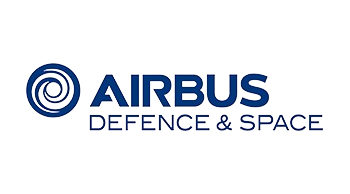
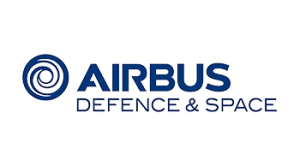
The Integrated Space Solution Programme Unit of Airbus enable trusted space-related information superiority to support national security and business critical operations.
We operate the largest constellation of optical and radar Earth observation satellites commercially available today, with unprecedented accuracy. Derived from our unrivalled data, we process a comprehensive portfolio of high-quality elevation models, global reference layers and grids to provide our customers and partners with information that perfectly matches their needs.
We’re also a world leader in satellite communications and ground infrastructure networks. As Secure Connectivity, we provide governments, militaries and International Agencies with mission-critical voice and high-speed data communications on land, at sea and in the air. We are a key provider of secure communications services, bringing together the most comprehensive satellite communications bandwidth and the best-in-class capabilities for network services and solutions.
As part of Airbus, we benefit from the power of a global leader in aerospace. This guarantees financial stability, intellectual capital and instills confidence in our commitment to being your long-term partner, delivering sustainable geospatial imagery products and services with trust.


Aldoria collects, processes and leverages space situational awareness data to protect critical assets in space.
By actively monitoring space debris, satellites and derelicts, Aldoria helps operators and space agencies proactively avoid threats and adjust orbital paths.
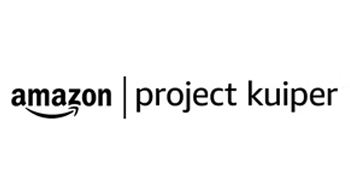
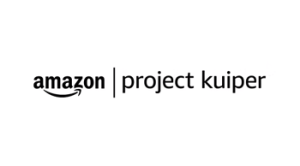
Project Kuiper is an initiative to increase global broadband access through a constellation of more than 3,000 satellites in low Earth orbit. Its mission is to bring fast, affordable broadband to unserved and underserved communities around the world.
https://www.aboutamazon.com/what-we-do/devices-services/project-kuiper
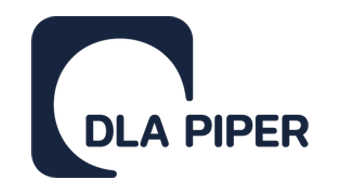
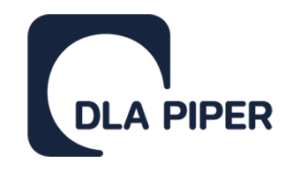
DLA Piper is a global law firm helping our clients achieve their goals wherever they do business. Our pursuit of innovation has transformed our delivery of legal services. With offices in the Americas, Europe, the Middle East, Africa and Asia Pacific, we deliver exceptional outcomes on cross-border projects, critical transactions and high-stakes disputes. Every day we help trailblazing organizations seize business opportunities and successfully manage growth and change at speed. Through our pro bono work and community investment around the world, we help create a more just and sustainable future. Visit dlapiper.com to discover more.

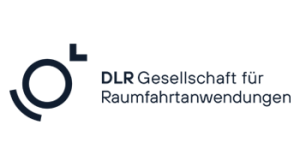
Navigating the Future.
Providing reliable, safe and secure space services is our daily business – and our passion. We are responsible for managing Europe´s biggest spacecraft constellation: the European Satellite Navigation System GALILEO. On behalf of the European Commission we operate from our headquarters at the Galileo Control Center (GCC-D) in Oberpfaffenhofen, Germany.
The Sky is not the Limit.
Thanks to the technical infrastructure we have implemented, we ensure 99,99% service availability. DLR GfR’s constellation operations services at GCC-D comprise 24/7 routine operations and maintenance the Galileo satellites and of the related ground segment infrastructure.
From GCC-D we organise the operation of the globally distributed Galileo infrastructure, both on-ground and in-orbit, throughout all mission phases. This includes mission planning and flight dynamics services, efficient team training and management, reliable configuration monitoring and global service-level tracking and monitoring.
International and diverse.
With our international team of more than 270 experts, we offer our customers excellent service and navigate the Galileo project with foresight into the future.
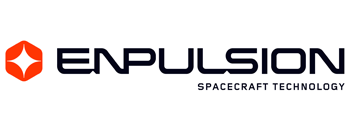
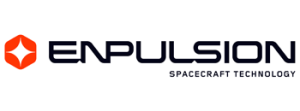 ENPULSION is the world’s leading manufacturer of electric propulsion systems for nano- and microsatellites. The company is based in Wiener Neustadt, Austria, and has a business development office in the USA. Its products are based on the company’s proprietary Field-Emission Electric Propulsion (FEEP) technology, behind which are more than 30 years of research and development work in cooperation with the European Space Agency (ESA) and the Research Facility FOTEC.
ENPULSION is the world’s leading manufacturer of electric propulsion systems for nano- and microsatellites. The company is based in Wiener Neustadt, Austria, and has a business development office in the USA. Its products are based on the company’s proprietary Field-Emission Electric Propulsion (FEEP) technology, behind which are more than 30 years of research and development work in cooperation with the European Space Agency (ESA) and the Research Facility FOTEC.
In its own semi-automated production facility ENPULSION manufactures the ENPULSION MICRO and the ENPULSION NANO Thruster (formerly IFM NANO) families – the only compact, scalable, and modular electric propulsion systems worldwide. The ENPULSION NANO Thruster became the first European electric propulsion thruster to fly on a constellation of satellites.
As of May 2023, there are more than 170+ ENPULSION active thrusters in space with more than 300 units delivered to customers. The company is ISO 9001:2015 quality certified for the development, testing, serial production, and distribution of space propulsion systems.

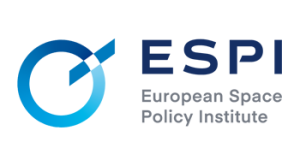
Founded in 2003, European Space Policy Institute (ESPI) is Europe’s independent think tank for space based in Vienna, Austria – the world’s capital of space diplomacy. Working in non-profit capacity, ESPI promotes European space policy on a global level, facilitates an active forum for the analysis and discussion of European needs, capabilities, and long-term prospects in space activities, and makes proposals and recommendations to European decision-makers. In line with its policy vision, ESPI2040: Space for Prosperity, Peace and Future Generations, ESPI advocates for a strong Europe as a partner to the world.


European Space Imaging (EUSI) is Europe’s leading provider of advanced geospatial data solutions, delivering the highest quality satellite imagery with unparalleled speed, capacity and reliability. Operating for over 20 years from their ground segment in Munich, EUSI supports European Earth Observation objectives through rapid and flexible satellite tasking for security, civil, environmental and commercial applications.
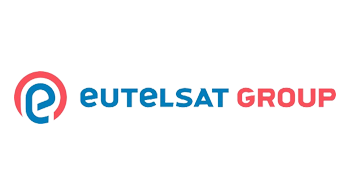
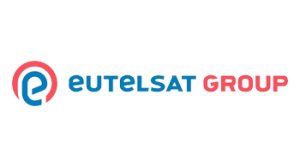
Eutelsat Group is a global leader in satellite communications, delivering connectivity and broadcast services worldwide. The Group was formed through the combination of the Company and OneWeb in 2023, becoming the first fully integrated GEO-LEO satellite operator with a fleet of 36 Geostationary satellites and a Low Earth Orbit (LEO) constellation of more than 600 satellites. The Group addresses the needs of customers in four key verticals of Video, where it distributes more than 6,500 television channels, and the high-growth connectivity markets of Mobile Connectivity, Fixed Connectivity, and Government Services. Eutelsat Group’s unique suite of in-orbit assets and ground infrastructure enables it to deliver integrated solutions to meet the needs of global customers. The Company is headquartered in Paris and the Eutelsat Group employs more than 1,700 people across more than 50 countries. The Group is committed to delivering safe, resilient, and environmentally sustainable connectivity to help bridge the digital divide. The Company is listed on the Euronext Paris Stock Exchange (ticker: ETL) and the London Stock Exchange (ticker: ETL)
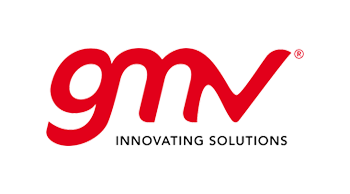

GMV is a trusted partner of leading Satellite Operators, Satellite Manufacturers and Space Agencies worldwide. Since 1984, we provide engineering, software & hardware development and systems integration in the areas of mission analysis, GNC, avionics, satellite and mission control, flight dynamics, data processing, mission planning, fleet management, navigation, on board software, robotics and applications. Involved in more than 1,000 satellite missions and having a large portfolio of flight proven products.
Today we are a worldwide leader in satellite-navigation systems (including a major role on European Galileo/EGNOS, international SBAS systems and GNSS applications), a worldwide leader of ground systems for telecommunications operators (Eutelsat, Hispasat, SES, Intelsat, Inmarsat…more than 40 operators worldwide), a European leader of ground control systems and data processing for Earth observation and meteorology (Earth Explorers, Copernicus, Paz, Microcarb, MTG, EPS SG), a European leader of avionics and advanced GNC systems for planetary defense (Hera), technology demonstration missions (PROBA-3), launchers (VEGA, PLD) and space exploration (Moon missions, MSR), a European leader of space surveillance (SSA and EUSST/STM) and robotics (Exomars), a European reference in satellite operations engineering (DLR, ESA, CNES) and user applications (security, agriculture, maritime… among others).
GMV is one of the strongest worldwide players in Satellite Navigation particularly through our contribution to EGNOS/Galileo, being today the responsible for the maintenance and evolution of the Galileo Control System (GCS), having the responsibility of the critical subsystems in the Galileo Mission System (GMS) and procuring the infrastructure/services of the major Galileo Service centers (GSC, GRC, TGVF, SAR-RLSP, GSMC, GSSC, HADG).

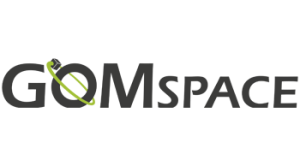
GomSpace is a globally leading designer, integrator and manufacturer of high-end nanosatellites for customers in the academic, government and commercial markets. We’re not just building satellites—we’re building opportunities. We’re not just enabling missions—we’re enabling dreams by helping and guiding our customers in fulfilling their space ambitions. GomSpace mission is to offer all clients a sustainable approach and a smooth continuity of their business needs. Whether you’re a startup launching your first satellite, an ambitious government deploying national strengths or an established enterprise building a global network “We make space YOURS. Affordable – Useful – Accessible.” Our positions of strength include systems integration, nanosatellite subsystems and advanced miniaturised radio technology. Our international team is devoted to understanding our customers’ requirements and deliver flawlessly. We are listed at Nasdaq in Stockholm (GOMX), headquartered in Denmark, have offices in the US, Singapore, Luxembourg and Sweden and we service our customers in more than 50 countries.
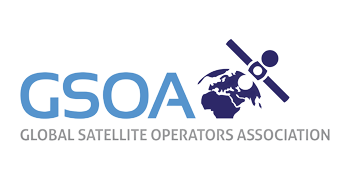
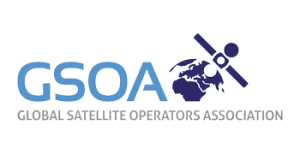




Indra is one of the leading global defence, aerospace and technology companies, and a world leader in digital transformation and information technologies in Spain and Latin America through its subsidiary, Minsait. Its business model is based on a comprehensive range of proprietary products, with high-value approach and a significant innovative component, making it the technological partner for the digitalization and key operations of its clients around the world. Sustainability forms part of its strategy and culture in order to overcome current-day and future social and environmental challenges. In the 2023 fiscal year, Indra achieved revenue totaling €4.343 billion, with more than 57,000 employees, a local presence in 46 countries and business operations in over 140 countries.
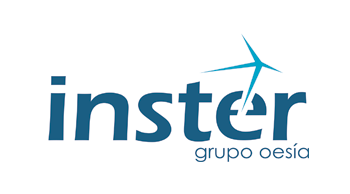
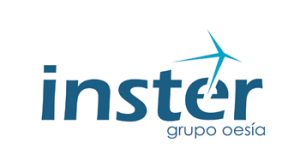
Inster, group Oesia, is a Spanish company and European leader of satcoms terminals. Based near Madrid, it has full expertise and capabilities to design, develop, manufacture and test customized terminals for GEO satellites ( X, Ka, Ku bands) and LEO constellations (Eutelsat OneWeb). Its terminals are manpack, nomadic or On-The-Move for all platforms.

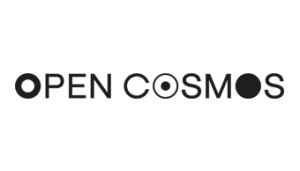
Open Cosmos is a business focused on solving the world’s biggest challenges through the delivery of satellite missions and the data of the world they can gather from space. This includes designing, building, launching and operating small satellites as well as providing data and services through an innovative platform. Since its creation in 2015, it has developed multiple advanced satellites for telecommunications, earth observation, navigation and science.
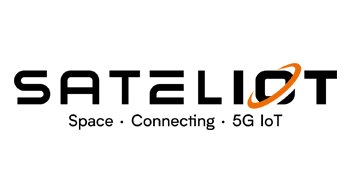
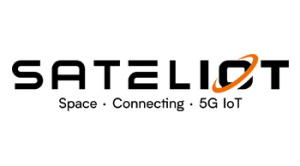
Pioneering the first LEO satellite constellation delivering NB-IoT connectivity from space, extending Mobile Telecom coverage to 100% of the planet. We’re enabling seamless, affordable, and truly global IoT communications by addressing the critical gaps in terrestrial networks: At Sateliot, we’re not just launching satellites—we’re shaping the future of global connectivity. By bridging the digital divide and powering worldwide digitalization, we’re laying the foundation for a resilient and strategic European infrastructure. 🔗 Get in touch with our sales team: www.sateliot.com




Skylo Technologies is a global Non-Terrestrial Network service provider based in Mountain View, CA, offering a service that allows smartphones and IoT cellular devices to connect directly over existing satellites. Devices connected over satellite are managed and served by Skylo’s commercial NTN vRAN, featuring a 3GPP standards-based cloud-native base station and core. Skylo works with existing satellite operators, network operators, and device makers to provide subscribers an anywhere, anytime connectivity solution between terrestrial and satellite networks. Skylo’s focus is on enabling connected services for people outdoors and connected workflows for machines at work across critical industries such as agriculture, maritime, logistics, mining, and others, in addition to mass-market consumer devices.
We’re a global, fast-growing team, with offices in California, India and Finland. For more information, visit www.skylo.tech.




Viasat is a global communications company that believes everyone and everything in the world can be connected. With offices in 24 countries around the world, our mission shapes how consumers, businesses, governments and militaries around the world communicate and connect. Viasat is developing the ultimate global communications network to power high-quality, reliable, secure, affordable, fast connections to positively impact people’s lives anywhere they are—on the ground, in the air or at sea, while building a sustainable future in space. In May 2023, Viasat completed its acquisition of Inmarsat, combining the teams, technologies and resources of the two companies to create a new global communications partner.


At Vodafone, we believe that connectivity is a force for good. If we use it for the things that really matter, it can improve people’s lives and the world around us. Through our technology we empower people, connecting everyone regardless of who they are or where they live, we protect the planet and help our customers do the same. But we’re not just shaping the future of technology for our customers – we’re shaping the future for everyone who joins our team too. When you work with us, you’re part of a global mission to connect people, solve complex challenges, and create a sustainable, more inclusive world. If you want to grow your career whilst finding the perfect balance between work and life, Vodafone offers the opportunities and support to help you belong and make a real impact. #TogetherWeCan
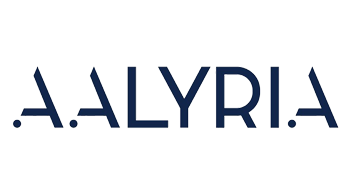
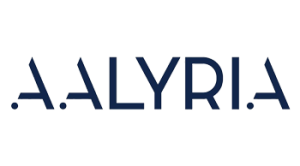
Aalyria is a venture-backed startup that creates and manages the world’s most advanced networks to enable connectivity everywhere at the speed of discovery. Originally developed at Google as part of Project Loon, Aalyria brings together a software platform that orchestrates networks across land, sea, air, space and beyond and an atmosphere laser communications platform. Aalyria works with Telesat, Intelsat, the Defense Innovation Unit, Naval Research Labs, Space Development Agency among many others to realize its mission.

![]()
Founded in 2018, Aerospacelab is an emerging figure in the aerospace sector, showcasing a remarkable achievement of 8 satellites successfully deployed in orbit. We pride ourselves on our dedication to vertical integration and TRL-9 implementation, solidifying our commitment to driving innovation in the space industry. With our operations strategically placed in various locations, including the U.S., Aerospacelab remains steadfast in its mission to deliver pioneering solutions for our diverse customer community. Aerospacelab recently broke ground on its Megafactory, the world’s third largest satellite manufacturing facility, scheduled to begin operations in 2026.


Amazon is guided by four principles: customer obsession rather than competitor focus, passion for invention, commitment to operational excellence, and long-term thinking. Amazon strives to be Earth’s most customer-centric company, Earth’s best employer, and Earth’s safest place to work. Amazon has been in Europe since 1998 and has over 220.000 employees and 350+ logistics sites across Europe, with over €215 billion invested since 2010. Amazon’s Project Kuiper is a Low Earth Orbit constellation with the mission to connect unserved and underserved communities around the globe.

![]()
Since its creation in 1980 as the world’s first commercial space transportation company, Arianespace has led the launch services industry with many operational firsts and numerous record-setting missions. 🚀 Arianespace uses space to make life better on Earth by providing launch services for all types of satellites into all orbits. 🛰 It has orbited more than 1,100 satellites since 1980, using its family of launchers. 🚀 Arianespace is headquartered in Evry, near Paris, and has a technical facility at the Guiana Space Center, Europe’s Spaceport in French Guiana, plus local offices in Washington, D.C., Tokyo and Singapore. The company operates the Ariane and Vega family of launchers to ensure Europe’s sovereign access to Space and for the benefit of both institutional and commercial customers worldwide. 🌍 Arianespace is a subsidiary of ArianeGroup, which holds 74% of its share capital, with the balance held by 15 other shareholders from the European launcher industry. 🇪🇺 #MissionToSuccess #DestinationSpace


Astroscale is developing innovative and scalable solutions across the spectrum of on-orbit servicing, including life extension, in situ space situational awareness, end of life, and active debris removal, to create sustainable space systems and mitigate the growing and hazardous build-up of debris in space.
Astroscale is also defining business cases and working with government and commercial stakeholders to develop norms, regulations, and incentives for the responsible use of space.


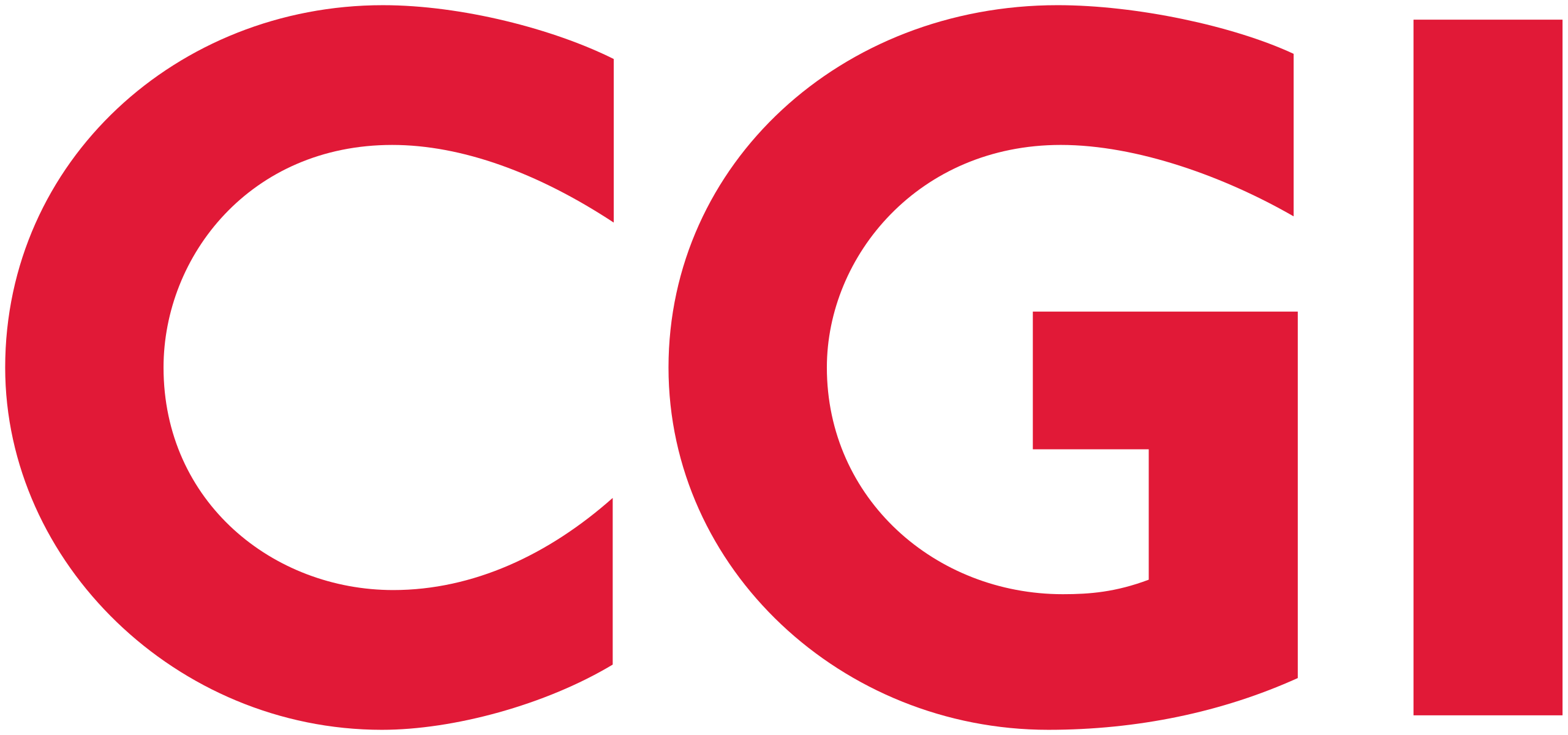
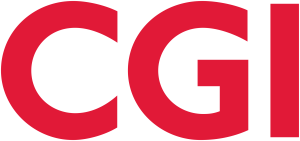
Insights you can act on to achieve trusted outcomes. We are insights-driven and outcomes-focused to help accelerate returns on your investments. Across 21 industry sectors and 400 locations worldwide, we provide comprehensive, scalable and sustainable IT and business consulting services that are informed globally and delivered locally. We value your opinions and welcome your comments and questions on our posts here on LinkedIn. Please keep a polite, professional and constructive tone. We remove comments containing objectionable language and derogatory views. We do not allow content that is unrelated to the subject, and we remove discriminatory and racist comments as well as spam and advertising. Note that content on this page contains general information regarding CGI’s services and initiatives and should not be considered direct business advice.

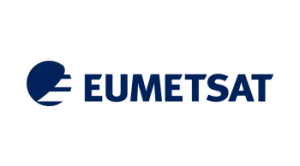
EUMETSAT, Europe’s meteorological satellite agency, monitors the weather and climate from space. Based in Darmstadt, Germany, EUMETSAT provides its 30 member states with meteorological imagery and data that are essential for keeping their communities safe and for the benefit of critical sectors of their economies.
Four Meteosat satellites in geostationary orbit deliver continuous observations of fast developing severe weather events over Europe, Africa and the Indian Ocean. Two polar-orbiting Metop satellites provide data of pivotal importance for forecasts up to 10 days ahead. The first of the next-generations satellites in these systems will be launched in 2022 and 2023, respectively.
EUMETSAT’s archive of satellite observations over more than 40 years provides climate scientists around the world with long-term, homogenous data necessary for monitoring climate change.
EUMETSAT is a key partner in the European Union’s Copernicus Earth observation programme. It operates the Copernicus Sentinel-3 and -6 ocean-monitoring missions, and will operate the upcoming CO2M mission, to monitor carbon dioxide emissions. Data from these, and EUMETSAT’s own missions, are provided to the Copernicus climate, atmosphere monitoring and marine environment services.
Together with NASA, NOAA, the EU, ESA and with support from the French Space Agency, CNES, EUMETSAT is a partner in the Jason ocean-monitoring mission.
EUMETSAT cooperates with agencies around the world, securing additional satellite data of benefit to weather forecasting and climate monitoring.

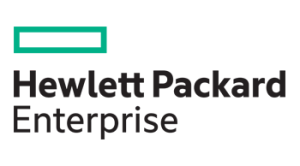
HPE is the global edge-to-cloud company built to transform your business. How? By helping you connect, protect, analyze, and act on all your data and applications wherever they live, from edge to cloud, so you can turn insights into outcomes at the speed required to thrive in today’s complex world.


ICEYE delivers unparalleled persistent monitoring capabilities to detect and respond to changes in any location on Earth, faster and more accurately than ever before.
Owning the world’s largest synthetic aperture radar (SAR) satellite constellation, ICEYE provides objective, near real-time insights, ensuring that customers have unmatched access to actionable data, day or night, even in challenging environmental conditions. As a trusted partner to governments and commercial industries, ICEYE delivers intelligence in sectors such as insurance, natural catastrophe response and recovery, security, maritime monitoring, and finance, enabling decision-making that contributes to community resilience and sustainable development.
ICEYE is headquartered in Finland and operates from five international locations. ICEYE has more than 600 employees, inspired by the shared vision of improving life on Earth by becoming the global source of truth in Earth Observation.


Indra is one of the leading global technology and consulting companies and the technological partner for core business operations of its customers worldwide. It is a world-leader in providing proprietary solutions in specific segments in Transport and Defence markets, and a leading firm in Digital Transformation and Information Technologies in Spain and Latin America through its affiliate Minsait. Its business model is based on a comprehensive range of proprietary products, with a high-value, end-to-end focus and with a high innovation component. In the 2022 financial year, Indra achieved revenue totaling €3.851 million, with almost 57,000 employees, a local presence in 46 countries and business operations in over 140 countries.
Indra has a strong technological and engineering background and expertise with operations in the space sector for more than 30 years. Indra has played a relevant role in the development of major EU space programs, specifically focusing on the ground segment (command and control, security, antennas, communications, etc.), as the Copernicus Earth observation system and the Galileo global geo-positioning system. It has also deployed the ground segment of Paz, the Spanish Earth observation satellite, and, in partnership with ENAIRE, a company linked to the new space, it has launched Startical, which is working on the development of a constellation with more than 200 small satellites for providing air traffic management services around the globe.
Indra has developed the S3T Surveillance Radar. It is a ground-based radar, based in a close monostatic configuration, operating at L band and capable of providing positional information of orbital objects. The radar provides automatic surveillance and tracking of space objects in Low Earth Orbit (from 200 km to 2000 Km of orbit height above Earth). Currently operated by the Spanish Air and Space Force in the Space Surveillance Operations Center (COVE), it supplies daily data to the European Union Space Surveillance and Tracking Partnership (EU-SST) consortium network, to which it has contributed with a substantial increase in its capacity to detect and aware.


MethaneSAT is the most advanced methane tracker in space. By end of 2024, it will measure emissions almost anywhere on Earth with greater precision than any other satellite – from large leaks to sources too small for other satellites to see. Its initial mission is to quantify methane coming from the global oil & gas industry. MethaneSAT data will be free and publicly available to catalyze faster action by countries and companies to fix problems faster and more effectively. With high precision measurement capabilities and a wide view path, MethaneSAT will track not only the rate at which methane is being emitted and from where, but how those emissions are changing – making it easier to prioritize solutions for maximum benefit. It will quantify emission rates from the global level on down to sites as small as one kilometer.


Neuraspace is a pioneer company in the use of AI/ML to fight Space Debris and collisions that can destroy satellites, enabling satellite operators to detect up to 50% more high-risk collisions that have been so far undetected and reducing the need for human intervention up to 2/3.
Neuraspace allows satellite operators to reduce operational manpower efforts, in particular for large constellations. The number of false alerts will be fewer, and the time between close approach and manoeuvre decision will be less. Thus, you will save on fuel and time, while collisions and the menace of space debris will be minimized.
Neuraspace provides an end-to-end solution centered around: (1) Data Fusion; (2) AI and Machine Learning; and (3) Manoeuvring Automation.
To contribute to the evolution of spacecraft operations, Neuraspace aims to solve the space debris problem by protecting satellites operators from the losses caused by collisions, liabilities from leaving debris in orbit and allowing insurance companies to better price the risk that each satellite poses.
The continuous increase in space traffic and debris in the last years lead to a significant increase in the amount of information related to conjunction events. This situation poses a very complex challenge to space operators as the conjunction events need a careful “manual” analysis, which is time, cost and effort consuming. AI (specifically ML) algorithms represent an essential technique in the automation of this process, mainly due to its ability to handle big amounts of data.
By using a data driven approach with state of the art Machine Learning techniques, Neuraspace is able to outperform the current methods, while automating the process of collision risk avoidance. Neuraspace enables the timely detection of up to 33% more high-risk collisions that have been so far undetected, thus securing space operations.


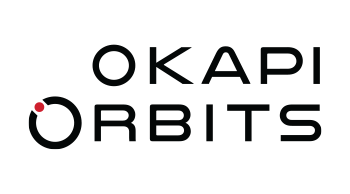
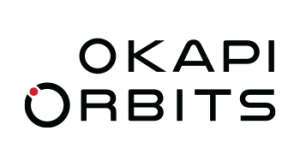
OKAPI:Orbits is an innovative German SaaS startup dedicated to making space travel more sustainable through Collision Avoidance Software for satellites. The OKAPI:Orbits team envisions a safe and sustainable space environment, truly accessible to everyone. We are laser-focused on creating innovative and efficient products to enable safe and secure satellite operations and seamless ground segment integration. As experts in Space Situational Awareness (SSA) and Space Surveillance and Tracking (SST), we offer platform services based on standardized interfaces with a wide range of flexible modules to meet the specific needs of our customers.


OroraTech is a thermal data intelligence company headquartered in Munich, Germany, with the mission to create truth for a net-zero economy and protect our environment. Their leading Wildfire Solution is used by clients all over the globe, monitoring more than 160 million ha of forest. The service will be complemented by multipurpose thermal-infrared sensing nanosatellites with in-space artificial intelligence to improve real-time response and to improve continuous coverage. The first of its kind satellite was successfully launched in January 2022 and will be expanded to a fleet of 100 satellites over the following years. Founded in 2018, the company has grown to an international team of over 80 employees supported by private and institutional investors, the European Space Agency, and the governments of Germany and Bavaria.


PLD SPACE – Opening Space for Everyone
We are an engineering, manufacturing and service company, with deep expertise in space launch technologies, and with the aim of becoming a leading player in the space launch services on the international market through an affordable, first-class and highly-flexible small satellite launch service experience. Our vision is to unleash the power of exploration and discovery to improve life down here on Earth.


Reflex Aerospace, a NewSpace startup founded in 2021 and headquartered in Munich and Berlin, offers rapid, payload-centric, dual-use, secure-by-design small satellite solutions. They apply modern manufacturing advancements to a unique design process resulting in enhanced reliability, the highest-performing core avionics in class, and improved delivery times.
https://www.reflexaerospace.com/
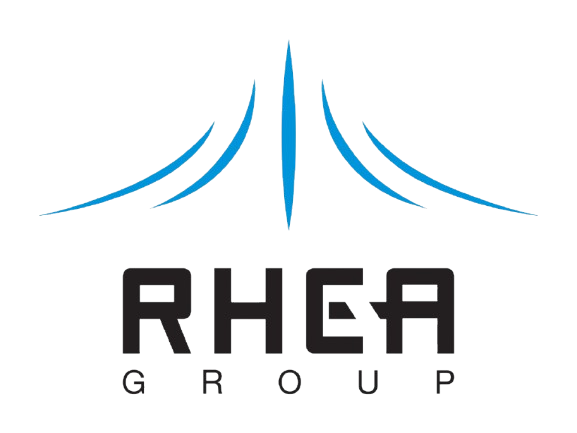
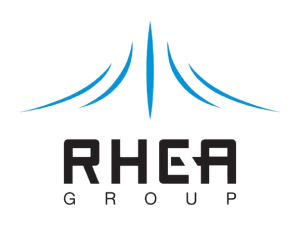
RHEA Group is a professional engineering and solutions company, offering engineering solutions, system development and security services for space, government, defence and other critical infrastructure organizations across Europe and North America. Over the past 30 years, we have built a reputation as a trusted partner. We develop solutions that help drive organizational and cultural initiatives, leading to sustainable added value for our clients. Headquartered in Belgium, RHEA also works in Czech Republic, France, Germany, Italy, Luxembourg, The Netherlands, Spain, UK, Switzerland and Canada. RHEA has supported over 120 space missions, including CubeSats, SmallSats, complex science spacecraft, Earth observation and communications satellites, and multi-satellite constellations. Our clients include the European Space Agency (ESA), EUMETSAT, European Commission, EU Agency for the Space Programme (EUSPA) and national space agencies. Our experts in areas such as cybersecurity and concurrent design are recognized as global leaders in their domains. As a fast-growing company, we offer our employees the chance to grow within a supportive environment and to work on some of the most diverse and interesting programmes that contribute to the changing space, security and engineering sectors. Visit our website to learn more about how working for RHEA could be rewarding for your career.


Rivada Space Networks is set to establish and operate the Rivada Outernet: a global low latency point-to-point connectivity network of LEO satellites. By connecting its satellites with lasers, Rivada Space Networks will provide resellers and B2B customers with the ability to securely connect any two points on the globe with low latency and high bandwidth. The constellations, comprising 600 low-earth-orbit communications satellites, will represent a fundamental change in the availability of secure, global, end-to-end enterprise-grade connectivity for Telecom, Enterprise, Maritime, Energy and Government Services markets.



 We bring together the right people, the right technology and the right partners to create innovative solutions that make positive impact and address some of the most urgent and complex challenges facing the modern world. With a focus on serving governments globally, Serco’s services span justice, migration, defence, space, customer services, health, and transport. Our core capabilities include service design and advisory, resourcing, complex programme management, systems integration, case management, engineering, and asset & facilities management.
We bring together the right people, the right technology and the right partners to create innovative solutions that make positive impact and address some of the most urgent and complex challenges facing the modern world. With a focus on serving governments globally, Serco’s services span justice, migration, defence, space, customer services, health, and transport. Our core capabilities include service design and advisory, resourcing, complex programme management, systems integration, case management, engineering, and asset & facilities management.







 Drawing on over 40 years of experience and a unique combination of skills, expertise and cultures, Thales Alenia Space delivers cost-effective solutions for telecommunications, navigation, Earth observation, environmental management, exploration, science and orbital infrastructures. Governments and private industry alike count on Thales Alenia Space to design satellite-based systems that provide anytime, anywhere connections and positioning, monitor our planet, enhance management of its resources, and explore our Solar System and beyond. Thales Alenia Space sees space as a new horizon, helping to build a better, more sustainable life on Earth. A joint venture between Thales (67%) and Leonardo (33%), Thales Alenia Space also teams up with Telespazio to form the parent companies’ Space Alliance, which offers a complete range of services. Thales Alenia Space posted consolidated revenues of approximately 2.15 billion euros in 2021 and has around 8,900 employees in 10 countries with 17 sites in Europe and a plant in the US.
Drawing on over 40 years of experience and a unique combination of skills, expertise and cultures, Thales Alenia Space delivers cost-effective solutions for telecommunications, navigation, Earth observation, environmental management, exploration, science and orbital infrastructures. Governments and private industry alike count on Thales Alenia Space to design satellite-based systems that provide anytime, anywhere connections and positioning, monitor our planet, enhance management of its resources, and explore our Solar System and beyond. Thales Alenia Space sees space as a new horizon, helping to build a better, more sustainable life on Earth. A joint venture between Thales (67%) and Leonardo (33%), Thales Alenia Space also teams up with Telespazio to form the parent companies’ Space Alliance, which offers a complete range of services. Thales Alenia Space posted consolidated revenues of approximately 2.15 billion euros in 2021 and has around 8,900 employees in 10 countries with 17 sites in Europe and a plant in the US.


An independent news organization with a global reach, MLex is focused on identifying regulatory risk as and wherever it emerges, empowering our customers — the world’s leading law firms, corporations, hedge funds, advisory firms and regulators — to navigate threats and opportunities in a world where regulation is increasingly complex and interconnected. We have a track record of uncovering regulatory risk before it breaks in other news outlets, with specialist reporting across Antitrust, M&A, State Aid, Trade, Data Privacy & Security, Technology, Artificial Intelligence, Intellectual Property, Energy, Financial Services and Financial Crime.

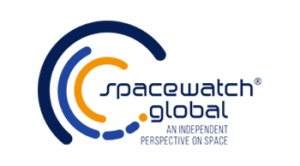
SpaceWatch.Global is a digital magazine and portal for those interested in space and the far-reaching impact that space developments have. While showcasing the technology that enables the industry to edge closer to the next frontier, SpaceWatch.Global also provides analysis, forecasts and insight into the geopolitical implications of space developments. From space policy, exploration and missions to space weapons and technology, we provide a complete perspective on the Middle East, Europe, Africa, Asia-Pacific, American and Russian space sector. The team behind SpaceWatch.Global comprises a dynamic mix of space geeks, tech junkies, space policy experts, regional market specialists and passionate writers. We fully believe that space should be used for humanity; that it enables knowledge and enriches societies. SpaceWatch.Global GmbH, headquartered in Berlin, Germany. In the true journalistic spirit, neutrality, ethics, and integrity are at our core. SpaceWatch.Global abides by the Society of Professional Journalists’ code of ethics; we seek truth and report it.
Hotel nhow Brussels Bloom
Rue Royale 250, 1210 Bruxelles, Belgium
For more information on any aspect of this event, please contact Karolina Stankiewicz using any of the details below.

Karolina Stankiewicz
Event Manager
Forum Global
+44 (0) 7845 645853
Sign up to receive updates on our upcoming policy events. We will only send you emails about the conferences and topics that interest you, and you can unsubscribe at any time.
© Copyright Forum Global. All rights reserved | Privacy Policy | Terms and Conditions | Cookies Policy | Booking Terms and Conditions | Registered in UK | Registered Office: Unit 5 Sovereign Quay, Havannah Street, Cardiff CF10 5SF | Tel: +44 (0) 2920 783 020 | Email: info@forum-global.com